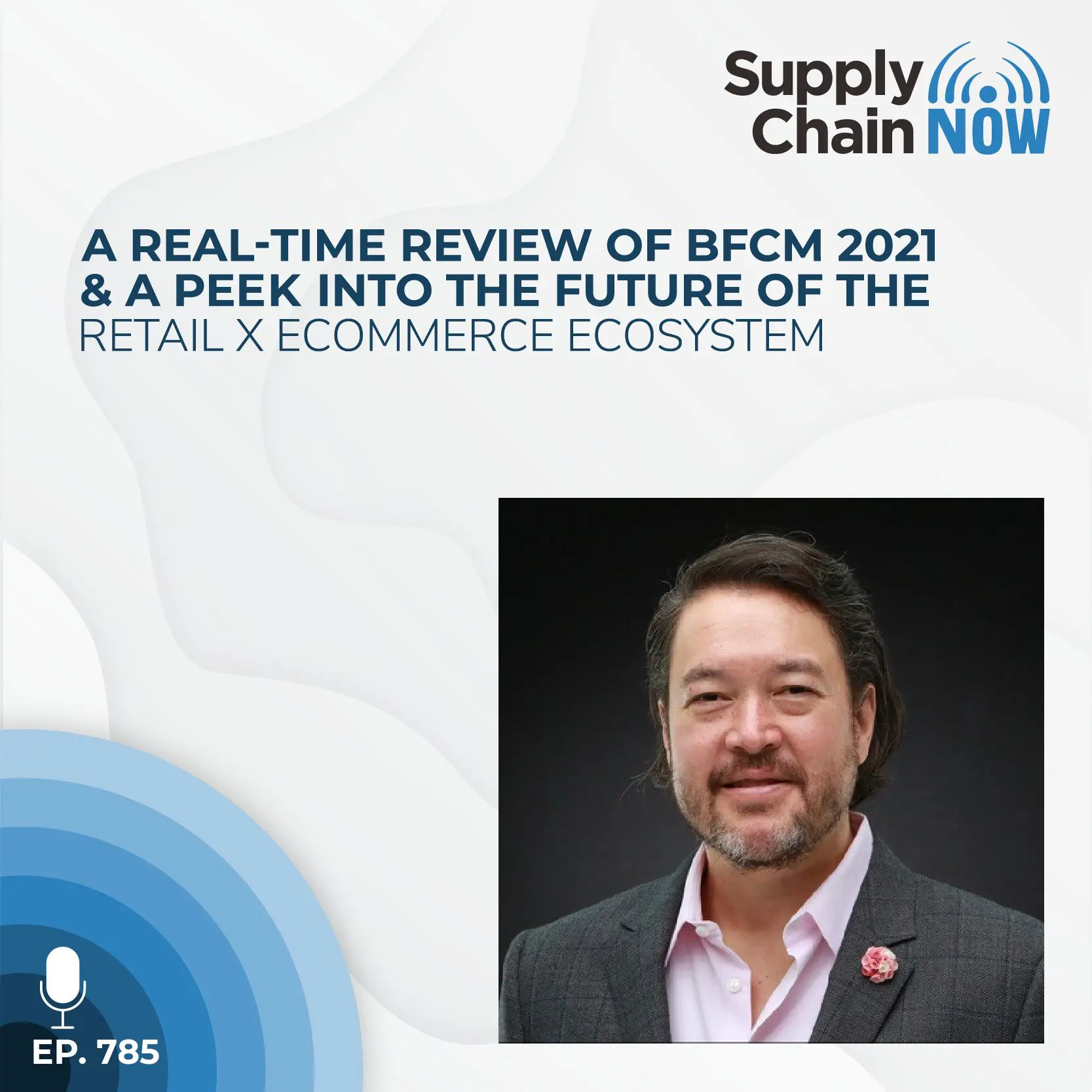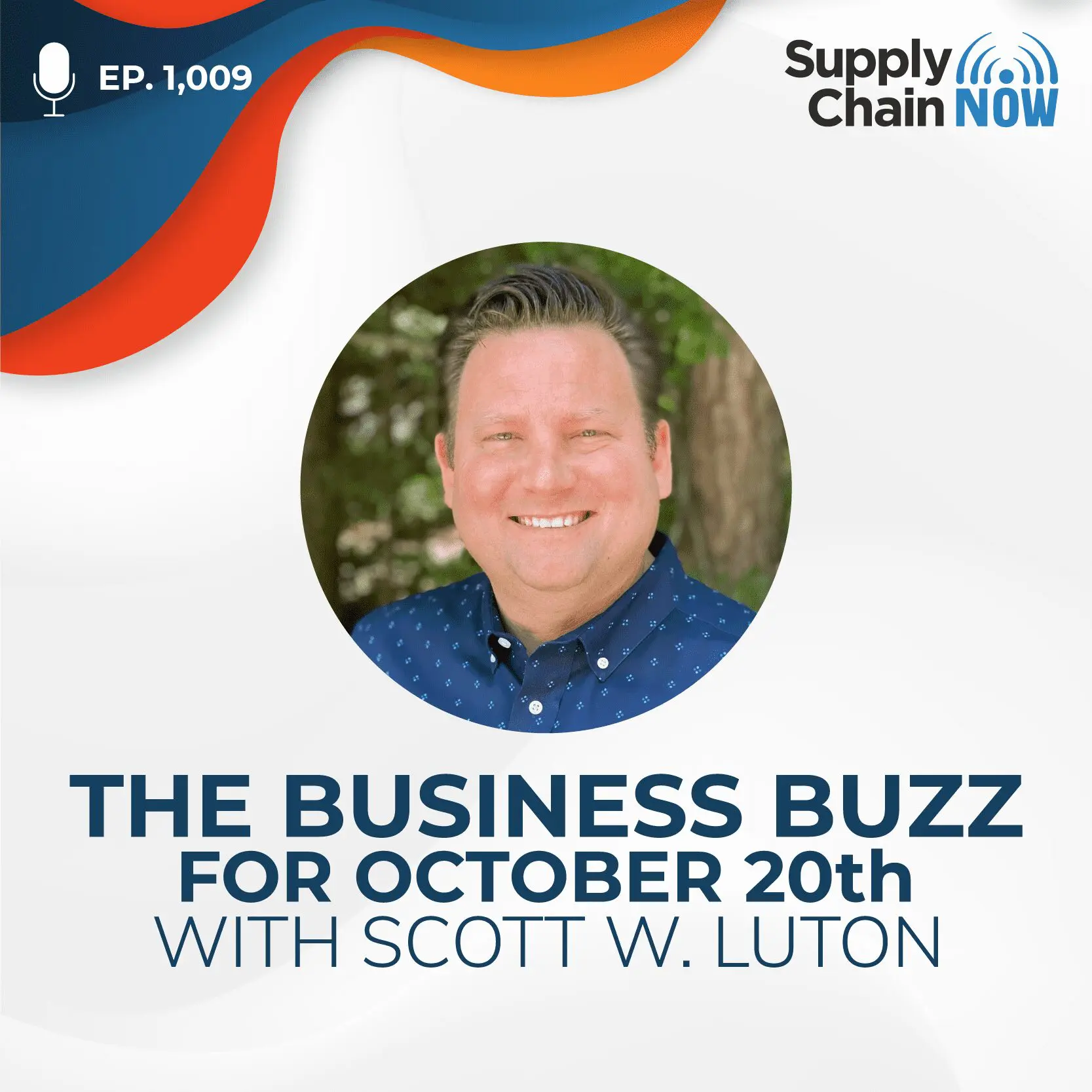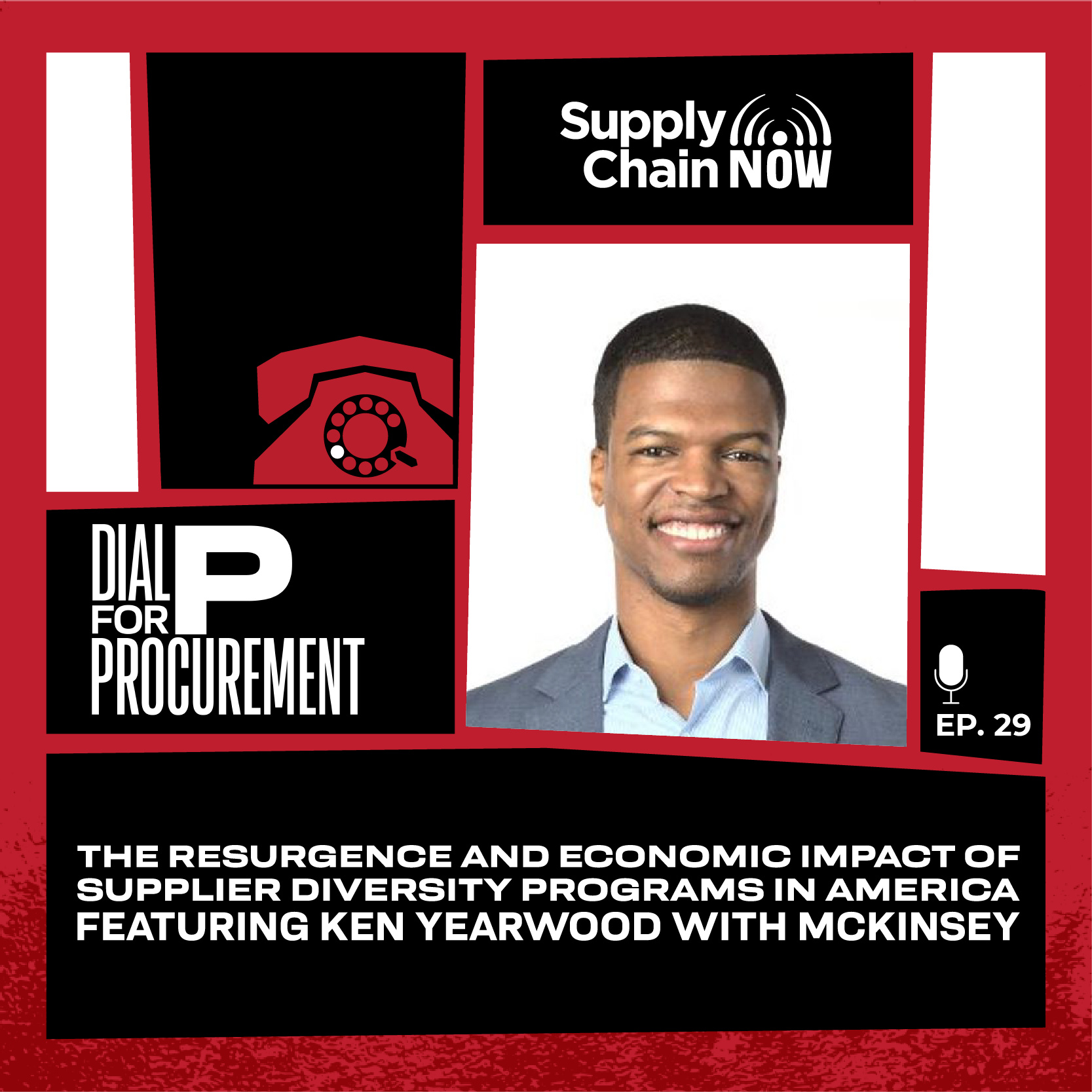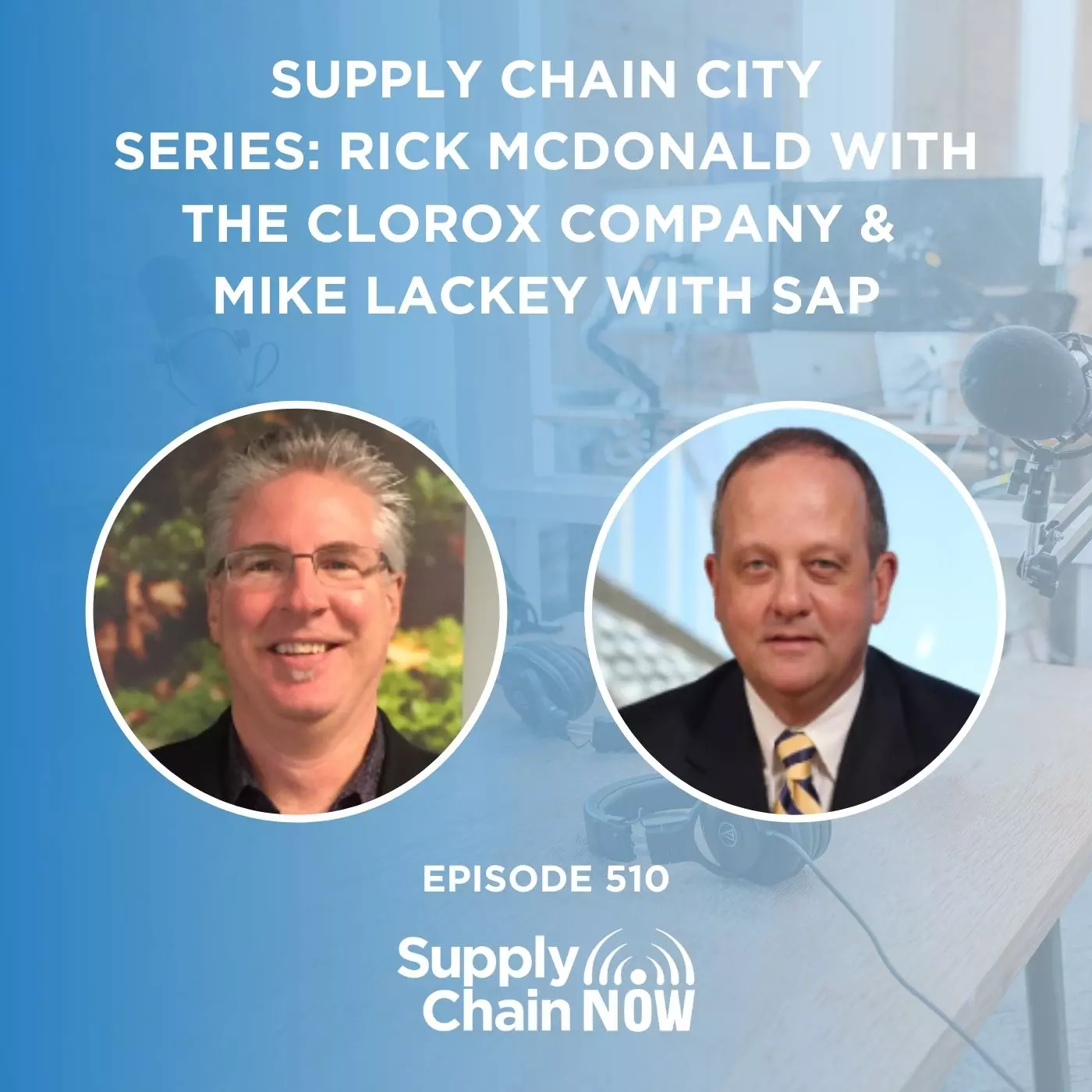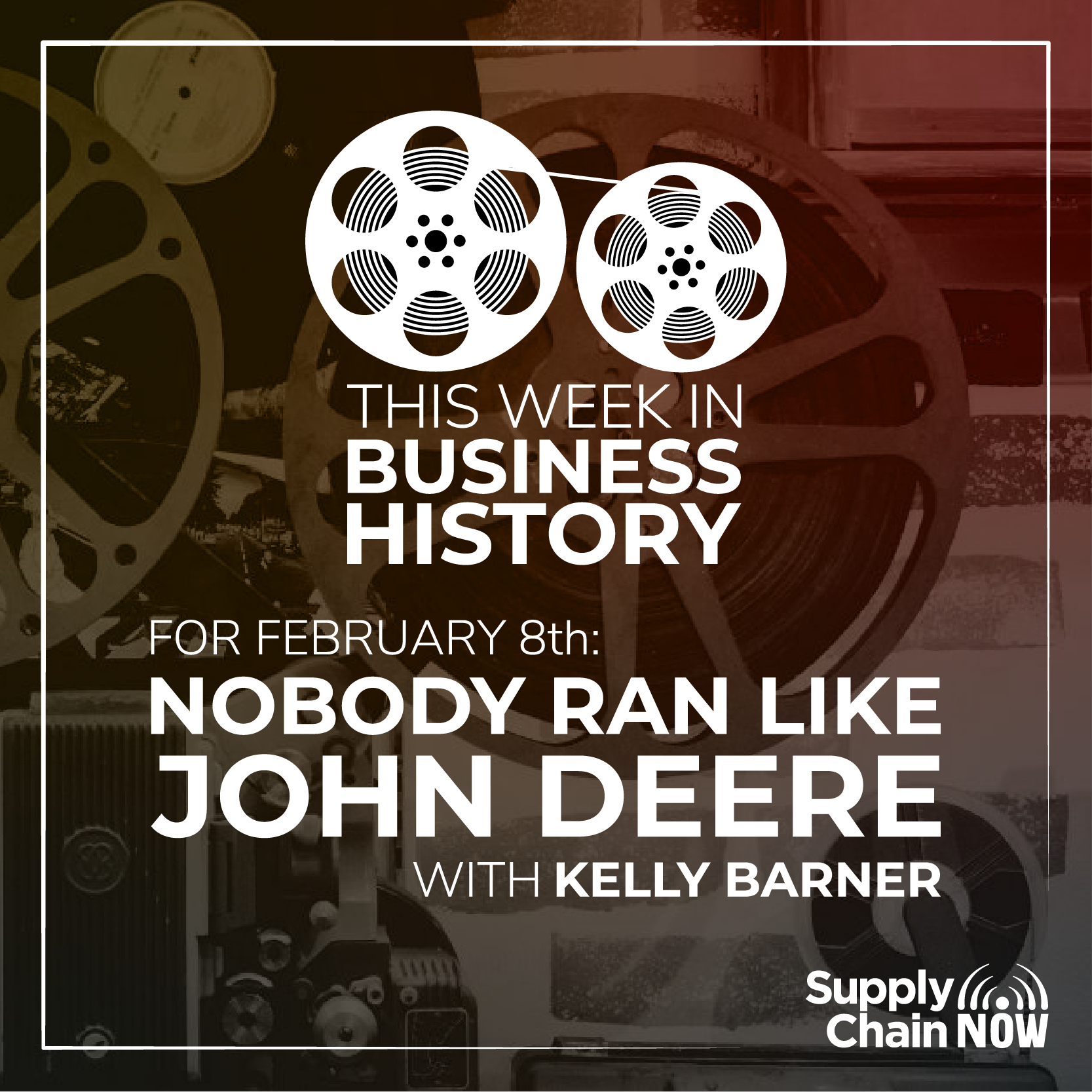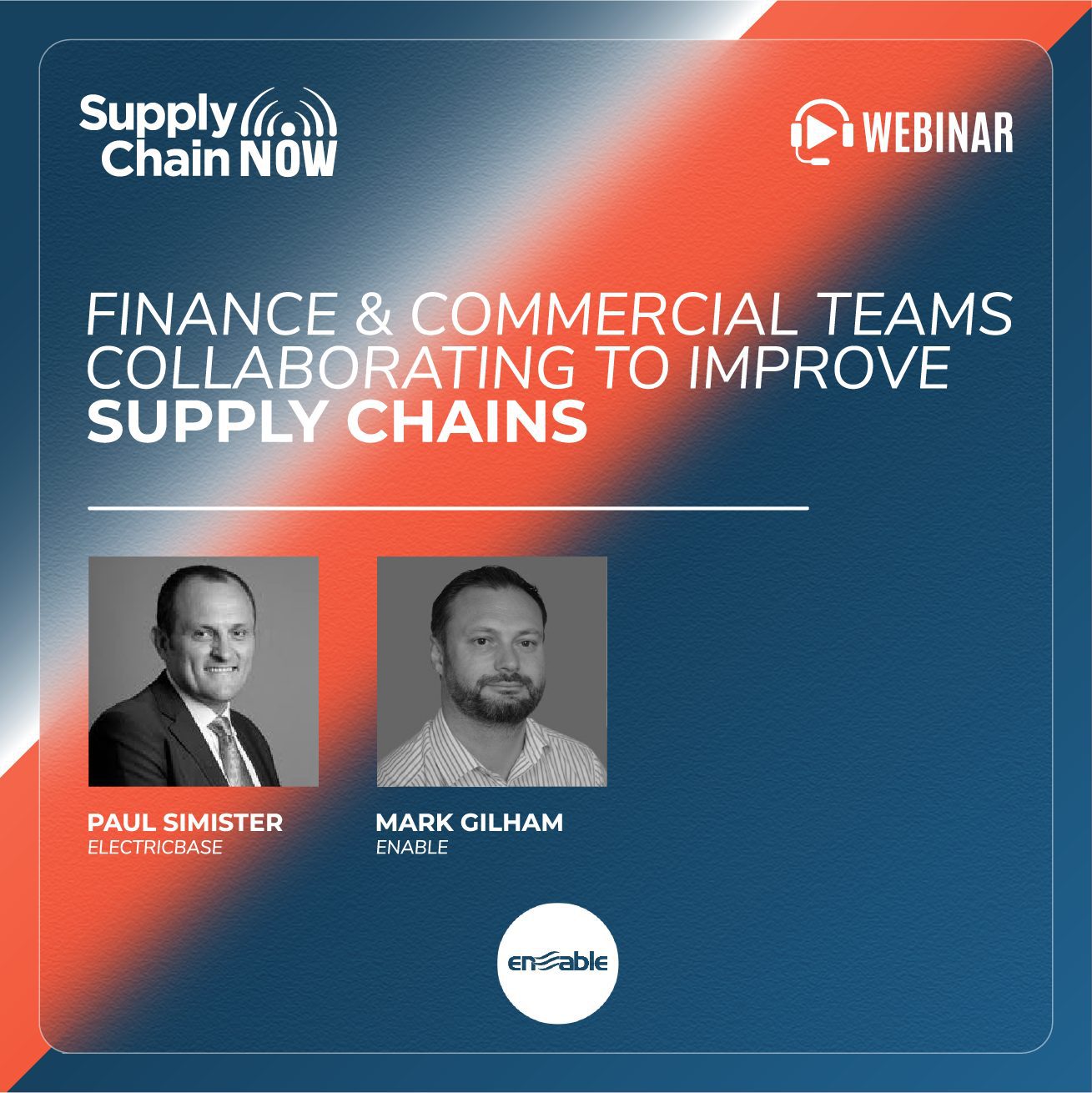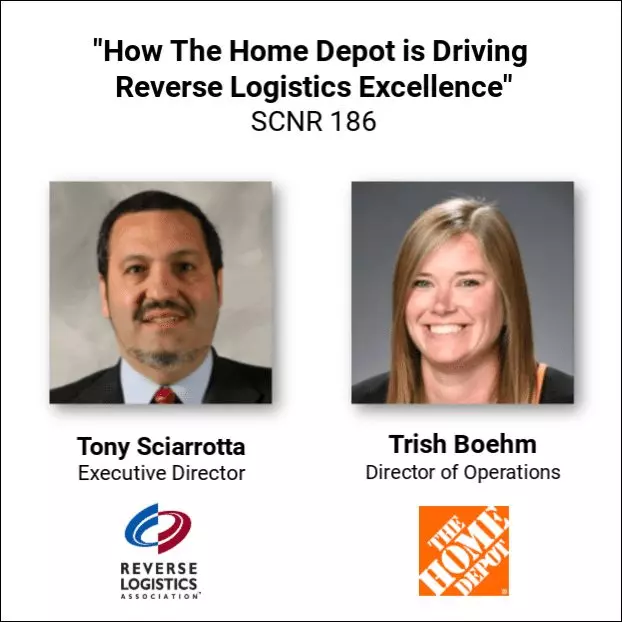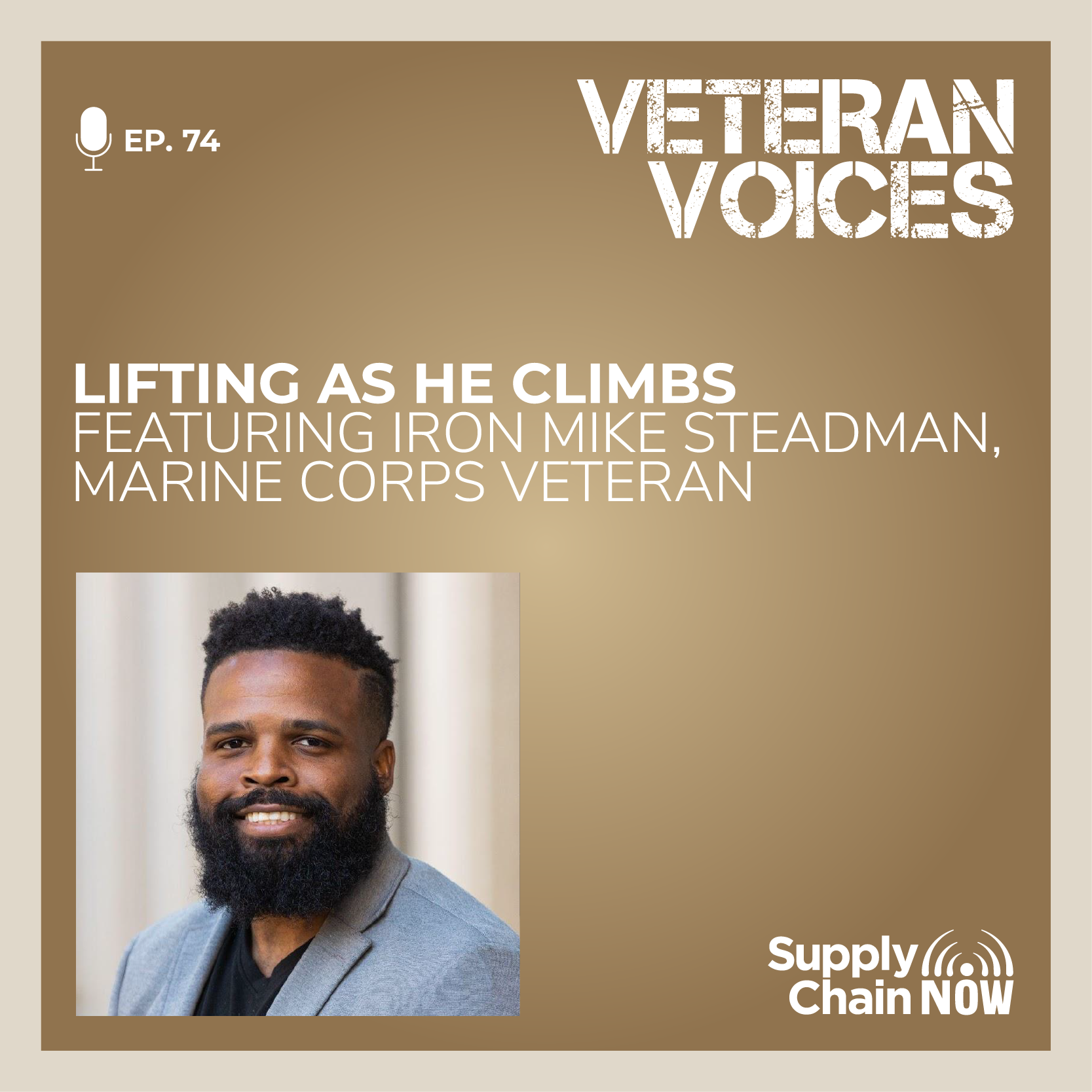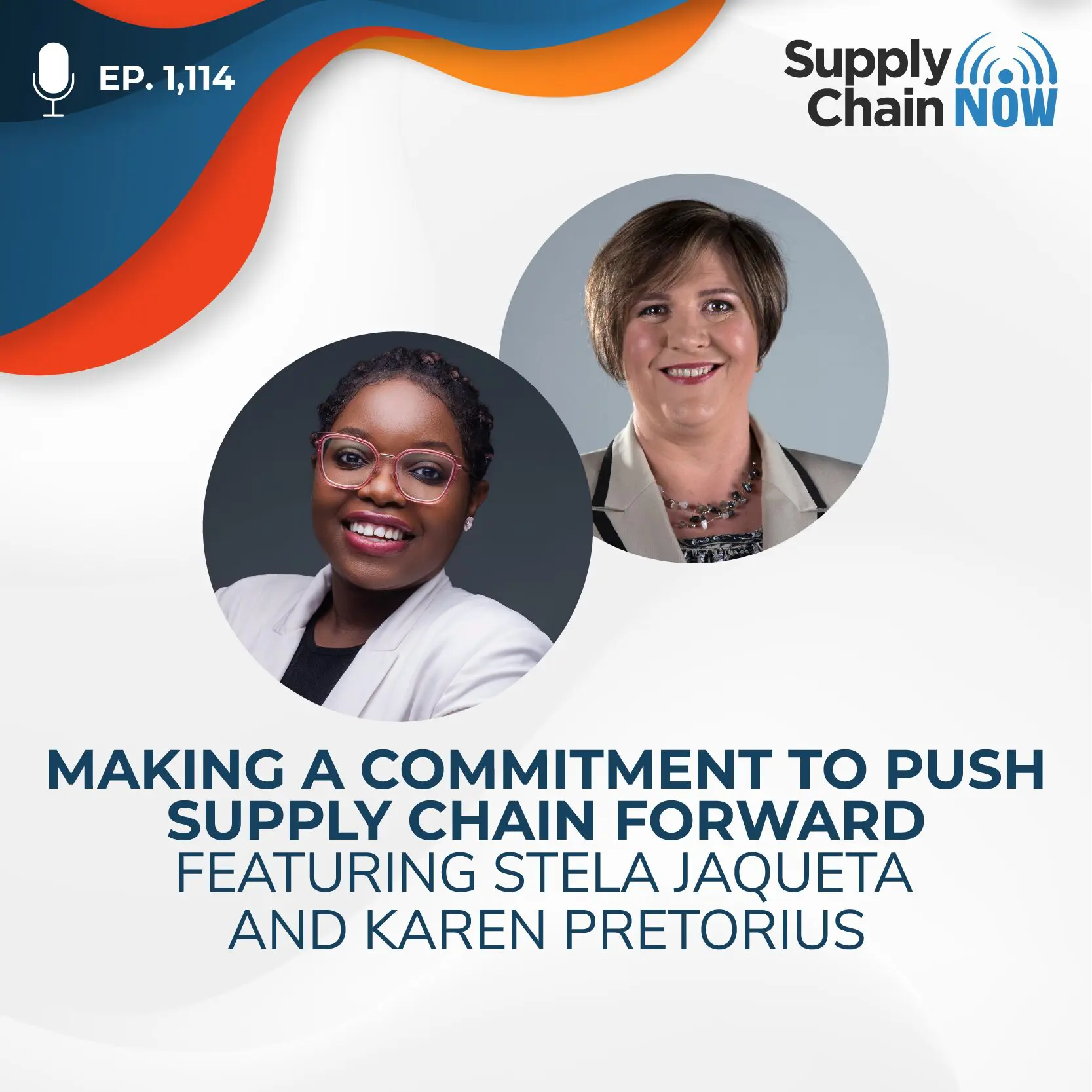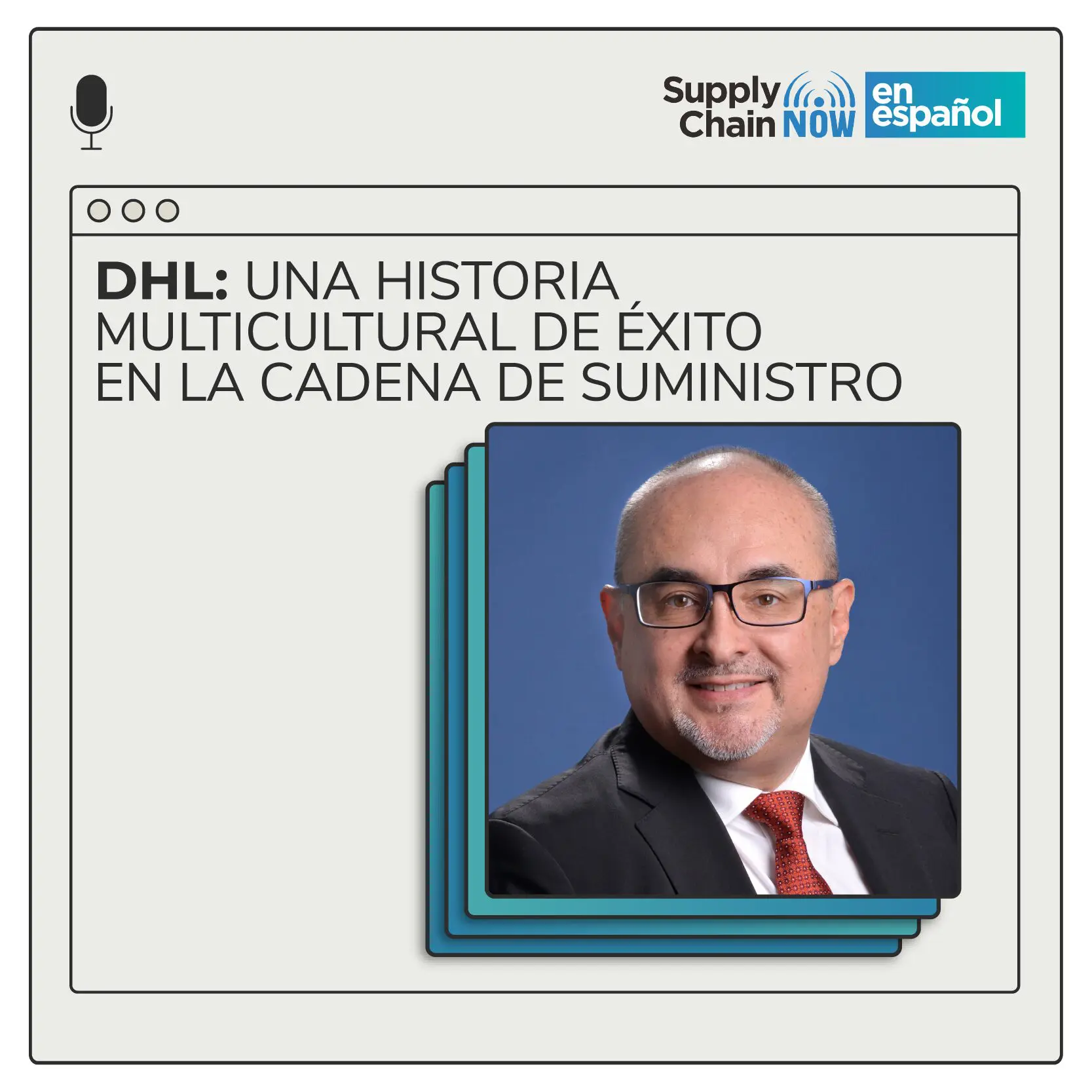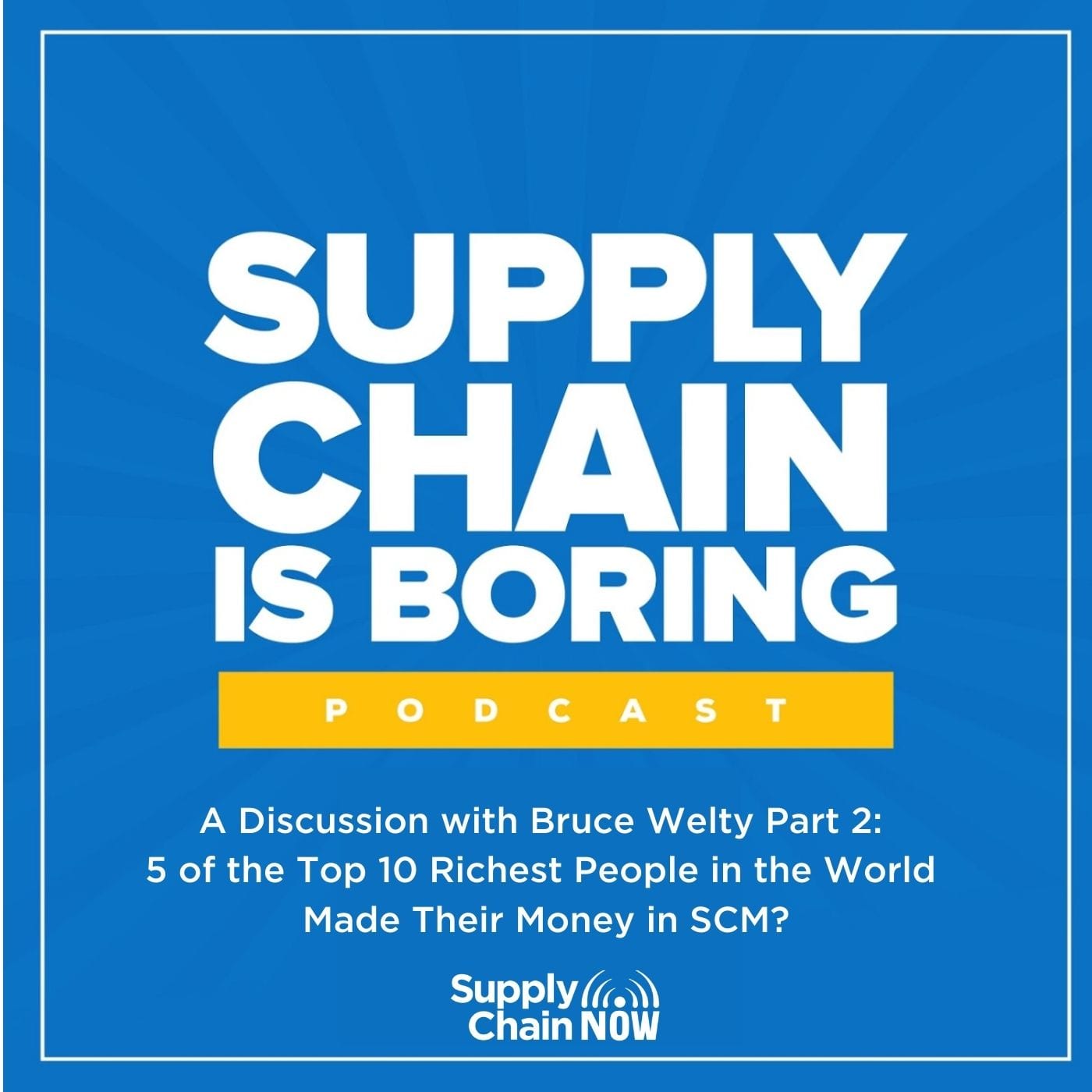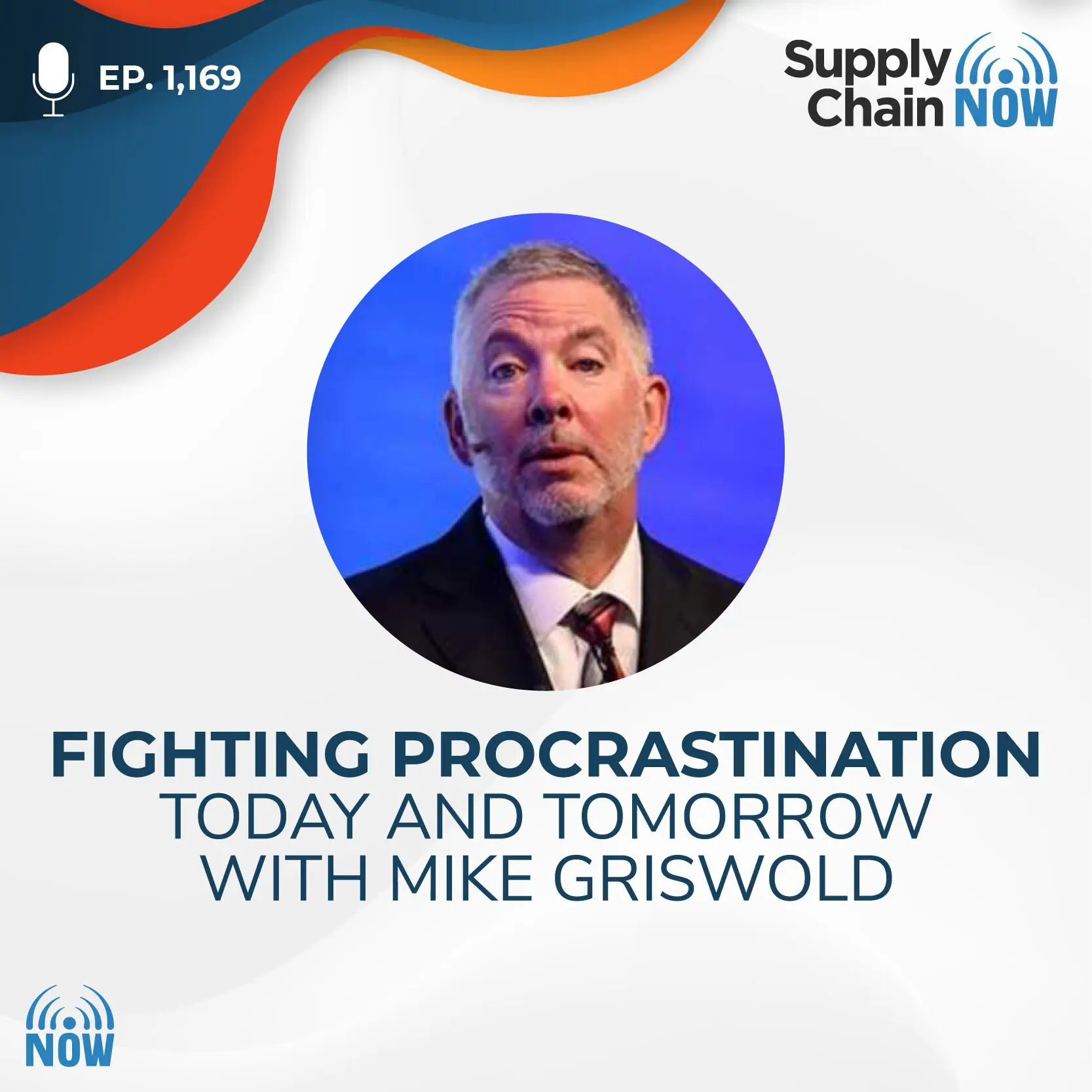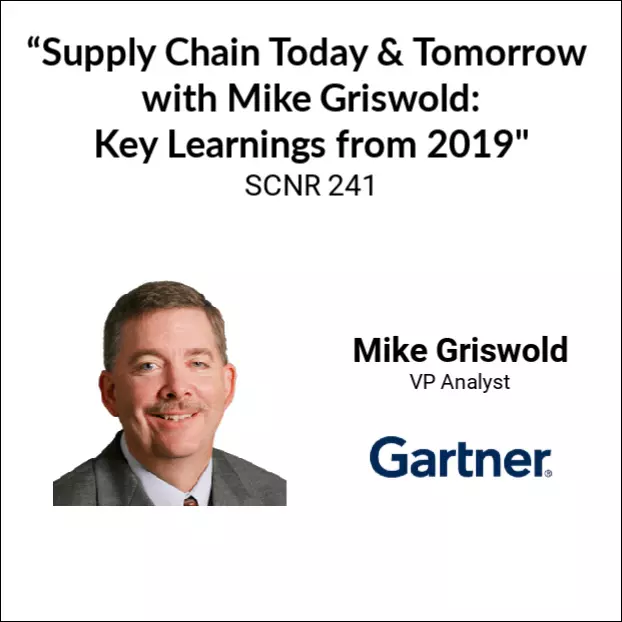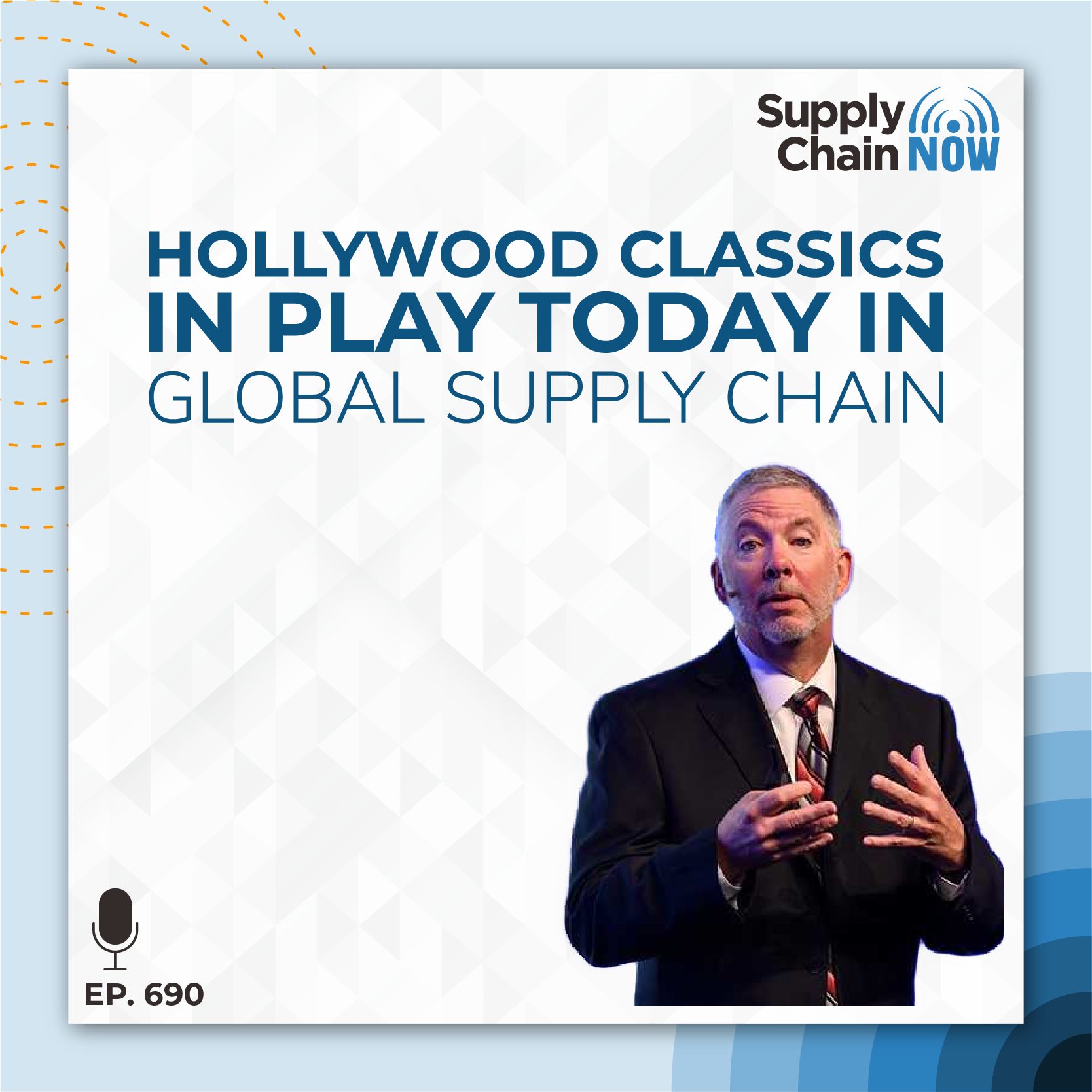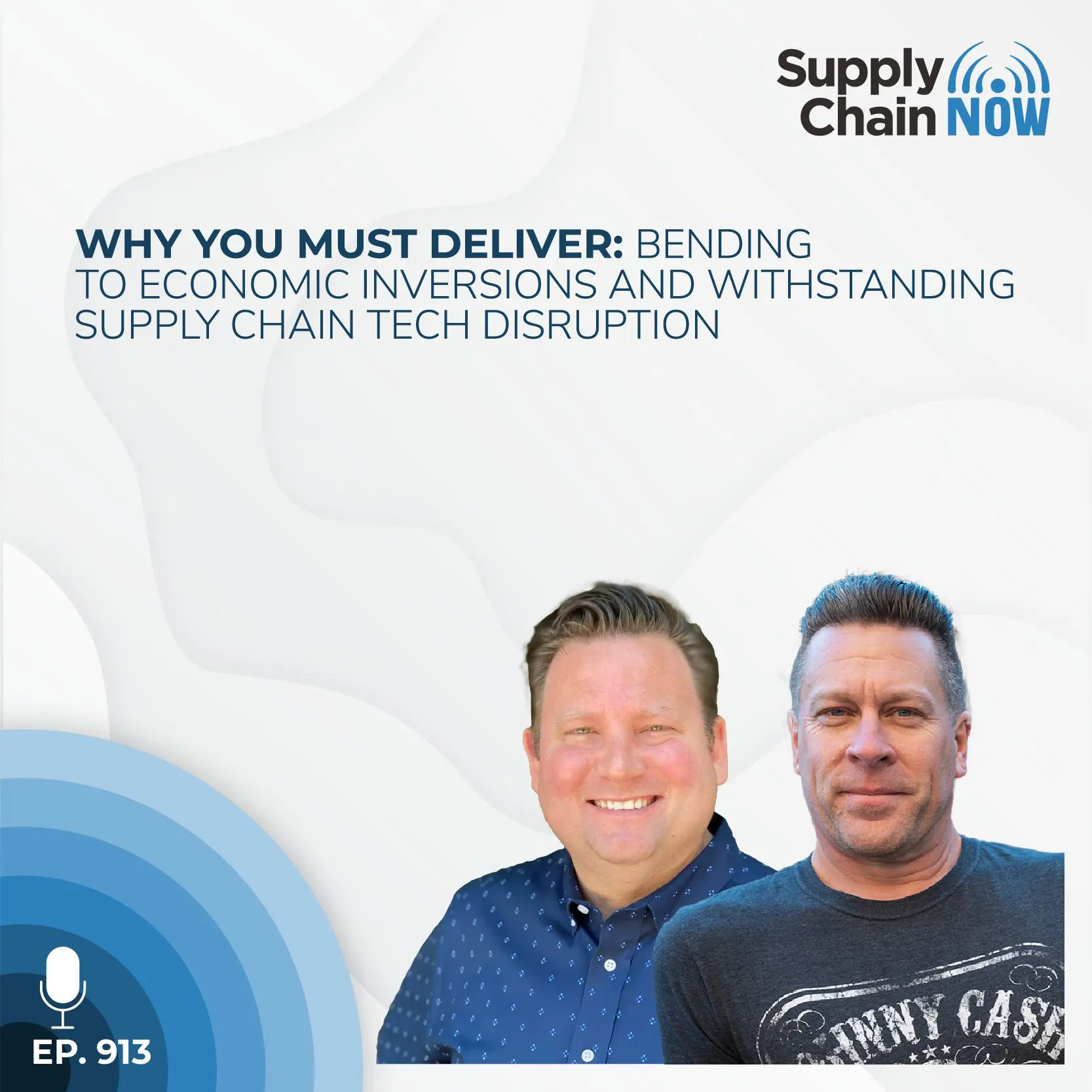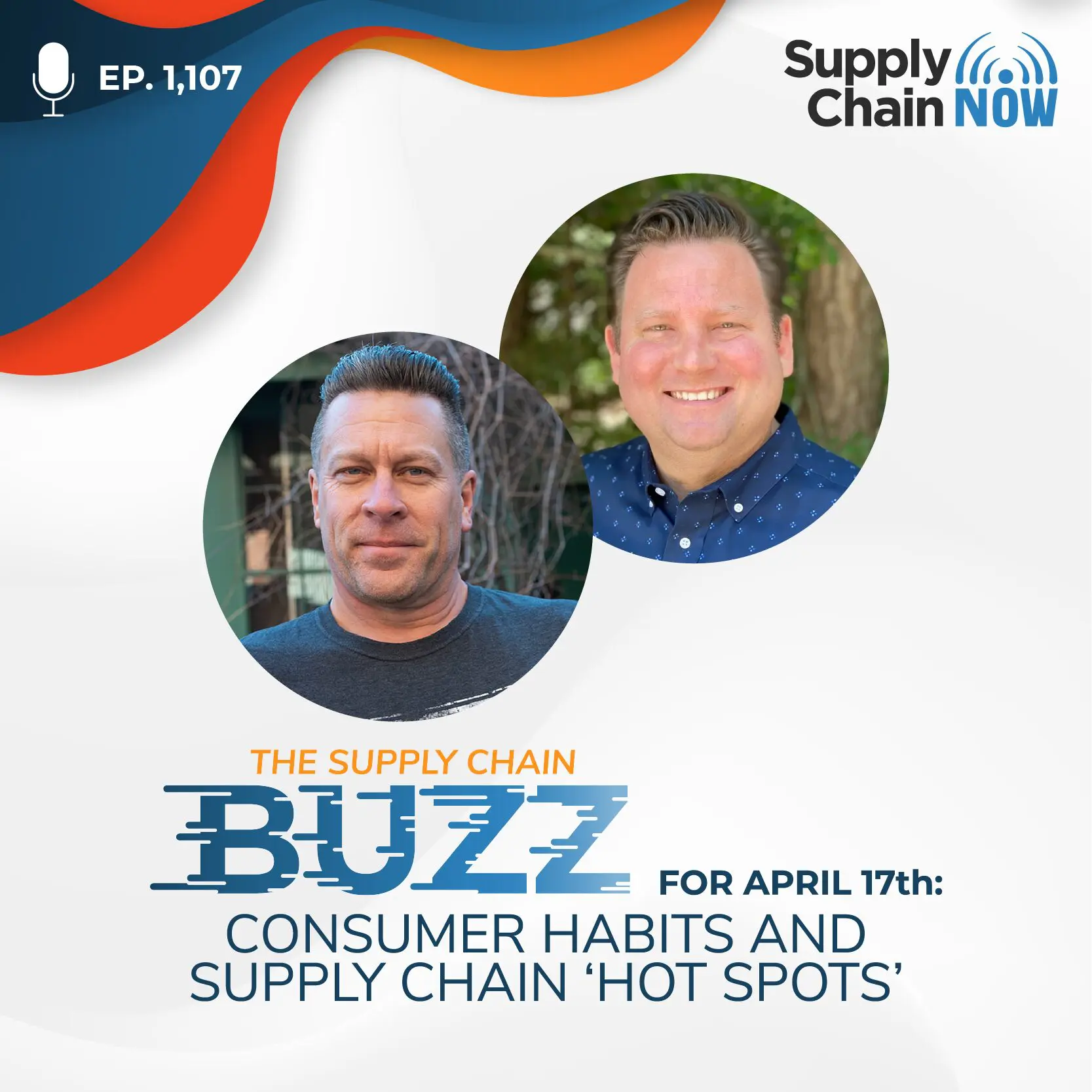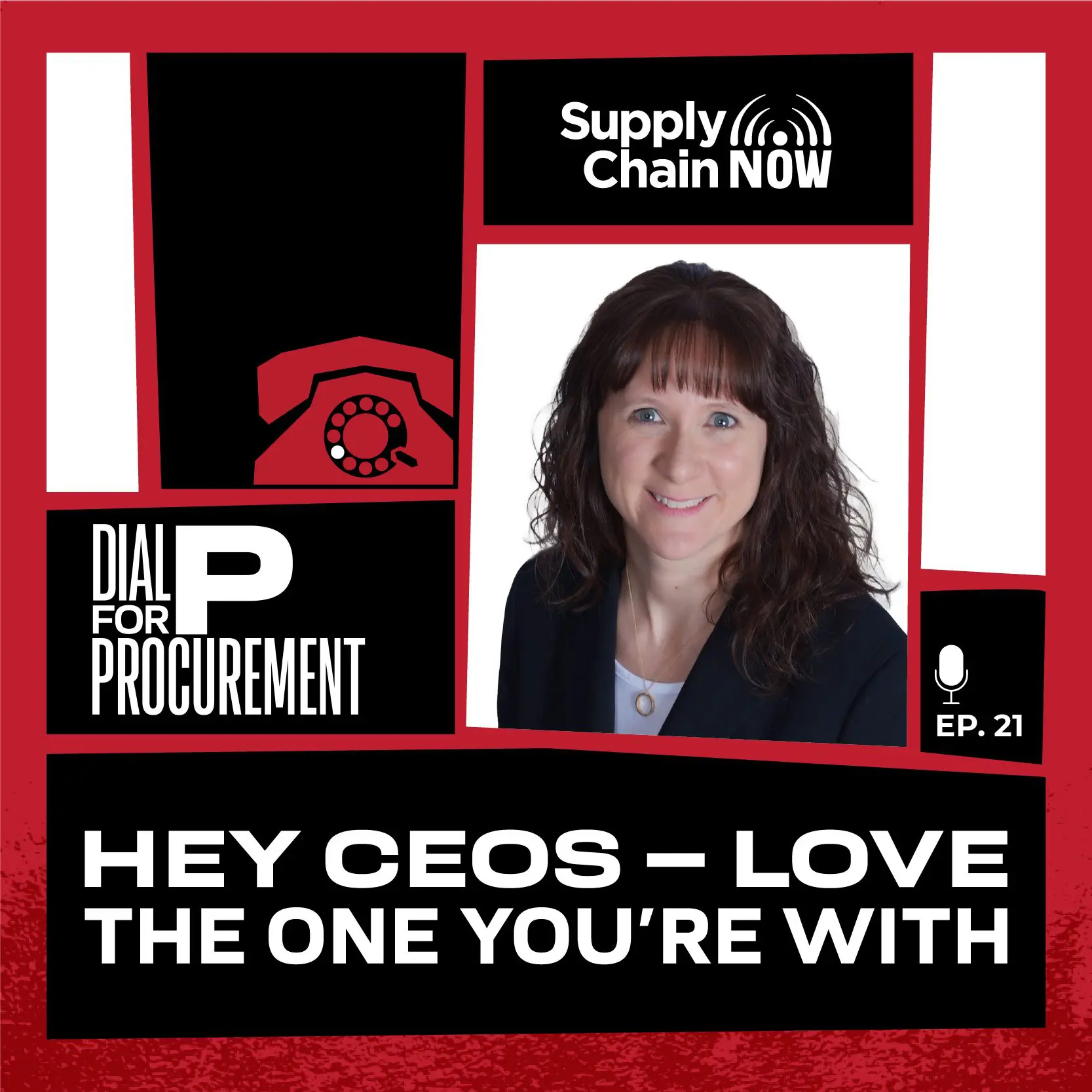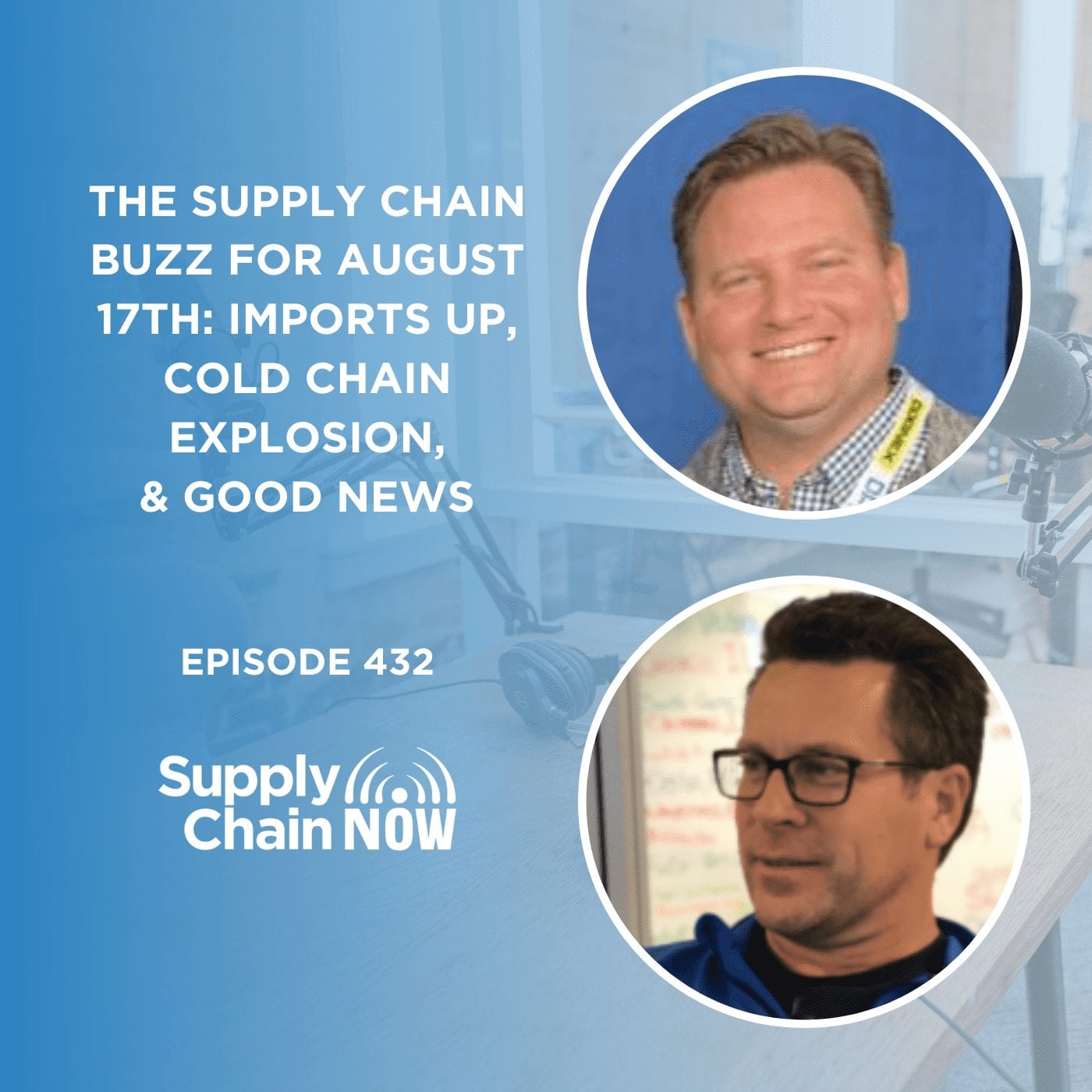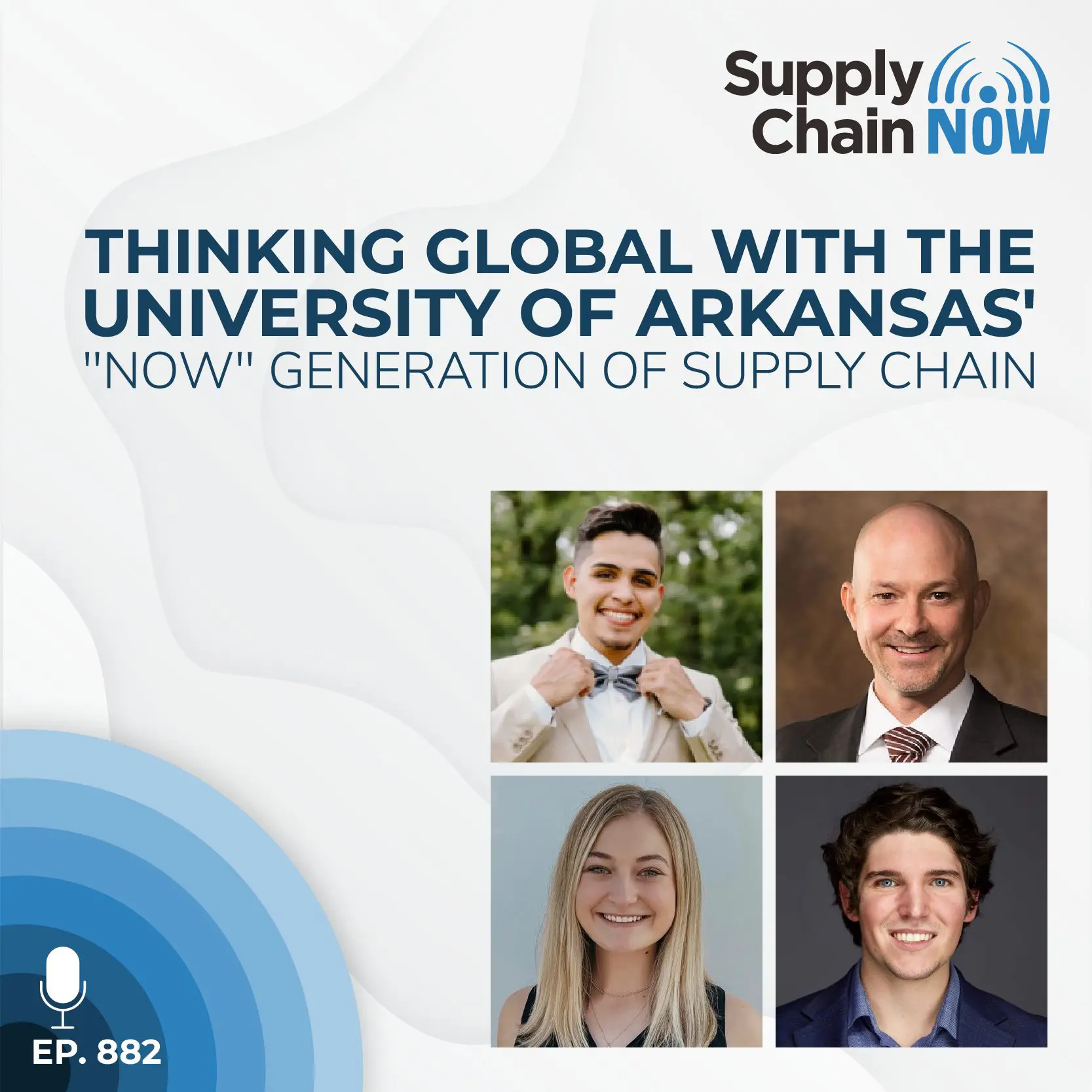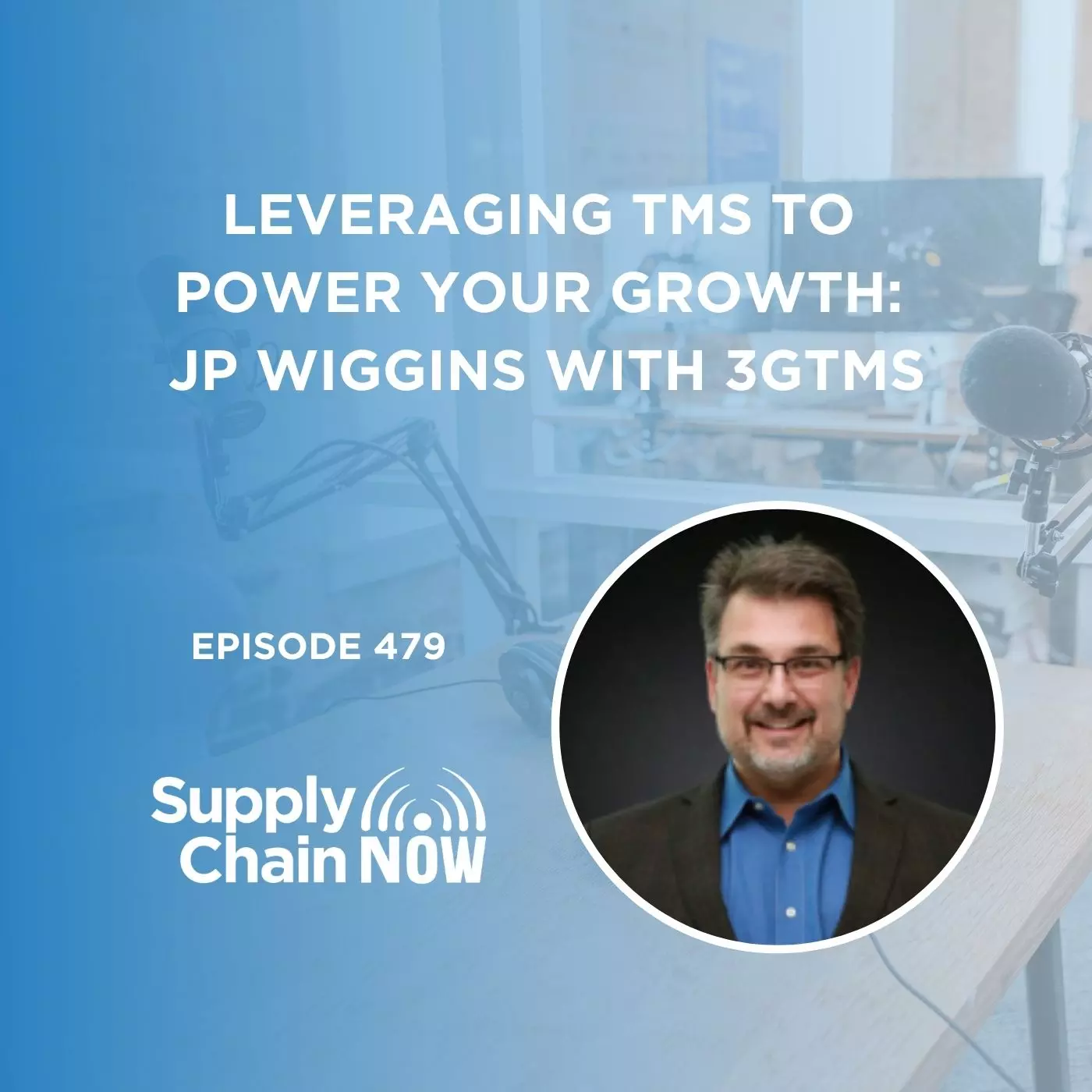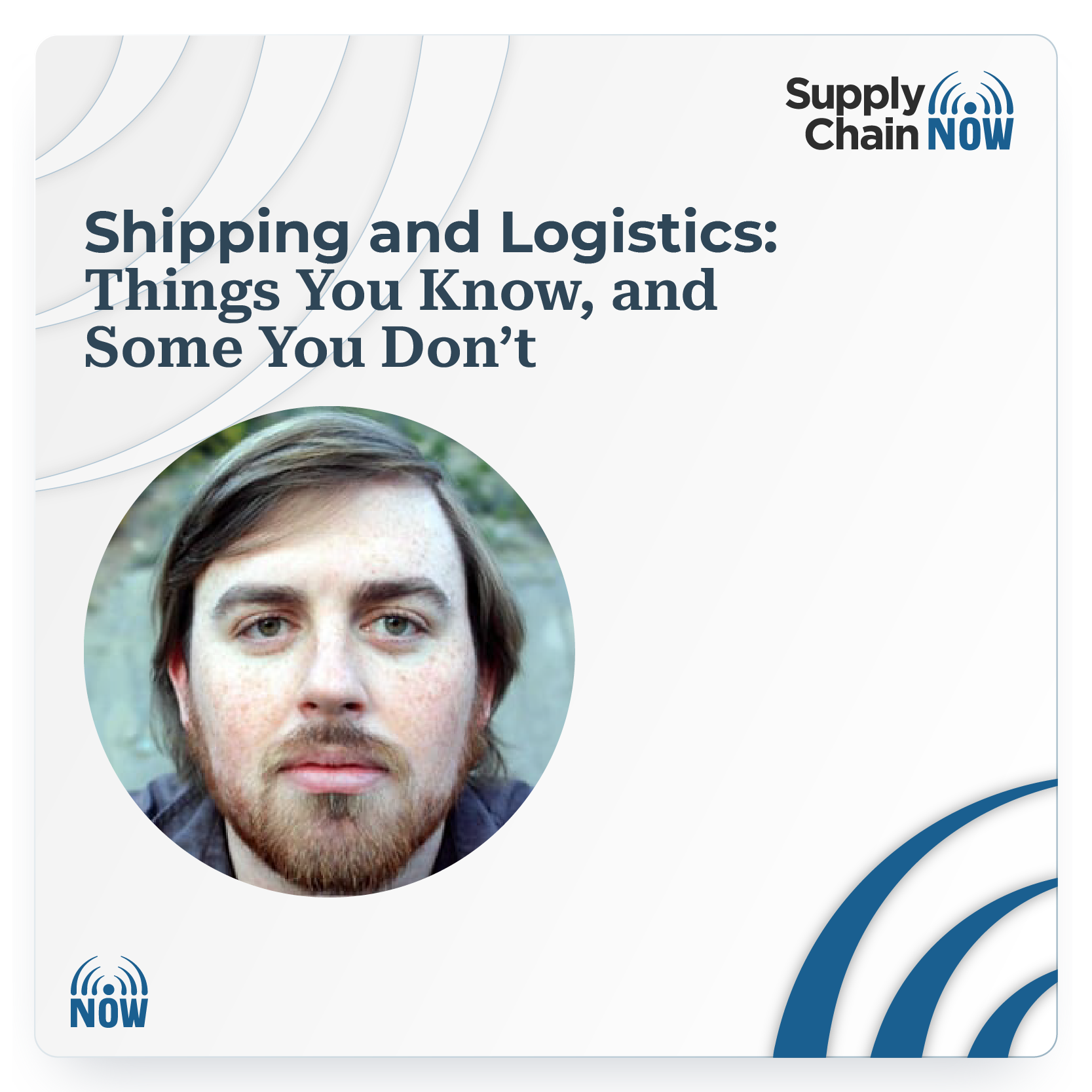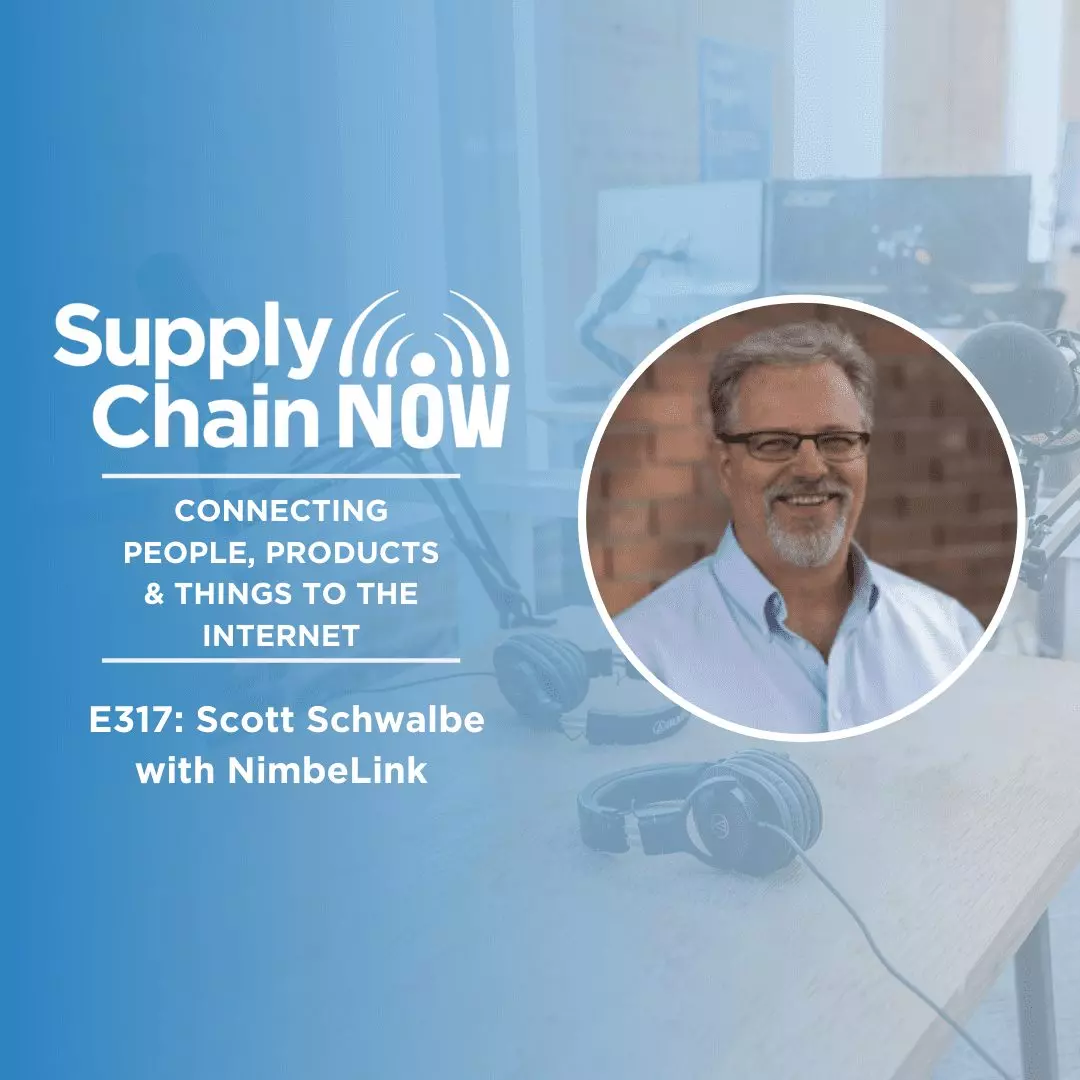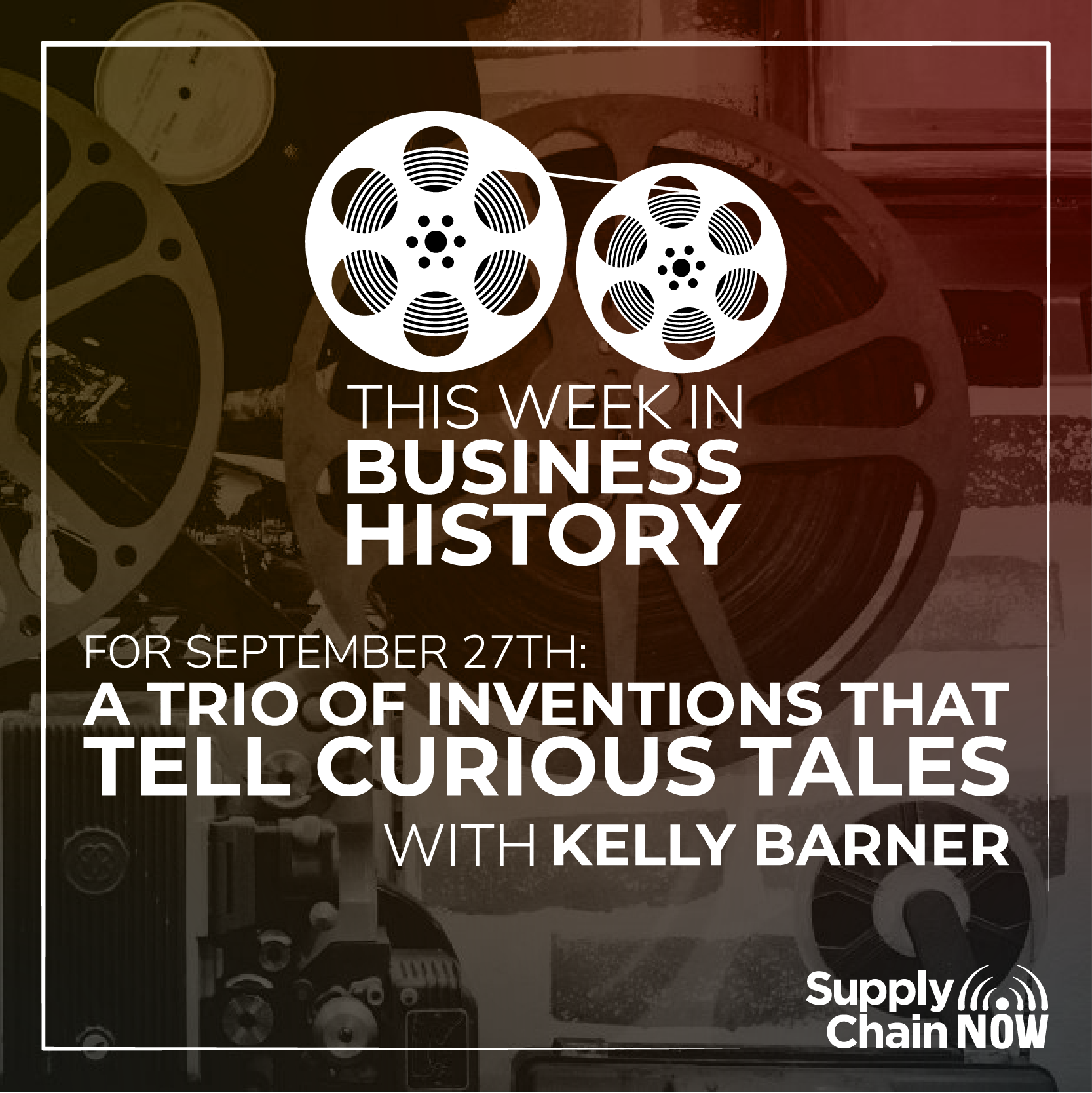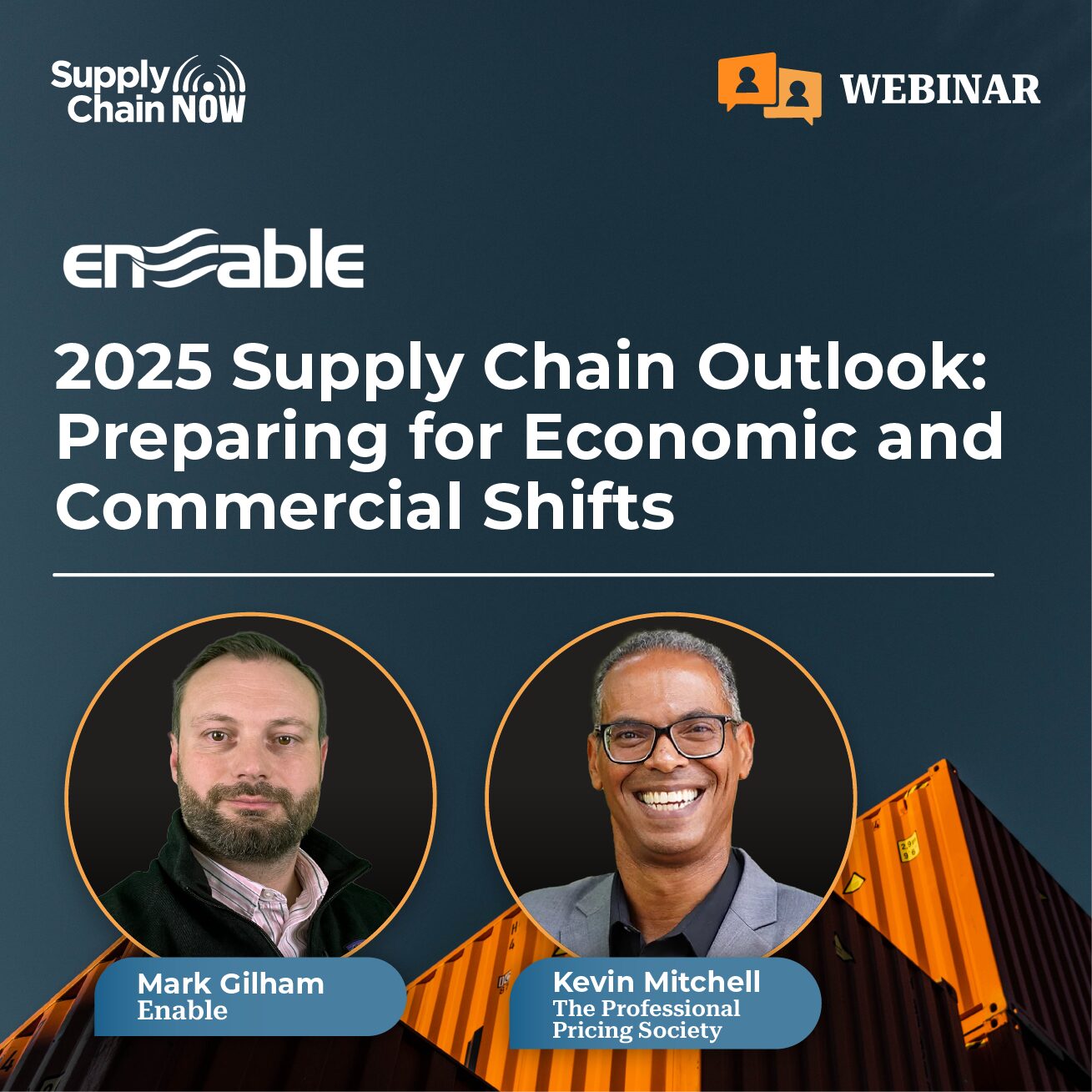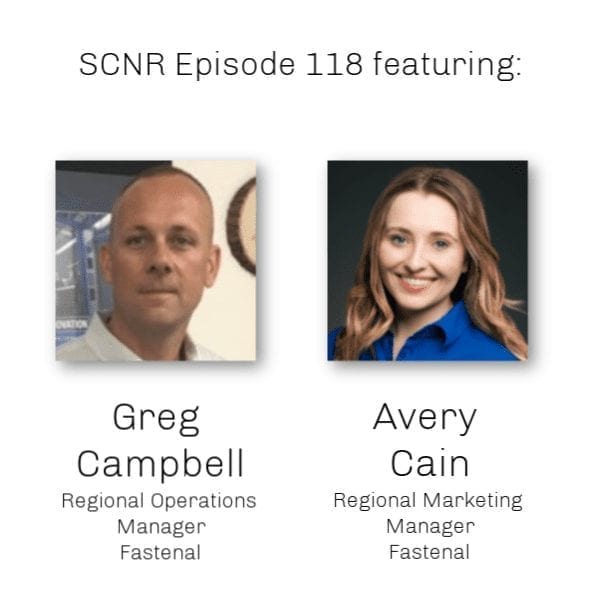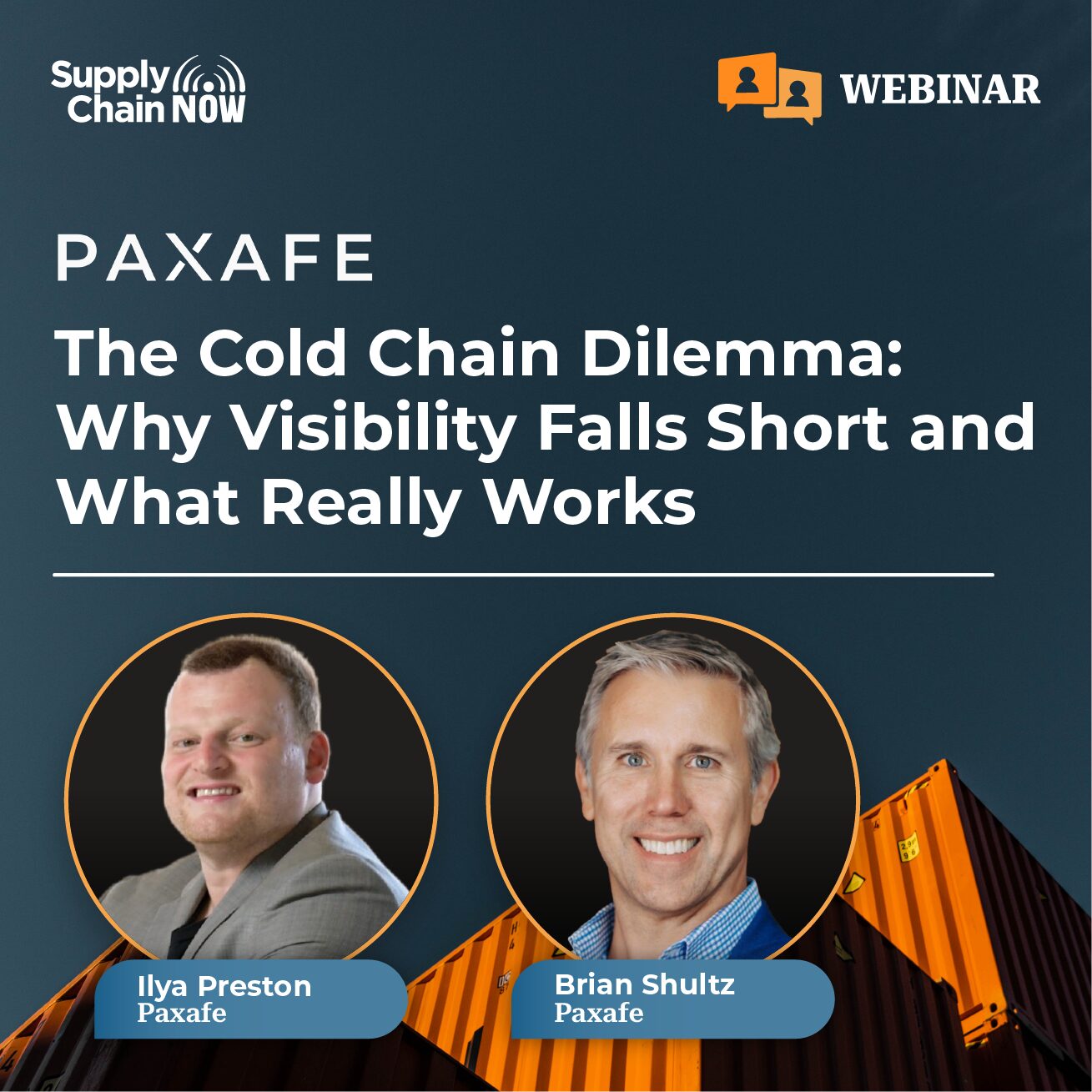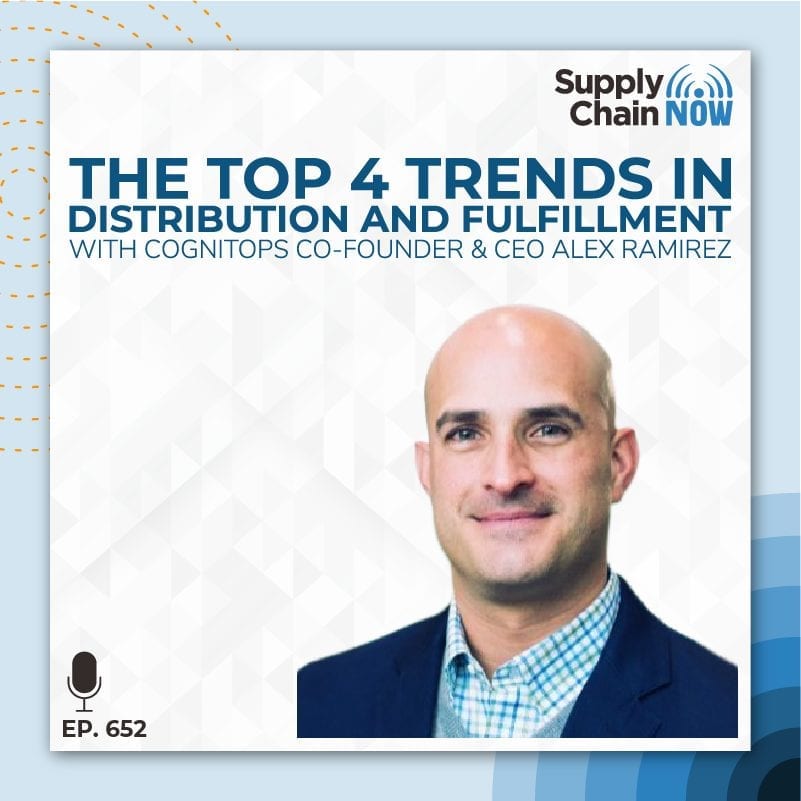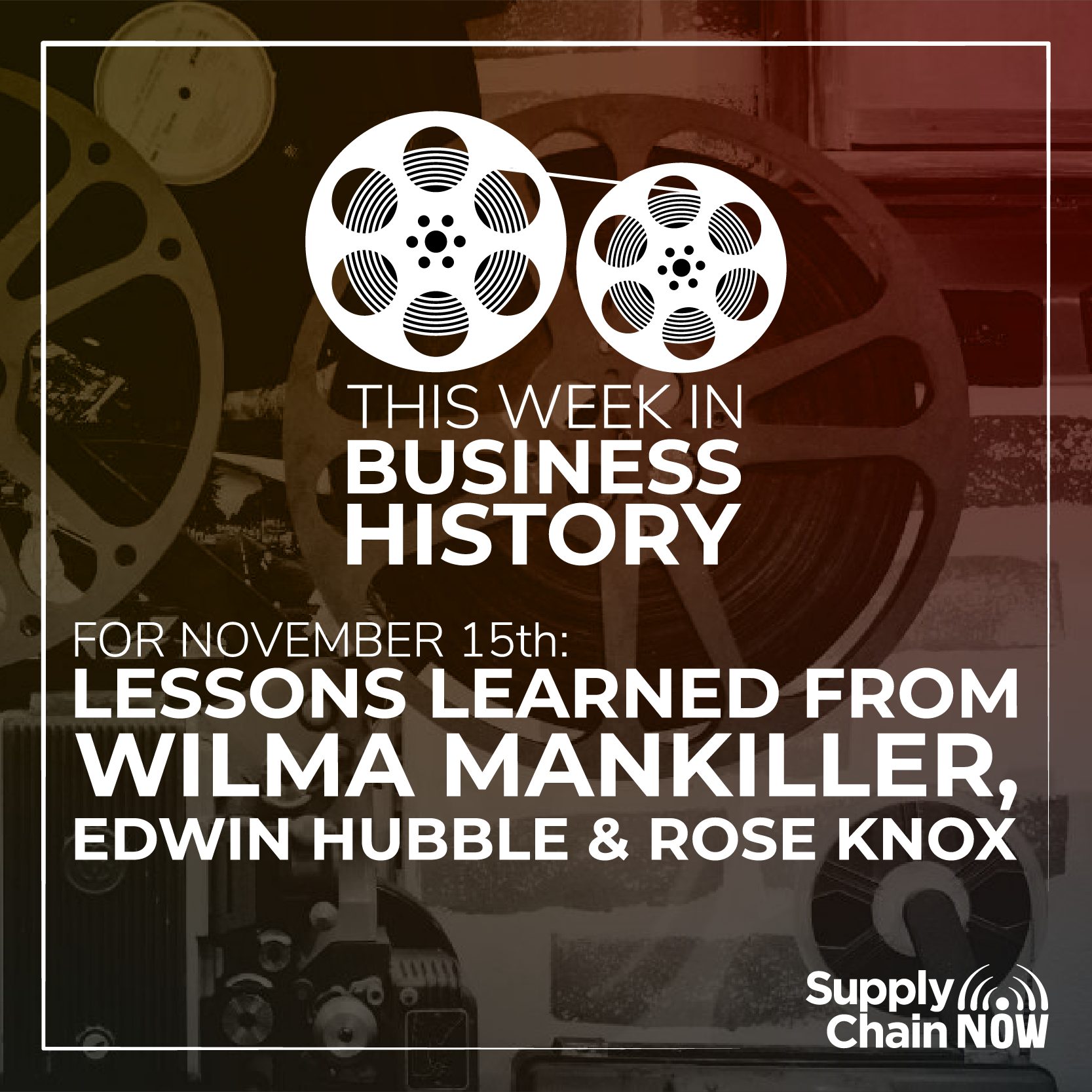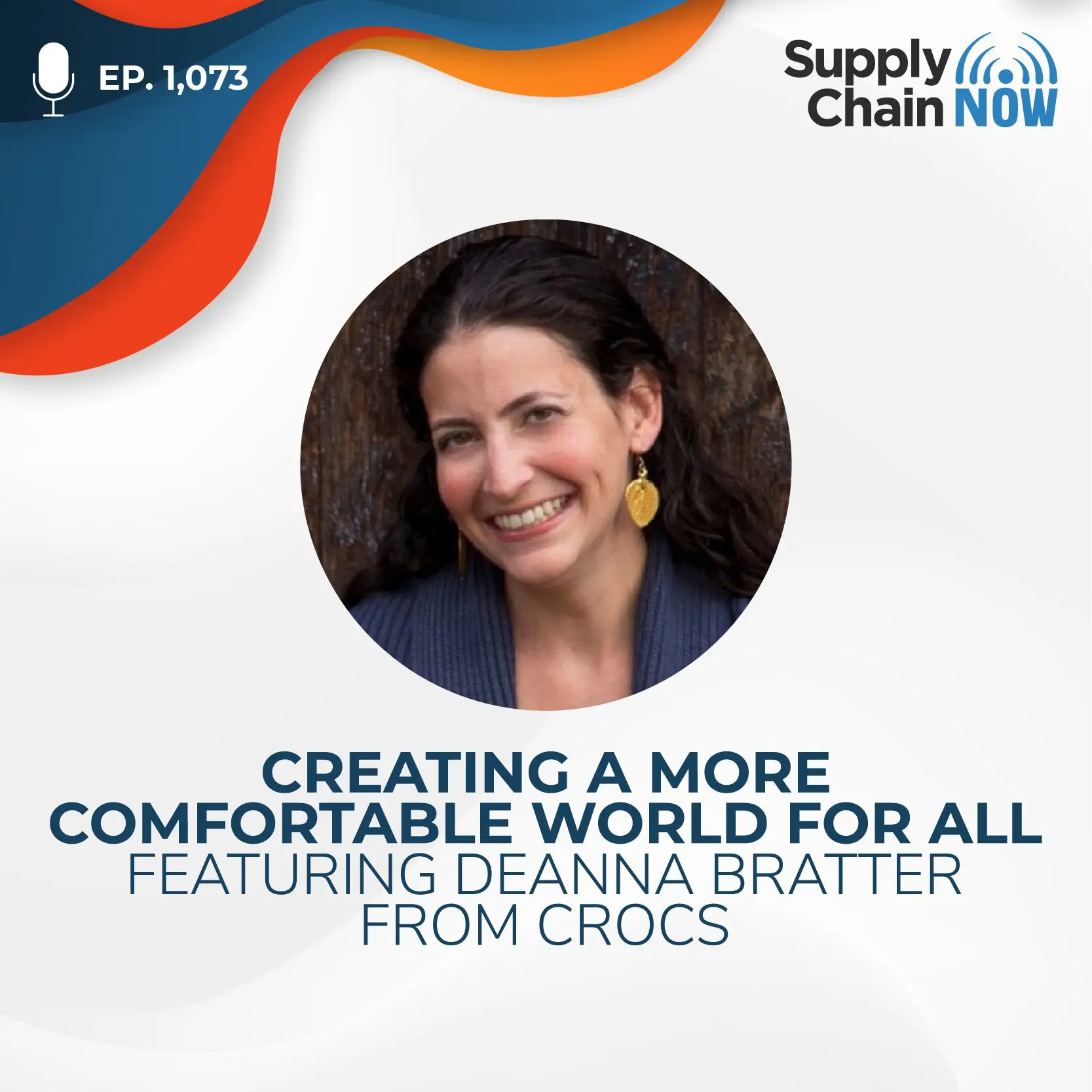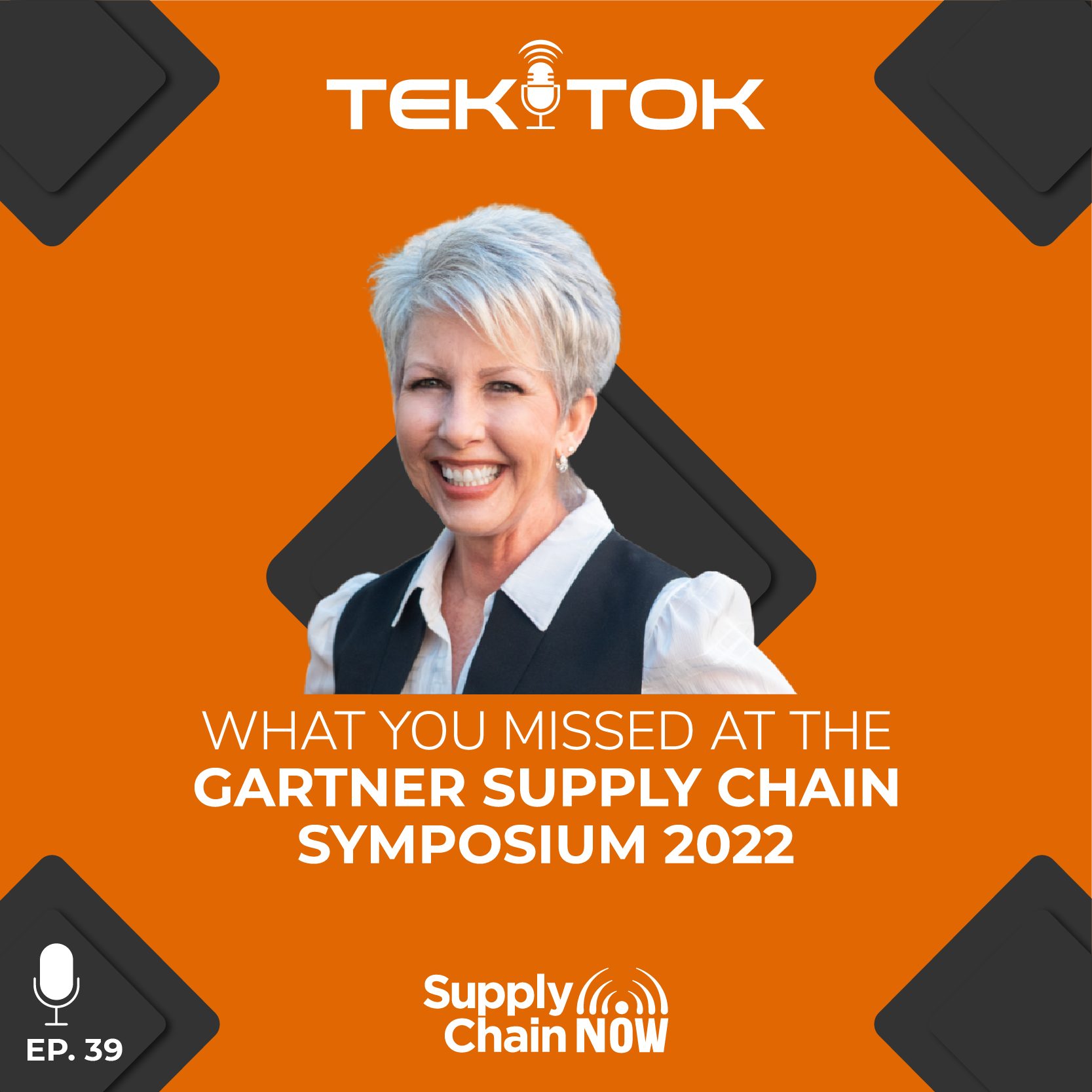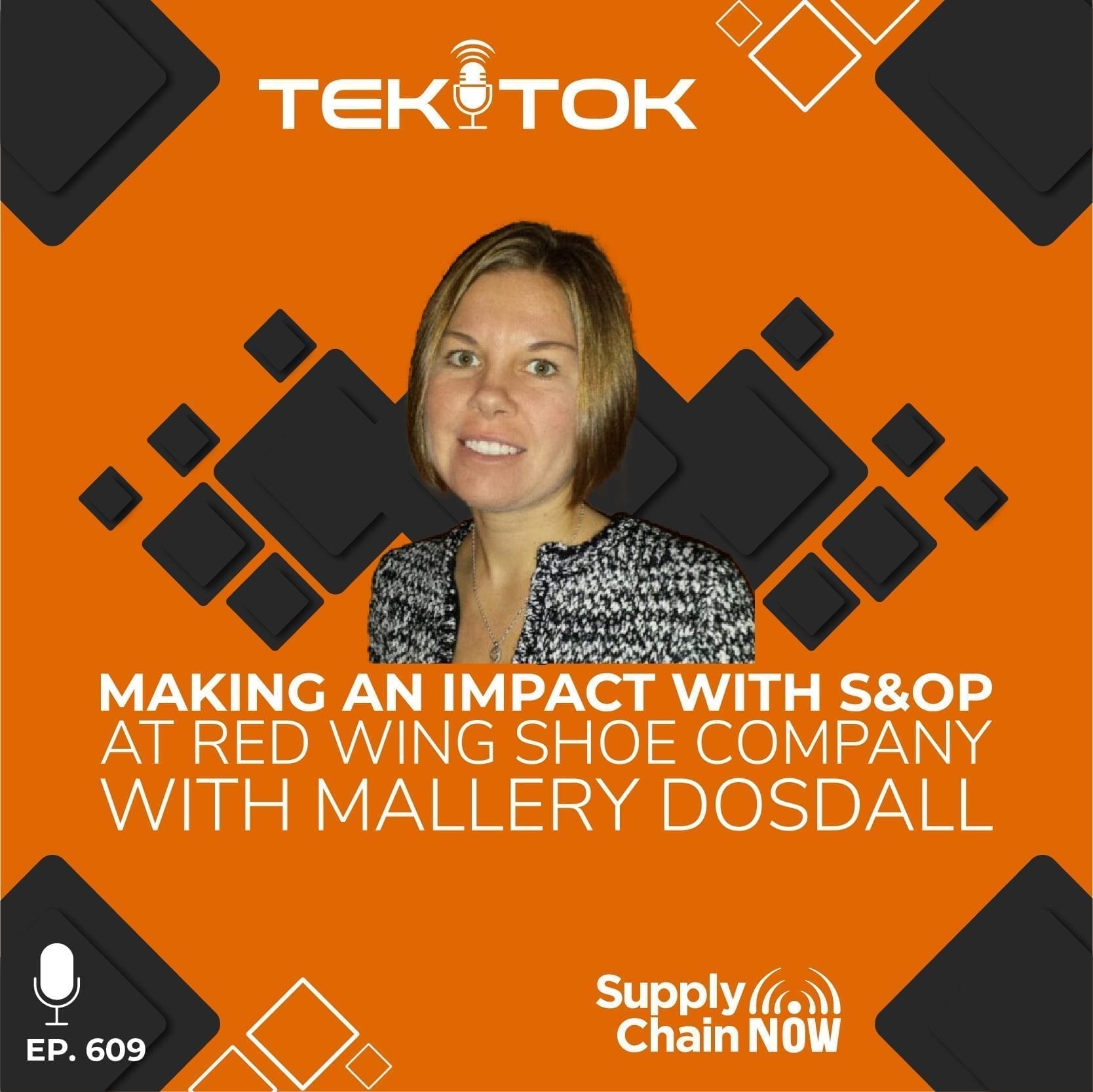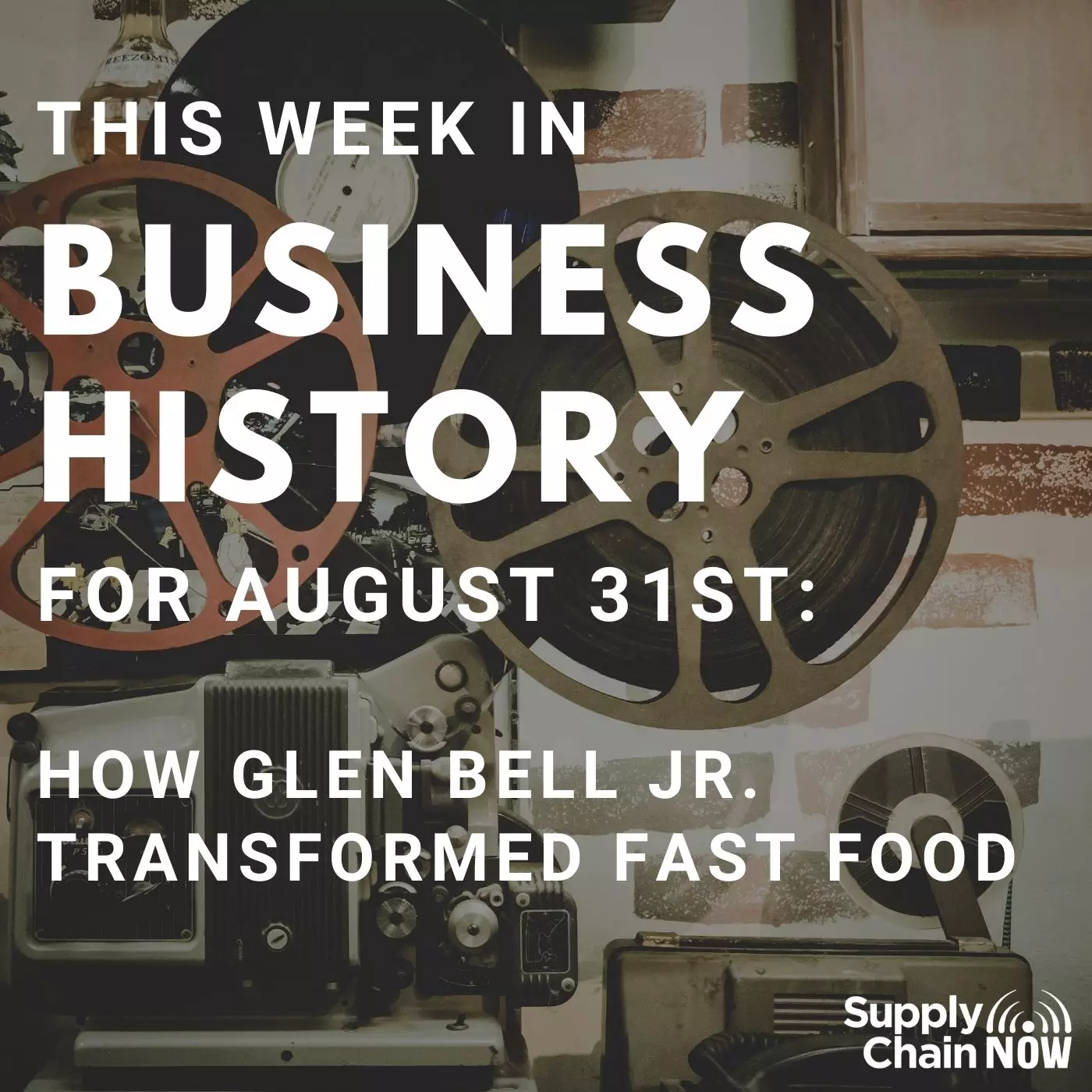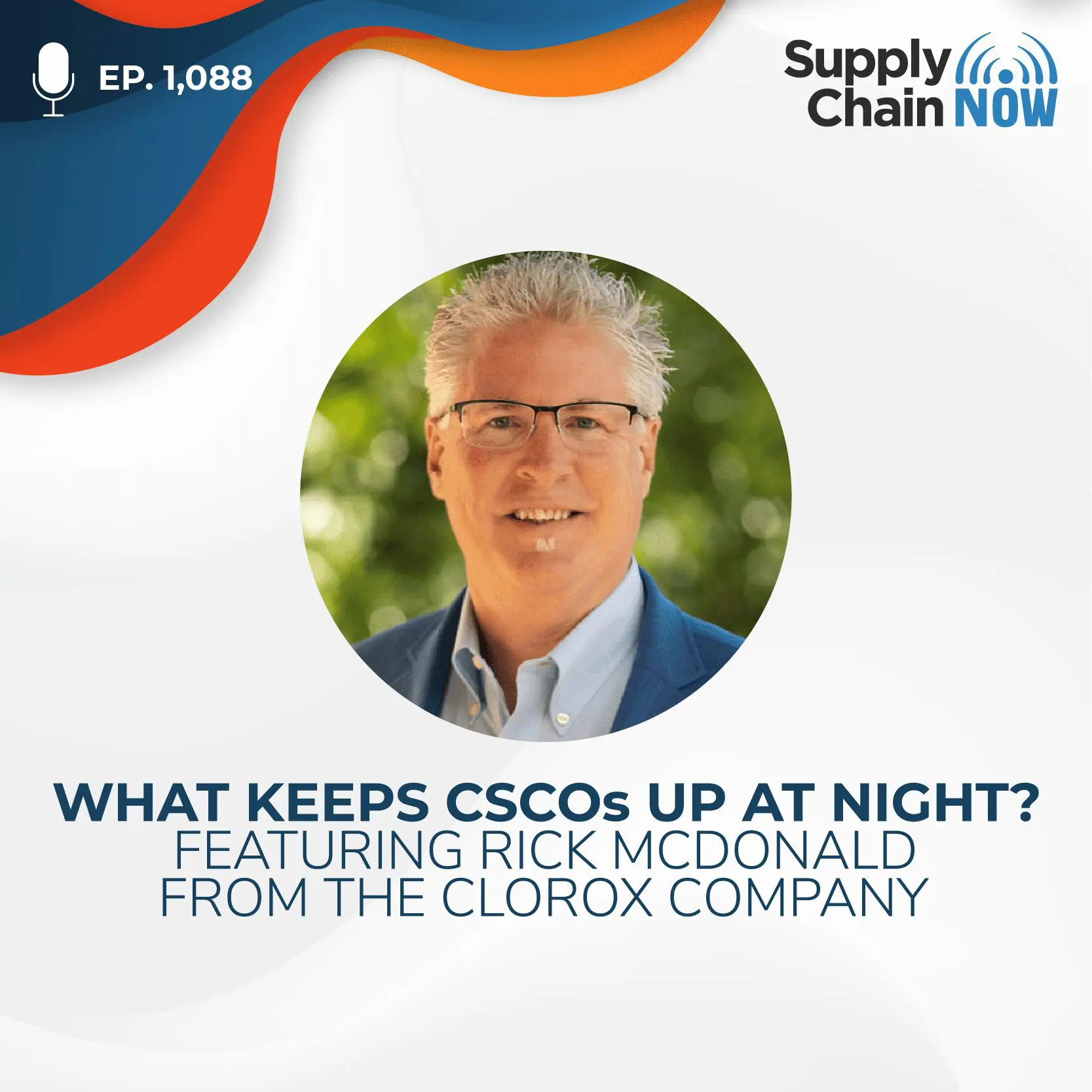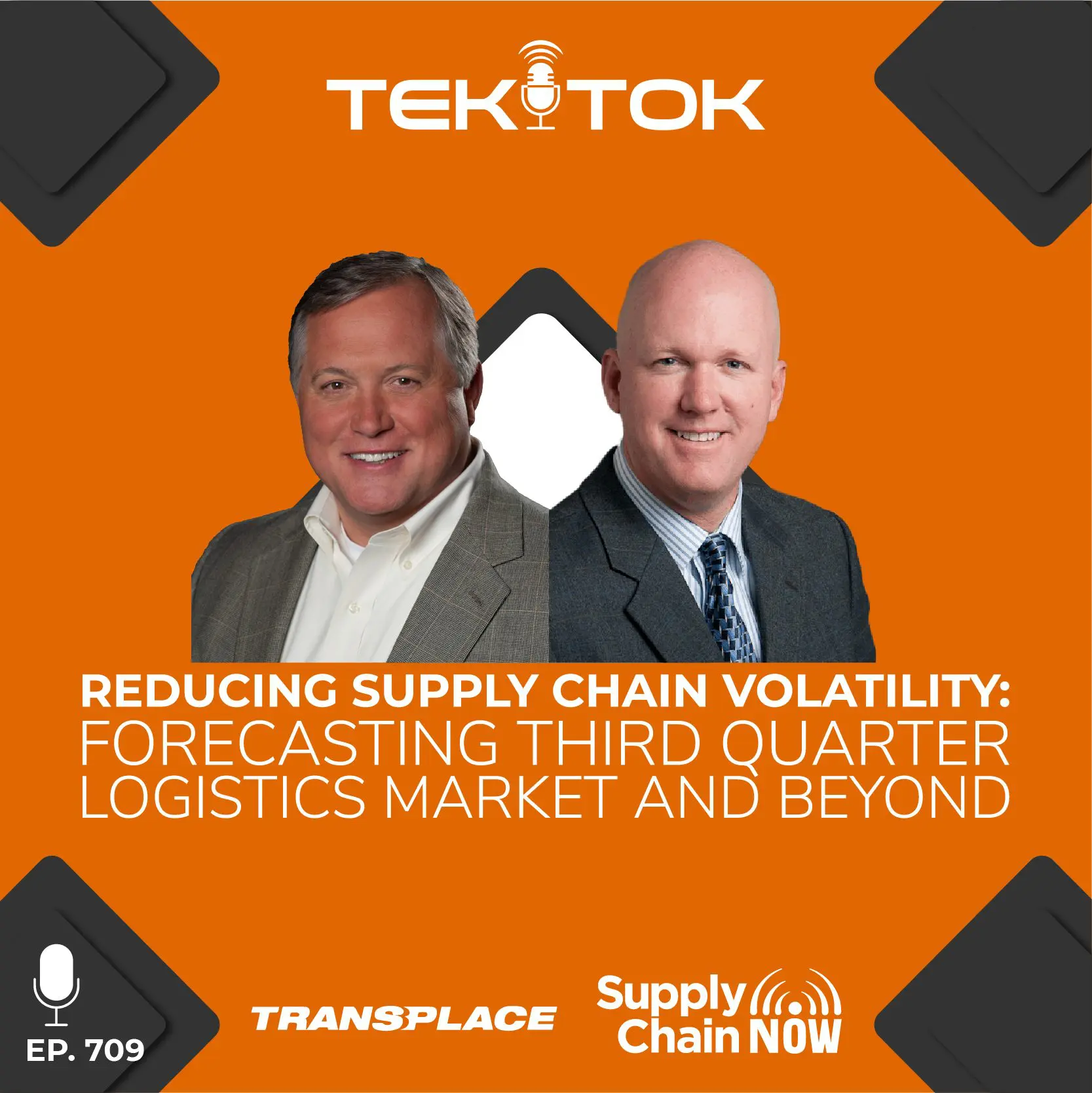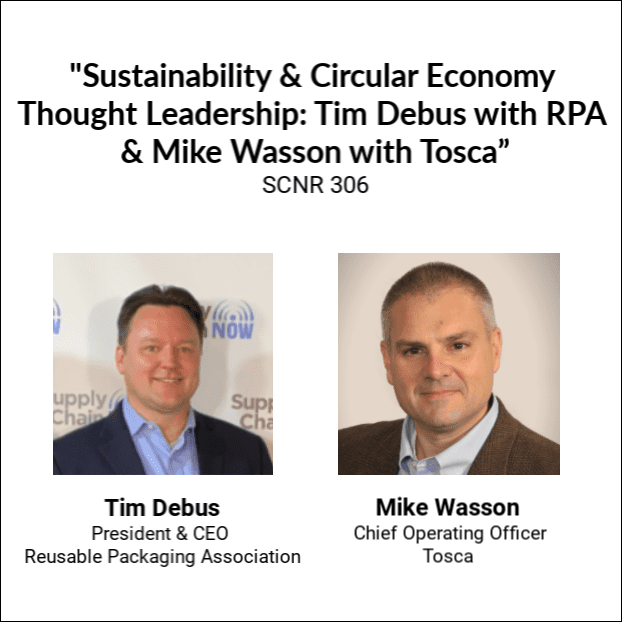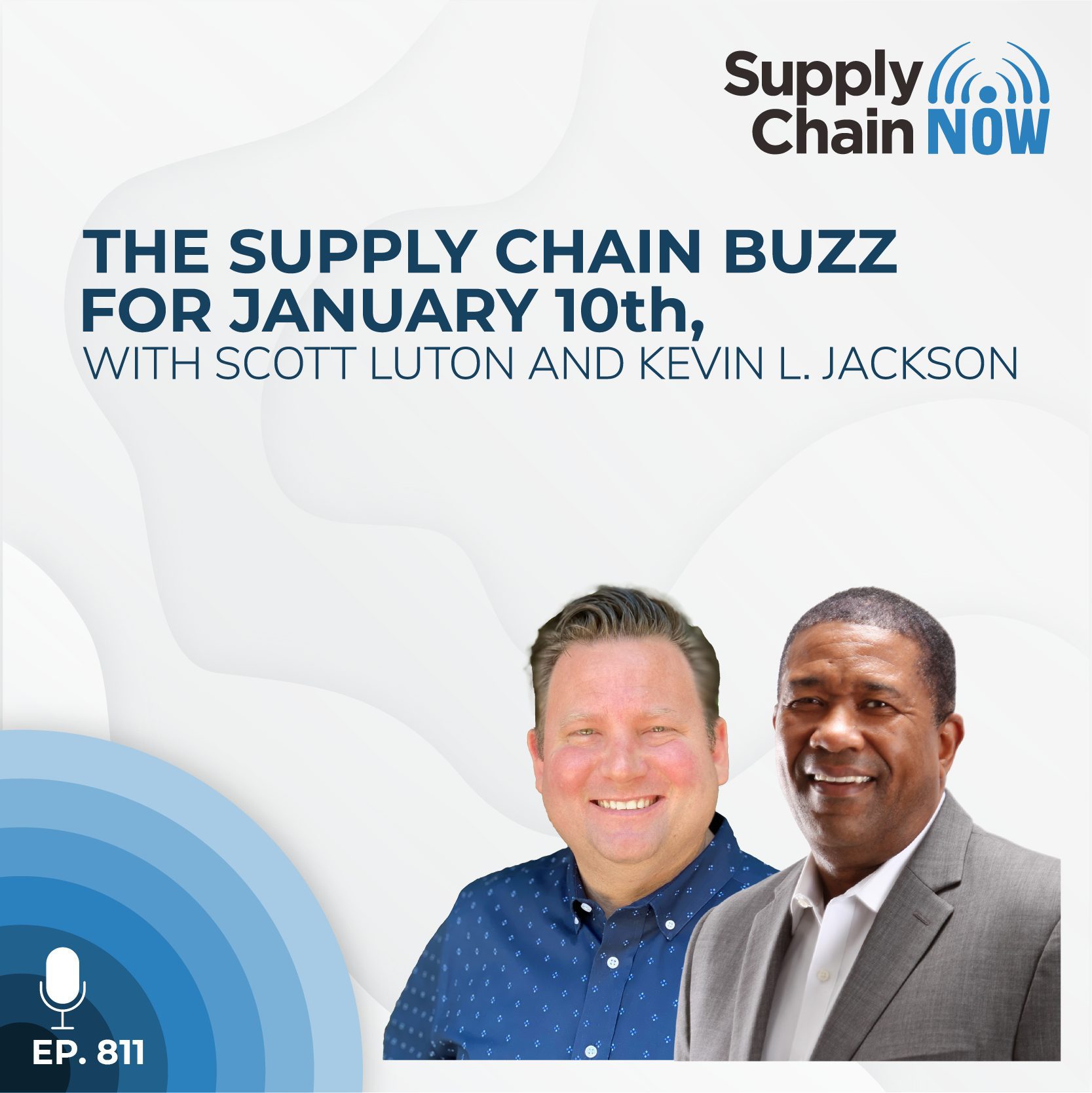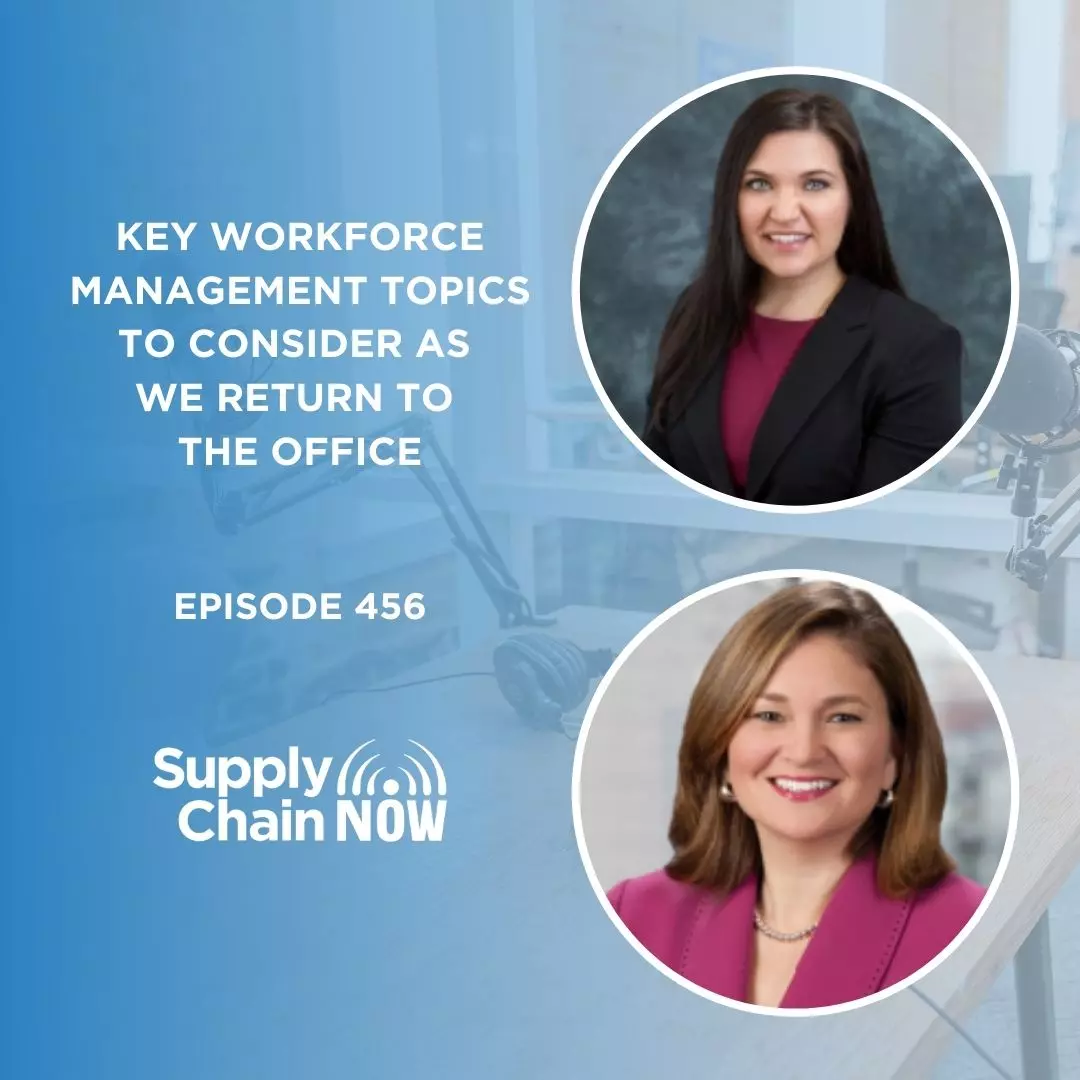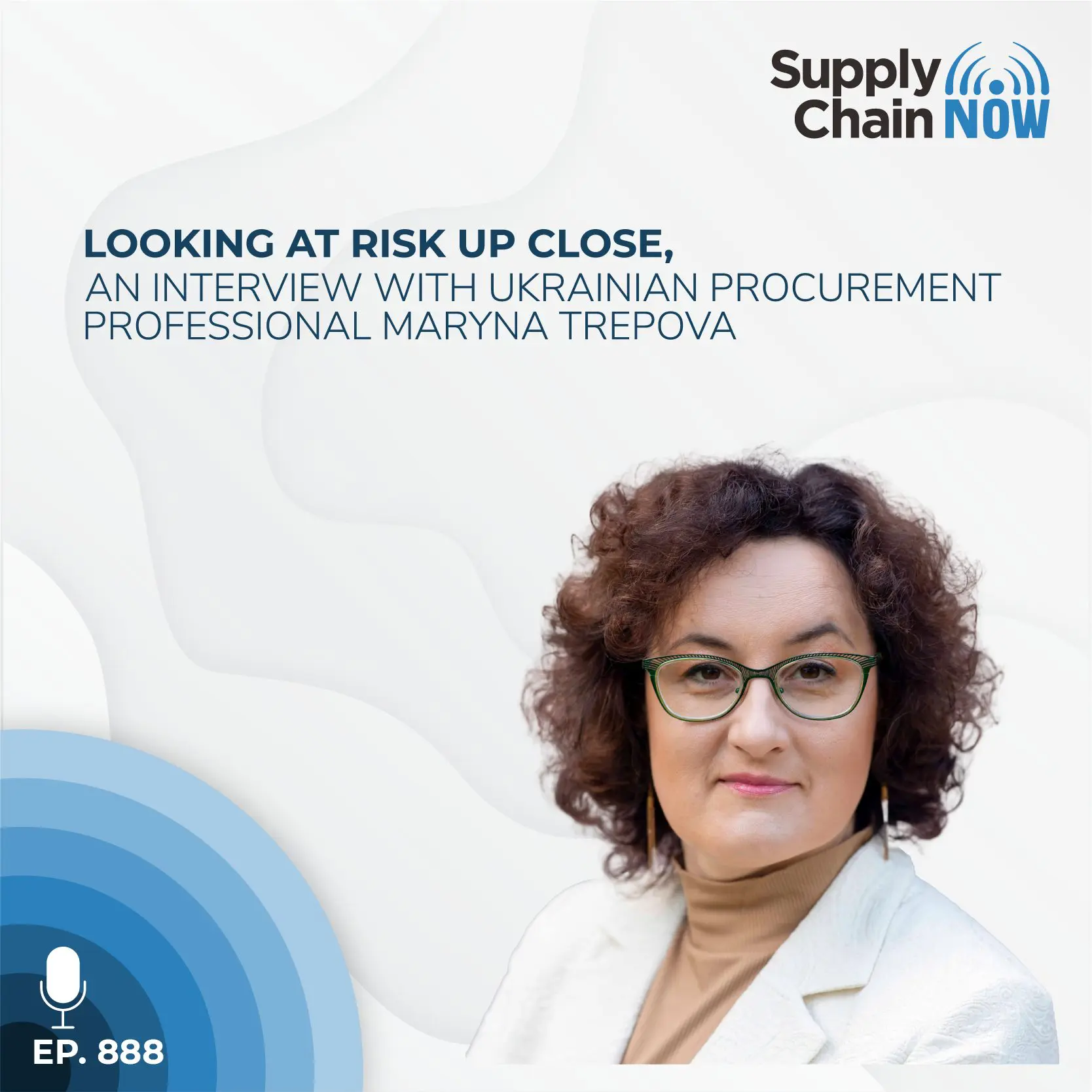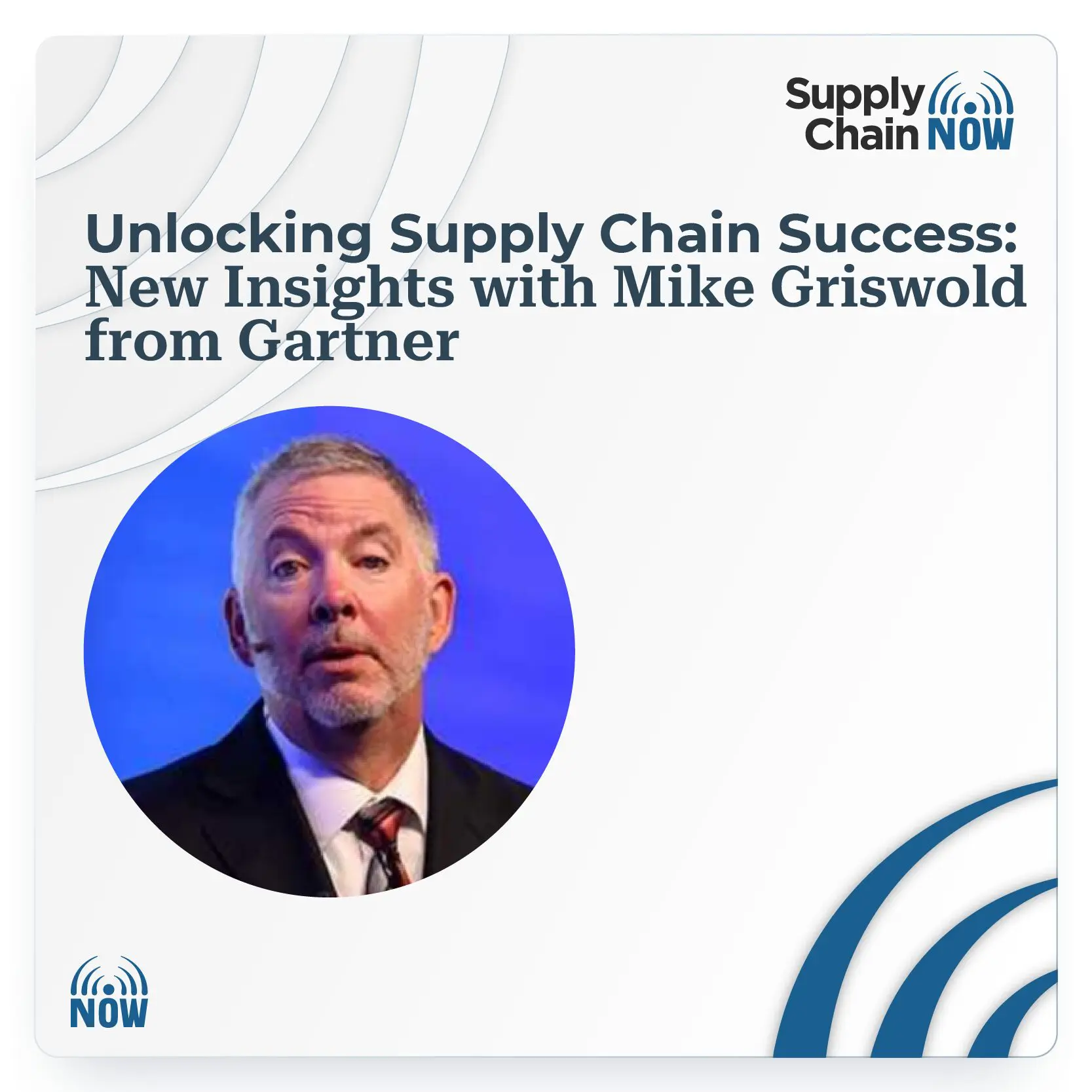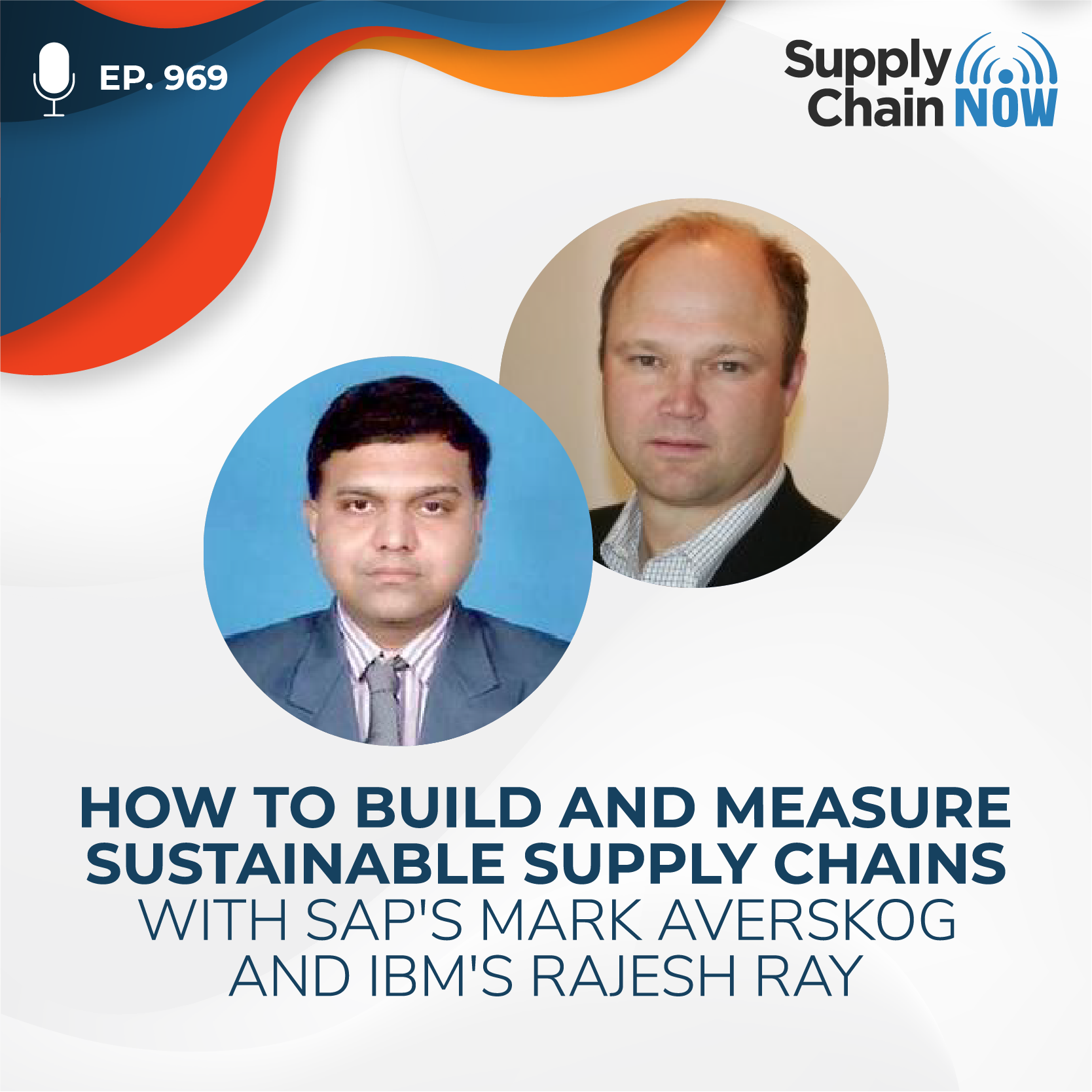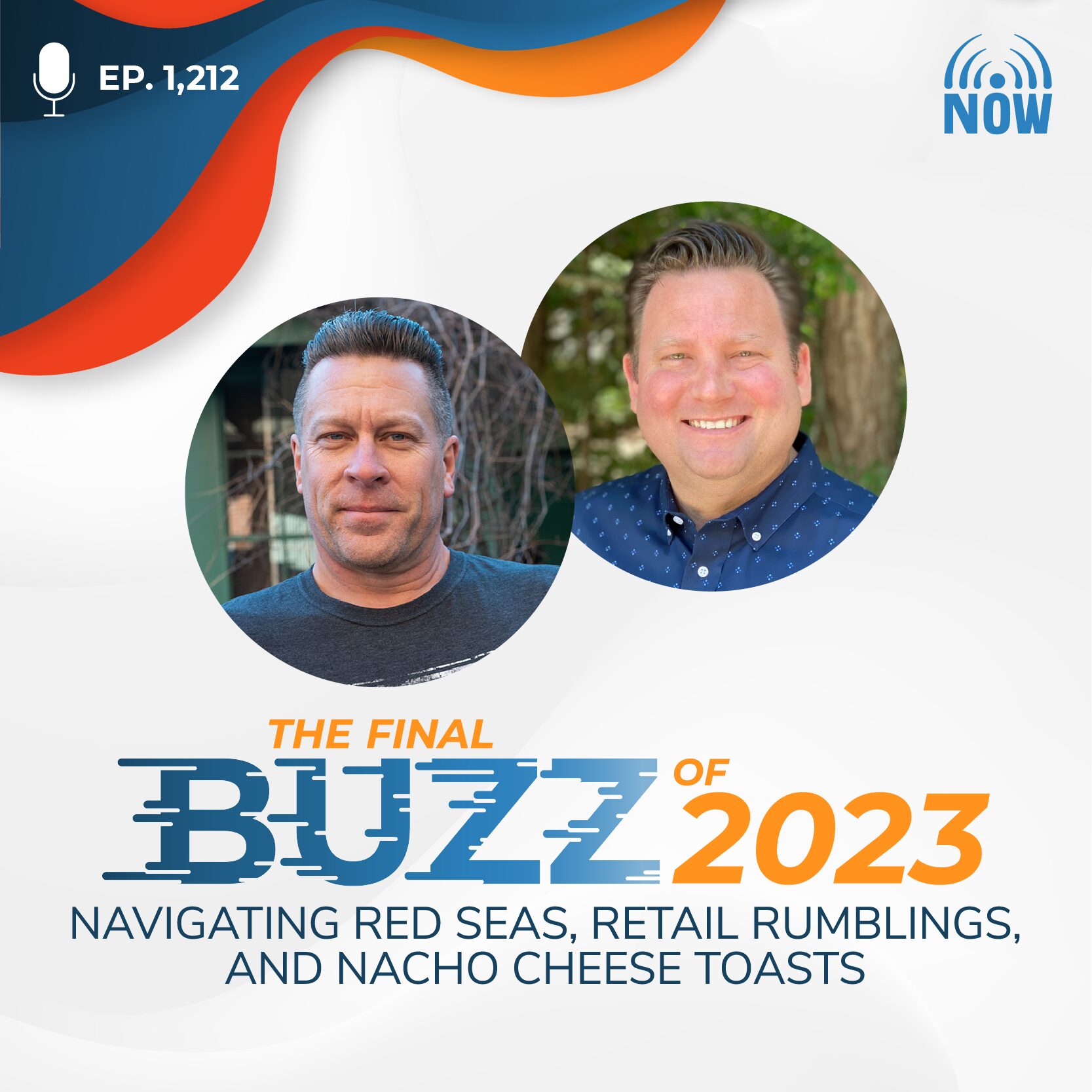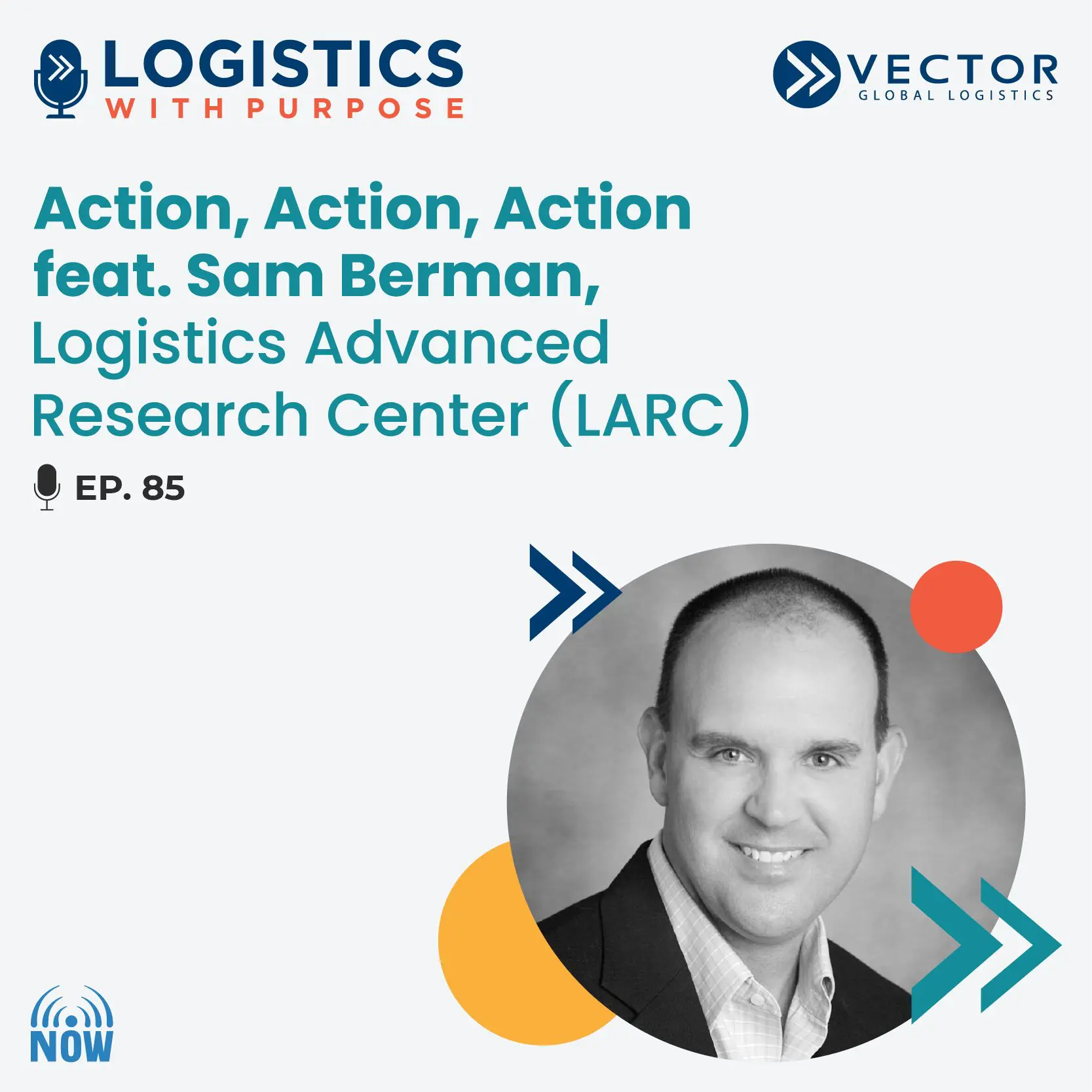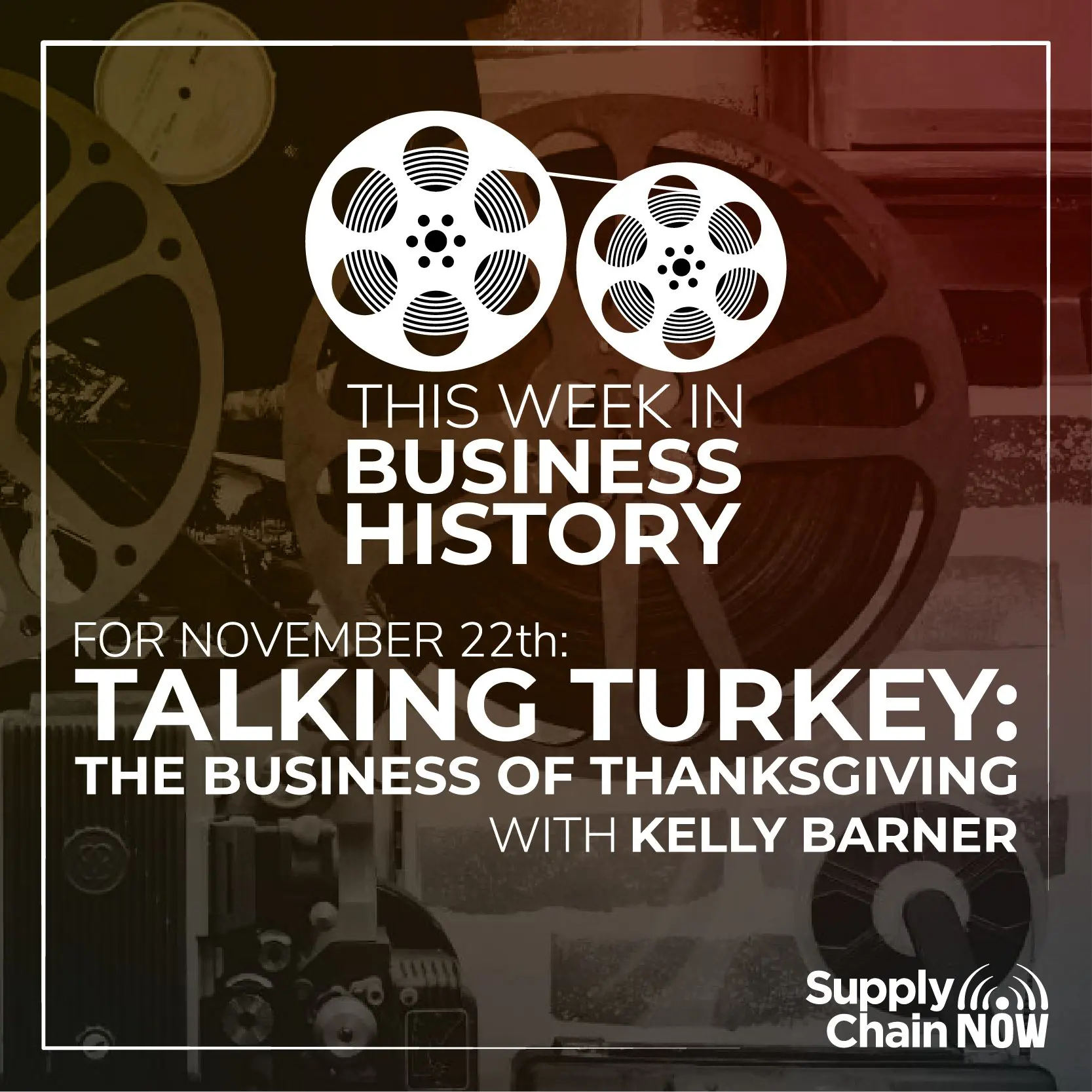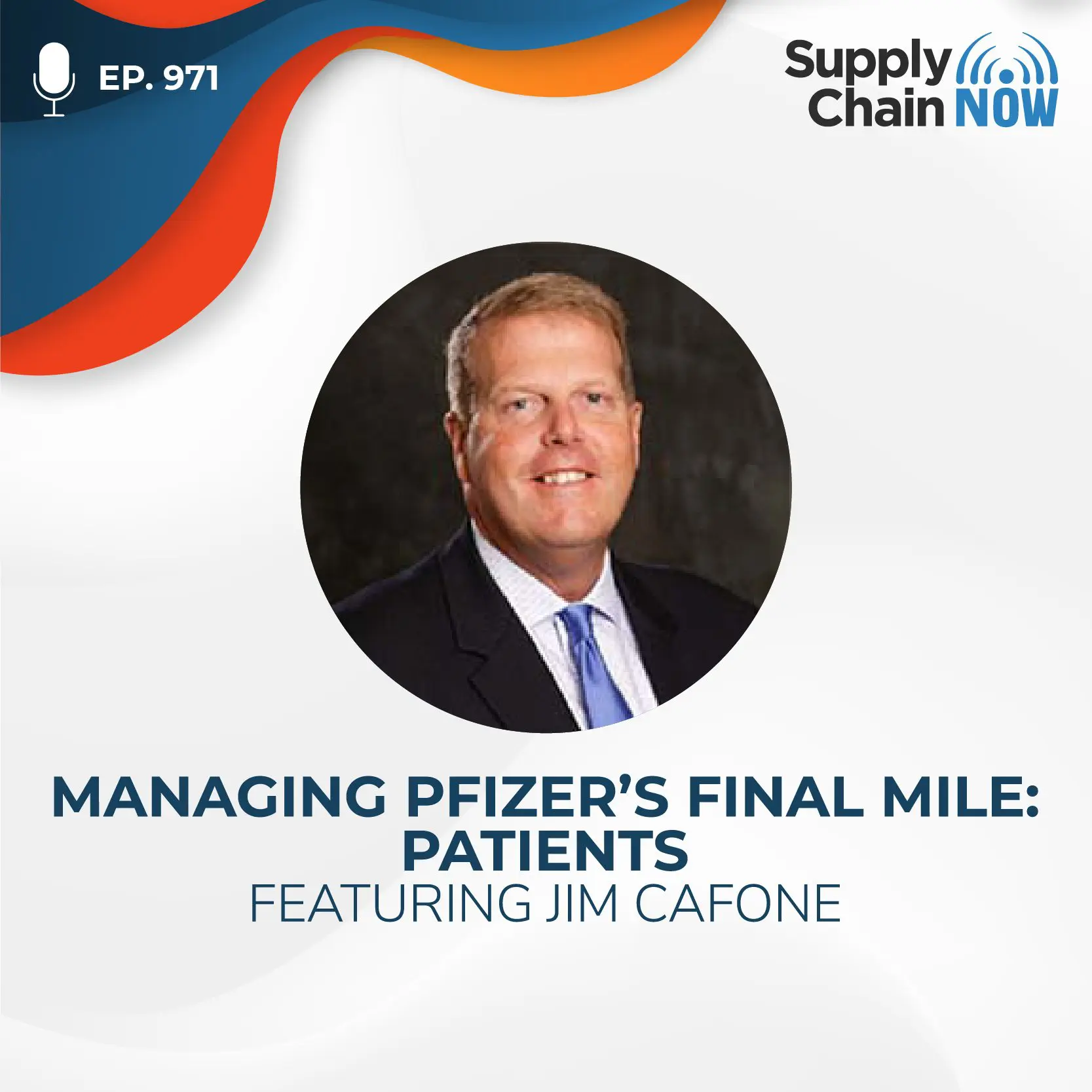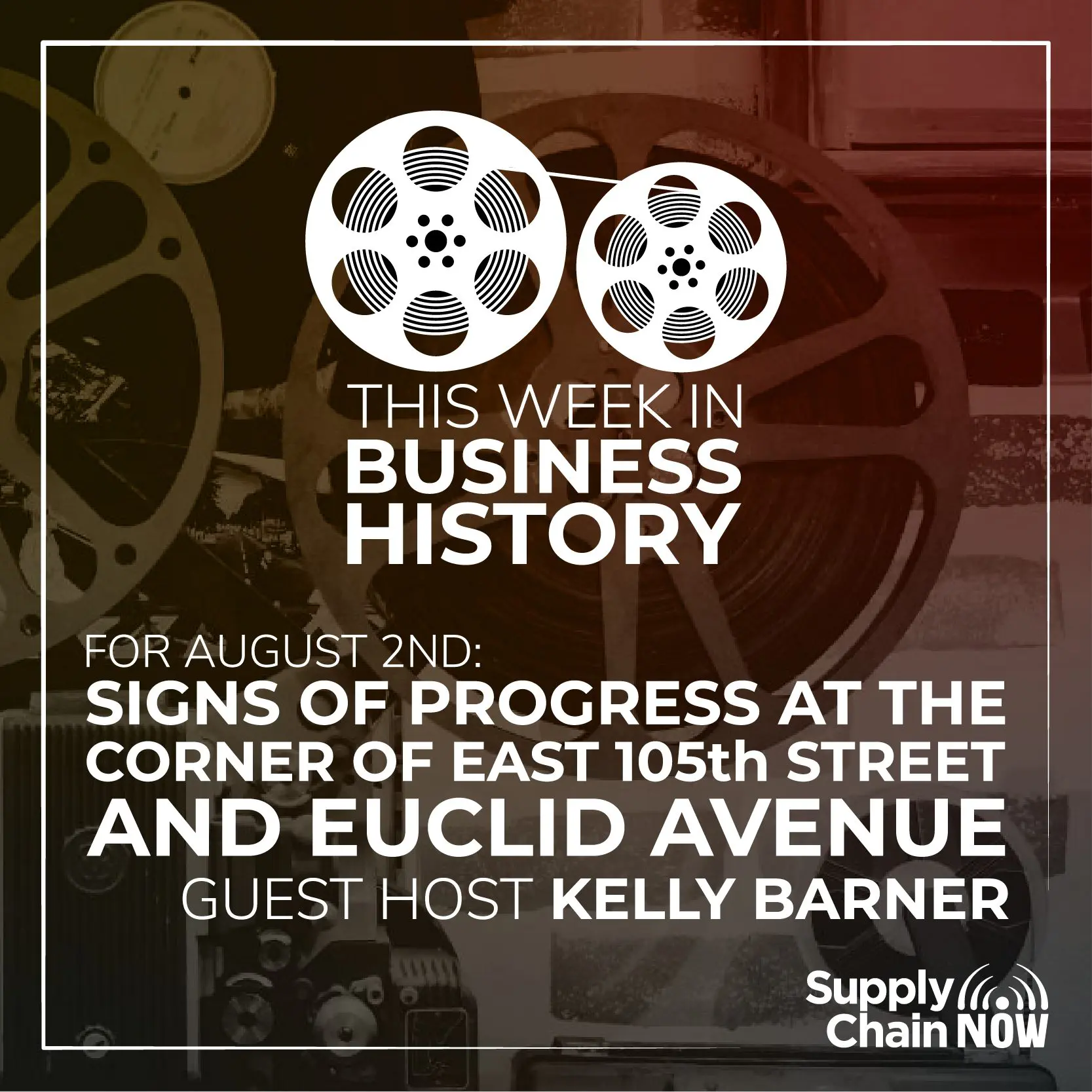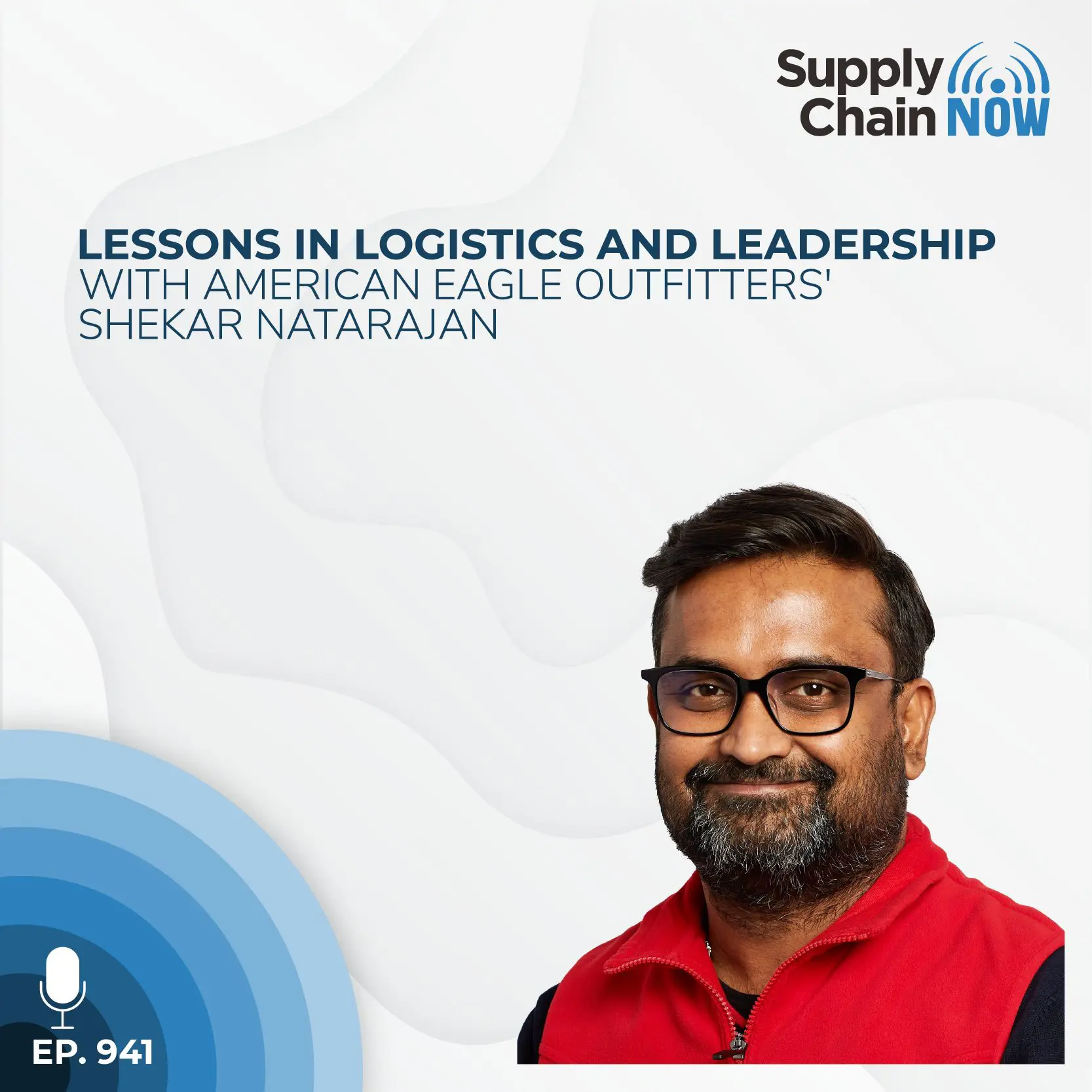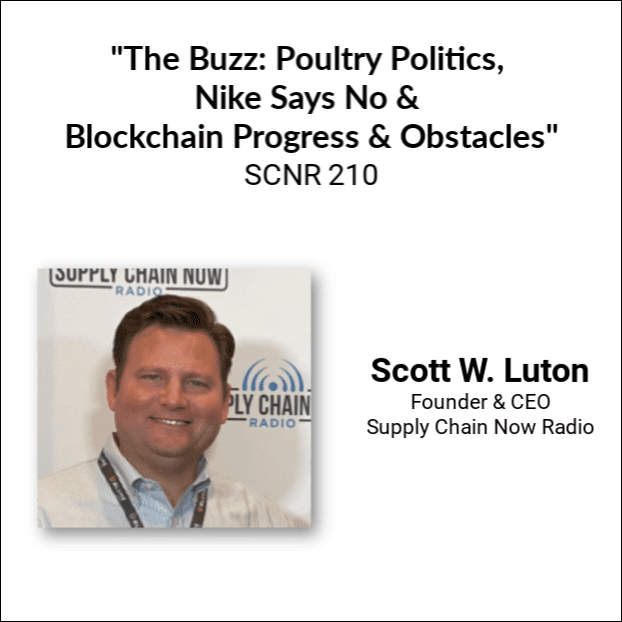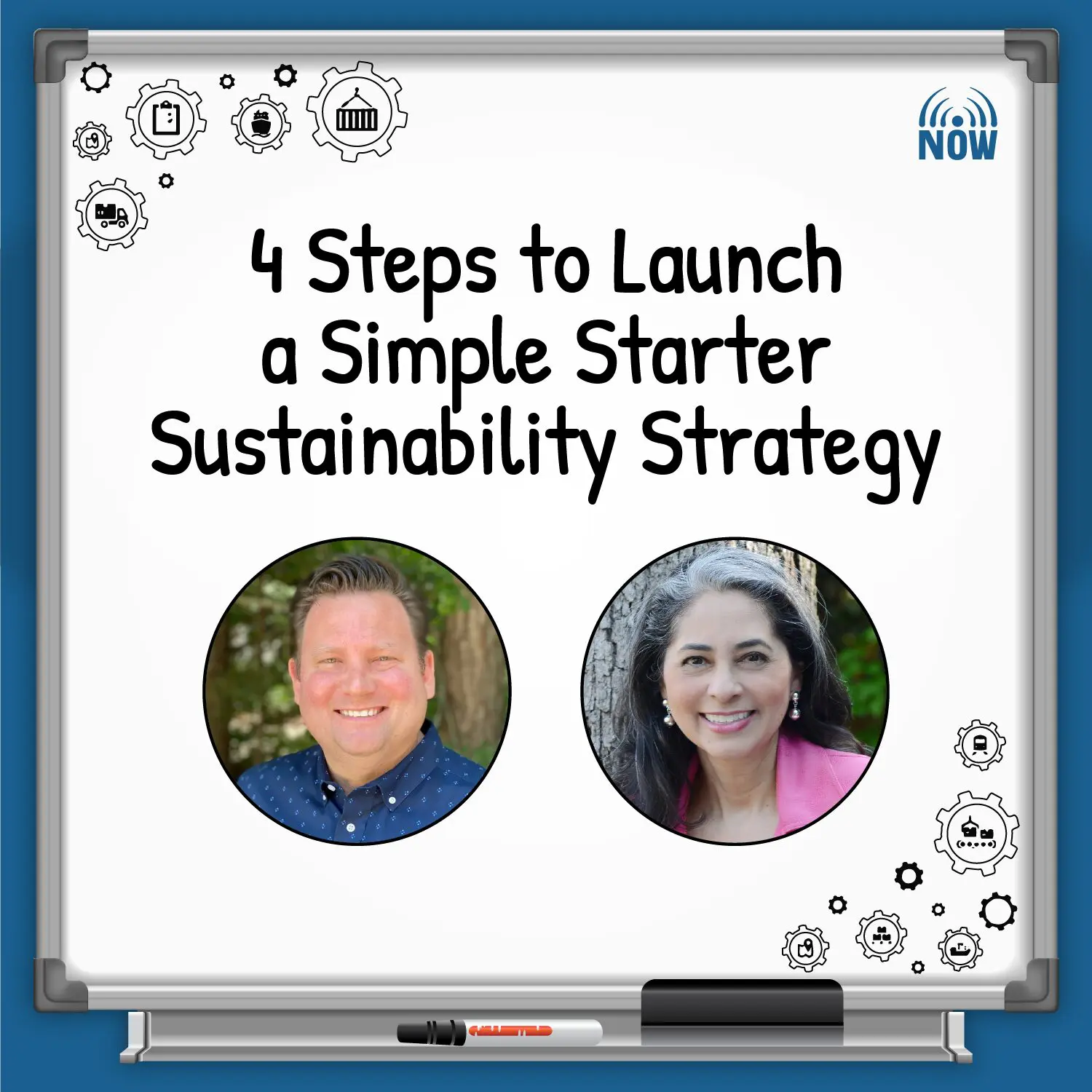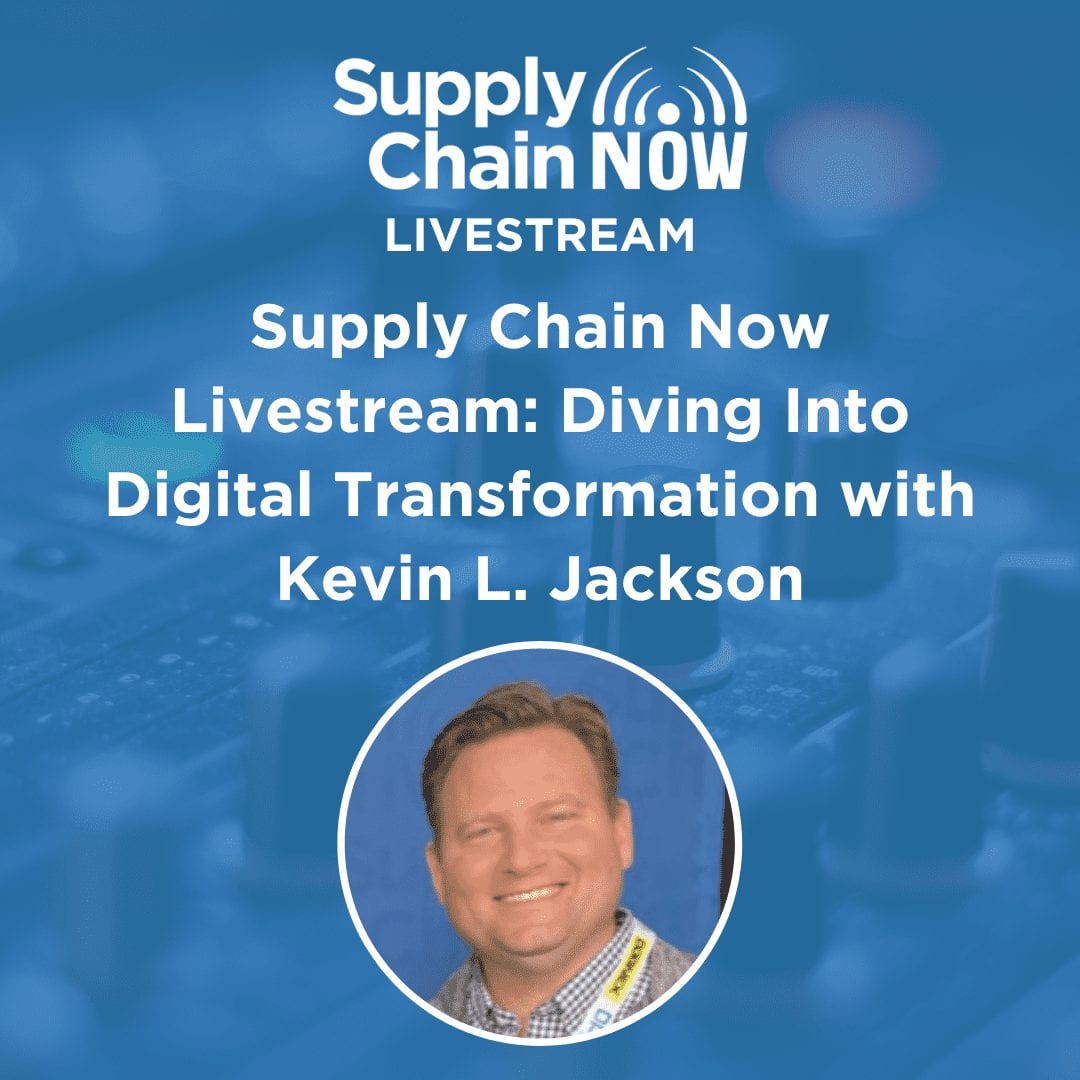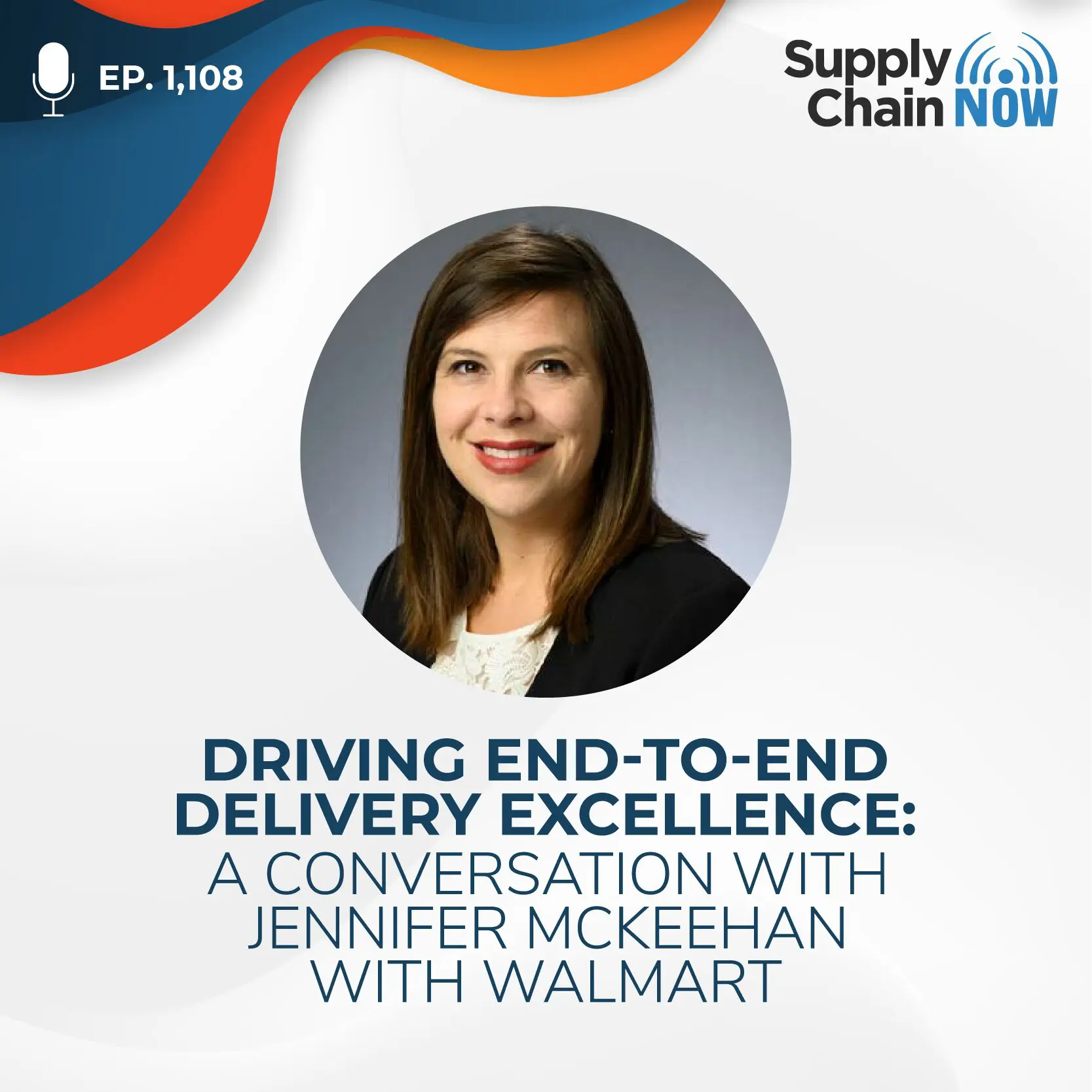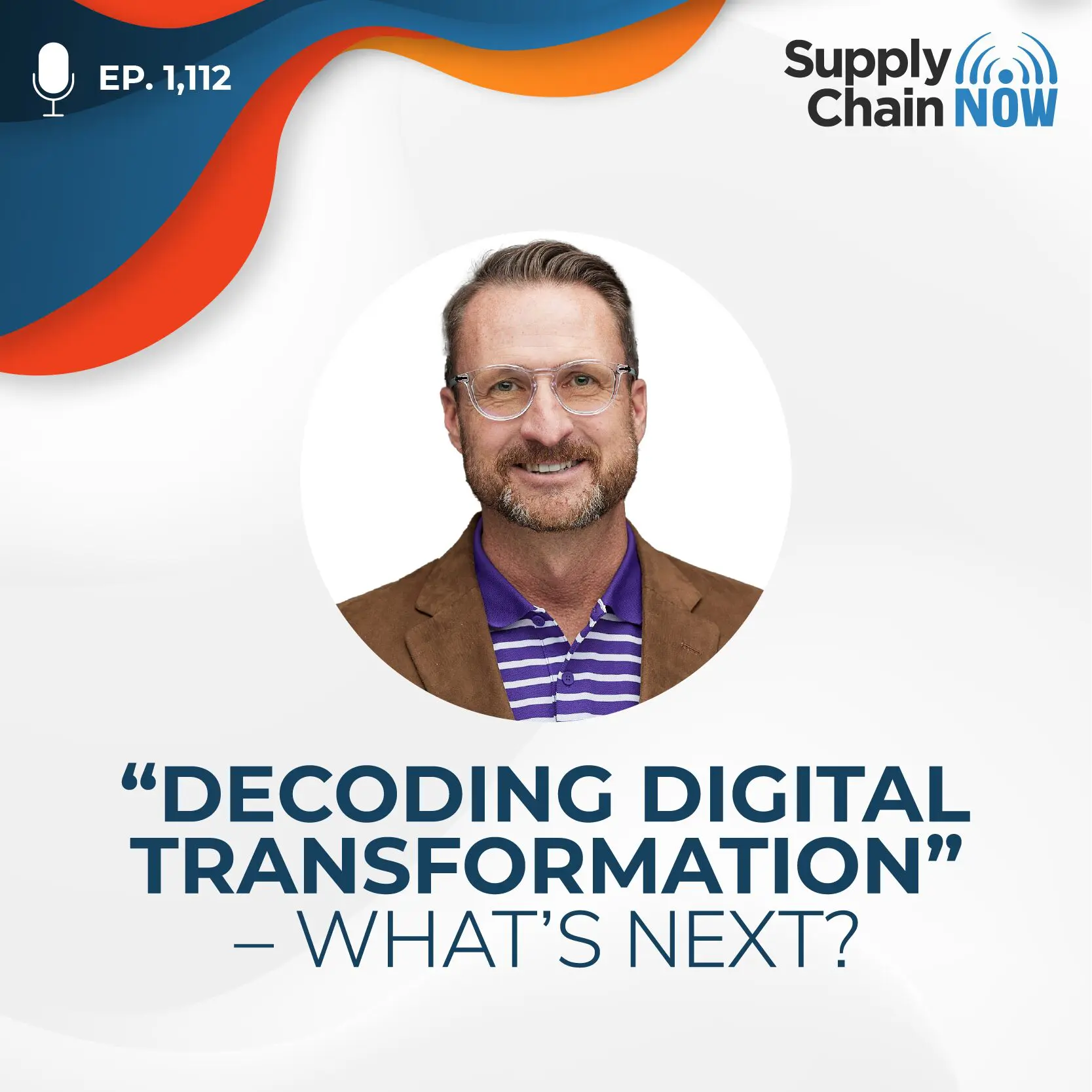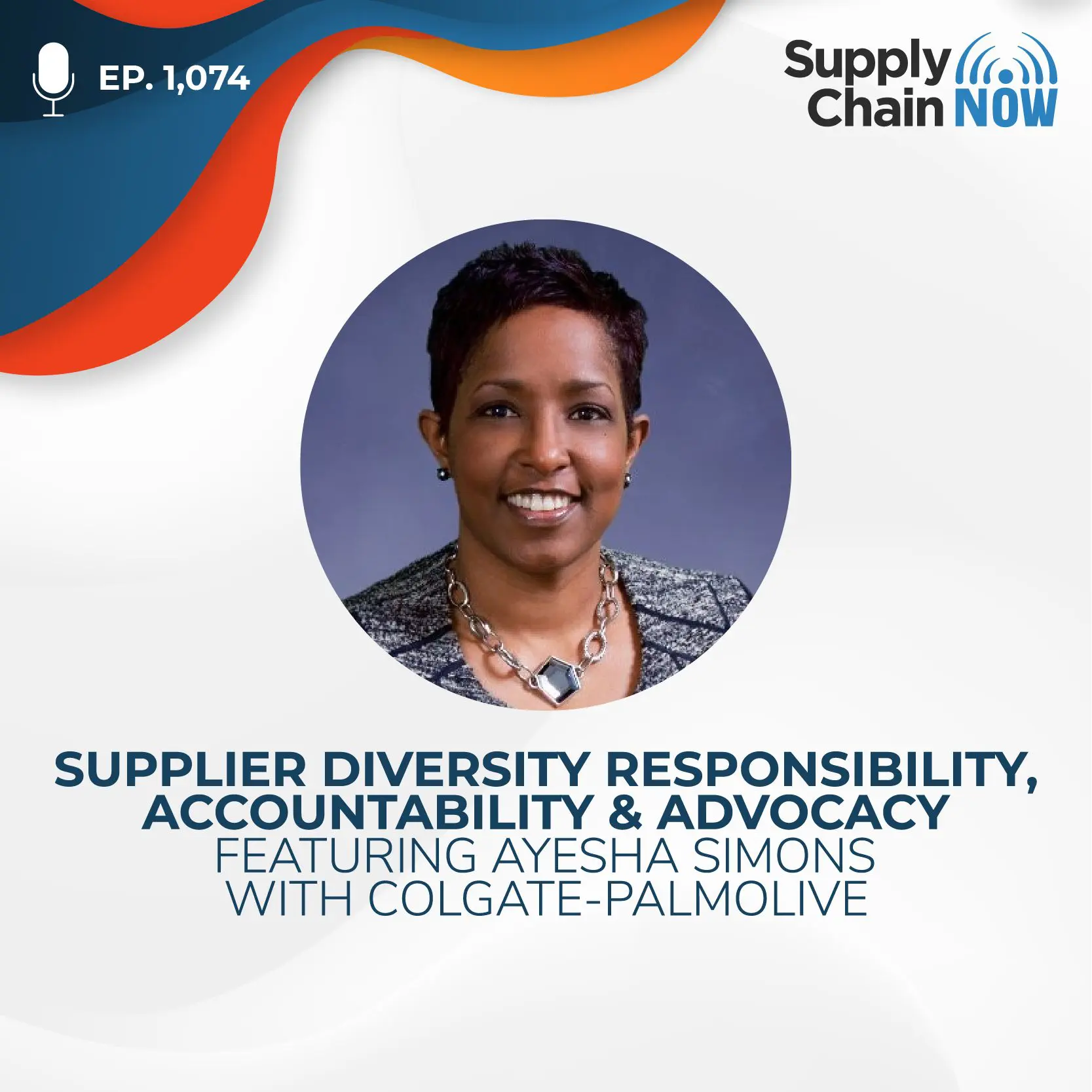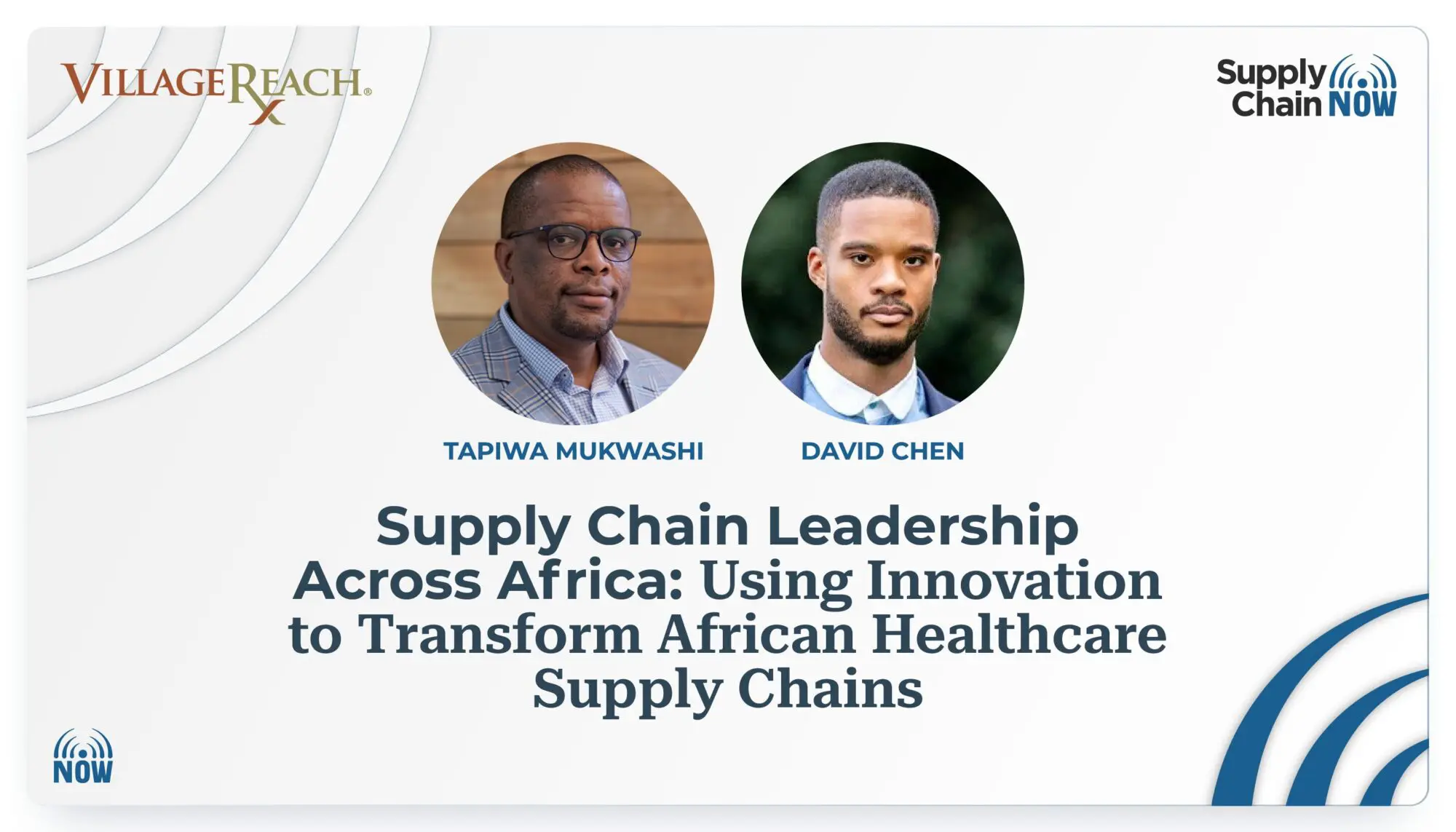
We really had to define our implementation strategy for our innovation and do it in a way which is reflective of how the world is, not how we want it to be.
-David Chen
Episode Summary
How are innovations helping to transform public health supply chains? How are technology providers and analytics specialists working with the health sector to bring cutting-edge capabilities so each person has the health care needed to thrive?
During this episode of Supply Chain Now’s Supply Chain Leadership Across Africa series we talk with two people who talk about the importance of innovation for public health supply chains – and what it takes to make innovations sustainable in Africa.
Director of VillageReach’s Global Technical Team and experienced health supply chain expert Tapiwa Mukwashi is our first guest. On a day-to-day basis, Tapiwa ensures VillageReach’s various teams across Africa have the technical assistance they need to do their jobs, working closely with vendors such as data analytics company Kapsule to do just that. David Chen, Kapsule’s Co-CEO and Co-Founder, also joins us to explain how his innovation came to market and some of the challenges, successes and lessons learned he has collected along the way.
During the conversation, the duo highlight the progress made but emphasize the need for more mature modeling and professionalization of the supply chain to better underpin African health care networks. Here, the importance of skills, infrastructure and technology to improve efficiency and visibility, especially at the last mile delivery level, are emphasized. The discussion also underscores the need for solutions tailored to the unique contexts of public health supply chains in Africa, focusing on the problem, building trust and using strategic implementation.
It is a highly complex and nuanced landscape to navigate, and several key strands emerge during the podcast:
· Building trust and collaboration among like-minded stakeholders to drive innovation in public health supply chains.
· Identifying and addressing root problems rather than focusing solely on outcomes.
· The role of optimism and perseverance in overcoming entrepreneurial challenges.
To hear more from Tapiwa and David, tune in to the full conversation now.
Episode Transcript
Intro/Outro (00:03):
Welcome to Supply Chain Now, the voice of global supply chain. Supply Chain Now focuses on the best in the business for our worldwide audience, the people, the technologies, the best practices, and today’s critical issues, the challenges and opportunities. Stay tuned to hear from those making global business happen right here on Supply Chain Now.
Scott Luton (00:32):
Hey, good morning, good afternoon, good evening, wherever you are, Scott Luton and Mary Kate Love here with you on Supply Chain Now. Welcome to today’s show. Mary Kate, how you doing?
Mary Kate Love (00:42):
So excited to be here with you, Scott.
Scott Luton (00:45):
We are too, and so great to have you back on this side of the microphone or camera or whatever you want to call it. Really have enjoyed our collaboration for years now. And hey, Mary Kate, as you know, on today’s episode, we’re continuing our very popular series, Supply Chain Leadership Across Africa. We’ve been conducting this series for several years now, really, as we want to focus our platform on the innovation and brilliance and leadership that can be found throughout the 54 countries that make up the continent of Africa. So today though, we’re pleased to not only feature two heightens of both the global industry and the ring — more on that in a second, but we’re also pleased to conduct today’s episode in partnership with VillageReach, a powerful nonprofit that is transforming healthcare delivery to reach everyone. In fact, their critical work enables access to quality healthcare for 70 million people. Wow. Learn more at villagereach.org. Mary Kate, I got to stop there. That’s a remarkable mission and critical mission. Would you agree?
Mary Kate Love (01:43):
Yeah, it’s almost impossible not to be inspired just hearing that mission alone. So, I am even more excited to dive in today and learn more about that mission.
Scott Luton (01:52):
You and me both. So outstanding show here. I’ll mention a little bit about the guests here in a second. We’re going to learn more in a minute. But we’re going to be diving into public health supply chains, both in general and specifically in Africa, amongst many, many other things. We’re going to be talking about some really cool innovation that we’re seeing in the sector, including from an entrepreneurial standpoint. So stay tuned for a great show. So, Mary Kate, if you’re good with it, I’m going to go ahead and bring in our two featured guests.
Mary Kate Love (02:17):
Sounds great to me.
Scott Luton (02:18):
Wonderful. So let’s get started. I want to introduce both of our guests here. First, we’ve got a repeat guest. So, officially Tapiwa is already a member of the family, but Tapiwa Mukwashi, a global health supply chain expert who brings more than 15 years of private sector and international development experience to the table. Now, Tapiwa serves as director, global technical team at VillageReach. And by the way, he’s got a thousand megawatt smiles. So Tapiwa, great to have you back with us again. How you doing?
Tapiwa Mukwashi (02:44):
Thanks, Scott. It’s great to be back here again. Looking forward to the show and looking forward to learning more from David, from Mary Kate and from yourself.
Scott Luton (02:51):
Oh, wow, man, already talking in leadership poetry, Tapiwa. Music to my ears. Now, you’ve brought a fascinating leader with you, David Chen. Now, he brings a background in genetics and pharmaceutical consulting to our conversation today amongst other things. Now he has leveraged his experience in these areas and a lot more to co-found Kapsule, a pioneering African healthcare data analytics company. Now as co-CEO, David is helping Kapsule to revolutionize healthcare across Africa by collecting, aggregating and standardizing data from various markets. And we know the power of data and what the outcomes that can lead to. So, David, welcome in.
David Chen (03:32):
Well, I thank you for having me, Scott. Real pleasure to be here.
Scott Luton (03:35):
Well, we are pleased to have you both and y’all both have been upping to fuel such an important mission, again, that’s providing important outcomes for folks all around the globe. So great to have you here, David. Okay, so, Mary Kate, I kind of teased something on the front end and as we get to know Tapiwa and David a little bit more, Mary Kate, are you a boxing or karate enthusiast?
Mary Kate Love (03:56):
You know what, I can’t say I am. I have much appreciation for the sports as an athlete myself, my family. I have a few boxers in the family, but I can’t say it’s a sport that quite frankly I’m even able to watch because it looks so brutal to me. So, kudos to you guys for both of those sports.
Scott Luton (04:16):
By the way, Mary Kate is, at least amongst other things, a softball champion. I’ve seen the proof, the trophy, the whole nine yards.
Mary Kate Love (04:23):
Thanks for bringing that up.
Scott Luton (04:25):
We’re all champions. All right. So back to what I was teasing about. So, Tapiwa, getting to know you a little better, besides being a second-degree black belt, and I’m going to mispronounce this, Tapiwa, but kyokushin karate. Did I say that right?
Tapiwa Mukwashi (04:37):
You said that right, Scott.
Scott Luton (04:38):
Okay. Man, a second-degree black belt. That’s something I would talk about as a kid. I only got to, I think, yellow belt status in Zen Do Kai I took years, decades ago. But beyond your martial arts passions and hobbies, I want to ask you about your reading because you’re a voracious reader and we get questions all the time. Hey, what’s the next good book I can read? So, what’s been one of your favorite books that you’ve read in the past 12 months or so, Tapiwa?
Tapiwa Mukwashi (05:03):
I’ll talk about my favorite book anytime and it’s a memoir by Shimon Peres, No Room for Small Dreams. It’s a book that talks about courage, imagination, and the making of a modern state. There’s so much that one can learn from that book about how to transform their life, transform society. And so, Scott, today it’s No Room for Small Dreams.
Scott Luton (05:24):
No Room for Small Dreams. I love the book title alone. I bet the story behind is fascinating. So, No Room for Small Dreams. Thank you so much. All right. So moving right along, we could do a whole conversation I think around just that last thought, Tapiwa, but moving right along, David, now you’re the first professional boxer that we’ve ever had on Supply Chain Now in over 1200 episodes. Now, as I told you in the pre-show, Mary Kate may not be, but I grew up loving Mike Tyson and Evander Holyfield. Those were two of my idols. So, I got to ask you, tell us about your first bout, David.
David Chen (05:57):
Yeah, my first bout was quite the experience. So, I’ve been training boxing for a number of years, but I recently decided to go professionals. I had my first professional bout on the 27th of May of this year and it was a very philosophical moment for me. As a founder, as an innovator, you’re always trying to go against the odds, do the impossible. And what I found with boxing is it really is the epitome of fear. To going to a professional boxing ring, you are faced with someone who’s equally as big as you, as strong as you and has been focused on hurting you for 12 weeks. So, every bone in your body makes you want to run away, but then you have to muscle the courage to still step forward, to go into the ring and then to fight someone else. So, for me it was very philosophical moment where it’s peak fear, that’s peak anxiety, and to go and face that feeling and then step forward regardless. That’s what I wanted to take away from it.
David Chen (06:59):
So, I’m fortunate enough to get the W. So, my one and only professional fight so far, I was fortunate enough to win against the top opponent. There were moments in there where you questioned yourself to think I could be running my company, why am I here right now in the middle of a ring, get punched in the face. But it gave me a medal that I have taken into my life more generally. And as a founder and as an entrepreneur and an innovator, I feel like having that in your toolbox is an invaluable asset.
Scott Luton (07:29):
Oh, David. Man, y’all have brought it already. Mary Kate, I want to get you whether you want to comment on Tapiwa’s book, No Room for Small Dreams, or the revelations that David, I mean, the intellectual approach on his boxing experience, just creating all kinds of thoughts. What are you thinking, Mary Kate?
Mary Kate Love (07:45):
Well, you already used the word poetic to describe some of these answers here we’re already hearing and that’s the word that came to mind to me immediately hearing David specifically speak about boxing. And if I wasn’t a boxing fan to begin with, maybe I’m changing my mind now with the way you just described that. I can totally see your passion coming through there. That’s awesome.
Scott Luton (08:07):
I’m with you, Mary Kate. All right. So, folks, we got a lot more to get into. That’s just the tip of the iceberg. Mary Kate, we can never get enough context in this fast-moving world that’s been really important. So, I want to level set on the front end and, Tapiwa, I’m going to start with you, of course, you’re with our dear friends over at VillageReach. We’ve talked about your noble mission already, but tell us in a nutshell, what does the organization do and your role there, Tapiwa?
Tapiwa Mukwashi (08:30):
As an organization, we focus on health and we build people-centered health solutions. It’s focused on improving equity, improving access to care. We value radical collaboration with governments, with other partners who are in the same line of work with the private sector, including some people like David from the start-ups, innovators, who all strengthen our ability to scale and sustain the solutions that we implement. The work that we do helps us improve the health outcomes of over 70 million people now. And so, the work that I do in this world, bigger picture about enabling everybody to get access to healthcare is that I lead a team within VillageReach that’s called the global technical team and we call it the global technical team because we’ve organized the work we do into some technical focus areas including supply chain which is of interest to the audience on this show, digital solutions, private sector engagement, data analytics, and health systems strengthening.
Tapiwa Mukwashi (09:32):
These are some of the key building blocks that we feel if we navigate as levers, if we maneuver as levers, are going to help us leapfrog through some of the challenges that are being experienced providing primary healthcare to people across Africa, across Sub-Saharan Africa, allowing us to be able to achieve better health outcomes. Less women or no women have to die whilst giving birth. No children have to die whilst they’re under the age of five through largely very preventable diseases. So, we use solutions that are tech-enabled. We define new approaches to doing things rather than people moving 20 kilometers to get to a health facility. We think the products, the medicines, must get to people. So, we are moving from people to products to a paradigm where products get to people and we have this desire to say we must drive sustainable impact. Everything that we co-create with governments must be sustained, must be transitioned, must be stewarded by government. And so, this is the work we are doing in the geographies that we work.
Scott Luton (10:36):
Oh, Tapiwa, blessed are those that build bridges and even more blessed are those that build bridges amongst all these different shareholders and get results for people out there. Mary Kate, I think it’s important here, based on what Tapiwa was sharing, a big theme was, I know you admire VillageReach’s mission as much as I do, but I know you’re passionate and spent a lot of time in your career at that intersection and developing those opportunities of public and private partnerships. Mary Kate, what’d you hear there from Tapiwa?
Mary Kate Love (11:01):
The word that stuck out to me was co-create because I think there’s a lot of power in co-creating between public and private partnerships. So when you can really bring those entities together that, number one, truly understand the problem which you so eloquently articulated, right, you need to get the product to the people and then you bring entities that have the technology, I think that’s when you start to see solutions that have impact. Love that co-creation kind of sentiment between the public and private partnerships.
Scott Luton (11:30):
Agreed, Mary Kate. Great call out. All right. So, David, as if that’s not enough good news what Tapiwa was sharing, man, y’all are doing some really cool things at Kapsule, so tell us more.
David Chen (11:40):
Yeah. So, as you mentioned in the introduction to myself and to Kapsule, we’re a healthcare data analytics company and what we essentially saw was that for many multinational institutions actually get the information that they need to drive their decisions, whether they be commercial decisions, investment decisions, impact-related decisions, the data is very, very hard to access or even get a hold of. But one thing we also notice at Kapsule is that the data does actually exist but it’s in loads of different silos. What we decided is rather than be another solution that comes on the market trying to be everything to everybody or creating a platform to onboard healthcare workers or hospitals or pharmacies, why don’t we take all of the great software that already exists, standardize that data, aggregate it, and combine it into one single place and make the insights available to the market. So if you are a global NGO, you can find out information about the countries which you want to serve and then decide where you’ll have the biggest impact.
David Chen (12:45):
If you’re a pharmaceutical company, you can understand the trends that are happening for particular products or disease areas or growth opportunities for your products. Or if you are a research organization, you can find potential sites which are capable of running a clinical trial based on their capabilities, based on their infrastructure, the number of experts of the [inaudible] and doctors and nurses, free beds, et cetera. Or you can identify patients which are traditionally not included in those clinical trials, so identify particular patient groups or specific demographics that you can have more inclusive trials by having a more broad patient base when you’re trialing these new medications. That’s what we do and the way we decided to do it is in every single way under [inaudible] from finding innovative ways of aggregating data and coming up with a business model which makes sense for people or entities to share their data with us through to building some software in-house that can capture some data as well as partnering with other institutions and leveraging third-party technology and streamlining the way the data is collected and distributed to help the institutions that we work with. I guess what I always say to people is if you are talking about data in Africa, you should be talking to Kapsule because we try and do everything we can to understand it and drive value and impact.
Scott Luton (14:10):
I love that. And as we always say around here, informed leaders make informed decisions. It’s so important to have our hands on not just data but the right data. Mary Kate, all right, you’ve got a ton of experience with start-ups we were talking about in the pre-show including leading that incubator and innovation center we talked about. How cool does the work at Kapsule sound to you?
Mary Kate Love (14:29):
I was just nodding along that whole time because data standards came up all the time when I was working — in the public-private partnership I was working on was focused on manufacturing and so collecting data wasn’t necessarily the problem, right? Like you said there’s data there, but the problem is collecting it in a way where you can analyze it, making sure standards across all organizations are somewhat matching so that you can make sense of the data. So that’s really hard work that not a lot of people are tackling. So, super excited to hear that you guys are doing that hard, hard work.
Scott Luton (15:03):
Yes, it is. All right. Well said, Mary Kate and David and Tapiwa. So, I want to move us right along. Tapiwa, I’m really looking forward to this next question because we get more context and I think there’s a lot of, just like me at various times in my career, sometimes our blind spot can be other geographic parts of the world and other sectors and here I want to level set when it comes to the current state of public health supply chains in Africa. So, if you could briefly share an overview on some of the challenges that are there within.
Tapiwa Mukwashi (15:28):
That’s a good question and I want to start by saying there has been tremendous progress with the supply chains in Africa. As we speak now, medicines are being procured, medicines are being delivered, medicines are being stored, people have an understanding of some of the North Star, where do we want to get to that understanding already exists. But having said that, I wanted to say we are in the era of maturity modeling. If you’re doing something, how mature is your level of operation? And if we apply the maturity model to the supply chains in Africa, most of them would achieve a low maturity status. And I will explain why. This is because we continue to experience talk outs at the service delivery level, at a level that does not optimize the outcomes we want. We continue to experience expiries, and when expiries are just opposed or put in the same line with stock outs in other areas, maybe the inventory could have been repositioned and some of those expiries could have been avoided.
Tapiwa Mukwashi (16:33):
So when we look at the supply chains in general, we still have a long way to go to professionalize public health supply chain as a competence area in which people must have certain skills, competencies to be able to work in that sector. We need to work on the skills. On the infrastructure, we need to continue the journey to building more high-capacity infrastructure, sufficient storage infrastructure on the digital infrastructure to be able to do work more efficiently, faster end-to-end visibility. In one of the countries that we work at VillageReach, we have always said we want to get medicines where people receive their services. It’s not enough to get medicines to health facility and think you’ve completed the job. Over 30, 40% of the population is getting medicines from community health workers. Whenever you talk about wanting to put medicines pass through to the community health workers, people tell you, “You know what, this is a black hole.” Once medicines get there, you don’t know how much has been used, when it has been used, what conditions it has been used to treat, and why are we going to keep shoving medicines down a black hole. It just gives you an insight into visibility constraints, impacting our ability to provide services to people where they are, our ability to report on the medicines, our ability to make efficient use of [00:17:56] financing that we have. So, I will close this up and say tremendous progress. There’s still a lot of work to be done.
Scott Luton (18:04):
Tapiwa, I really appreciate that succinct and deep overview of what we’re seeing. And hey, it’s great to get the good news. I’m still seeing all these opportunities that you point out there. Mary Kate, now you’re familiar personally with some of the challenges that Tapiwa maybe even touched on with your prior work. Does that sound familiar? Any of that?
Mary Kate Love (18:20):
Yeah, definitely, when you were kind of talking about the maturity model and coming up with solutions that could actually meet the supply chain where the supply chain is currently at in the maturity model in Africa. And so, I had worked with CARE, another nonprofit organization that had to come up with solutions for last mile delivery and a lot of solution providers were coming up with very tech forward solutions and it was like, “Hey, listen, this might work in a different country, but right now right here we’re going to focus on SMS text messages to manage our deliveries for last mile instead of some beautiful app or something that needs to connect to Wi-Fi.” So, I think that’s spot on that you know exactly where you’re at on the maturity model and you keep moving up that maturity model. That’s a really realistic and great approach.
Scott Luton (19:08):
All right, good stuff there, Mary Kate. And, Tapiwa, again, thanks for that great practical overview. As a follow-up, Tapiwa, how do you see innovation and technology playing a really important role in improving the efficiency and effectiveness of public health supply chains, kind of what Mary Kate was referencing there?
Tapiwa Mukwashi (19:25):
There’s a very big role for innovation in technology for beginners. We need to buy the right amount of commodity, and technology can play that big role for supporting forecasting. We know what we’ve been buying in the last 10 years. We’ve not used the data to inform our future planning around what we should procure. I talked about visibility issues, end-to-end visibility, technologies that one big advantage of being able to make us hide from the manufacturers. The manufacturers should be able to see what our health facilities, what the clinics are dispensing and prepare their manufacturing schedules accordingly. Another challenge with the supply chains has been the level of fragmentation, 20 supply chains, one for [inaudible] commodities, another for vaccines, another for essential medicines, one for malaria; it increases the transaction costs. What can we do about integrating this so that leadership, supply leadership, the government leadership have a whole huge centralized one view of how things are going. And lastly, I want to talk about we are now in the age where we’re able to manage large volumes of data, and technology is going to be able to allow decision makers to use data for decision making, focusing on data analytics, being able to manipulate that data in a progressive way that makes for smarter decisions to be made.
Scott Luton (20:47):
Tapiwa, there’s so many common themes across global supply chain no matter sector and what you touched on some of those things. And then, there’s some very unique elements to not only the challenges but how you see technology and innovation playing a role, so thank you. And it’s a great segue because David and Kapsule where Tapiwa finished there, the importance of data and connectivity and visibility and overcoming fragmentation and what he finished in particular, David, is the power of better decision making and that is a universal advantage. So, David, I want to get back to the Kapsule story. And to our listeners out there, when we say Kapsule, just so you can connect the dots if you want to do it mid episode Kapsule, that’s with K-A-P-S-U-L-E, so kapsuletech.com where you can learn more. Let’s talk about what your why was for starting the company, David, and how you built your innovative offering.
David Chen (21:37):
Yeah, so thanks, Scott. There’s a long story behind it, but I’ll try and give an abridged version and I’ll start off with again a sort of high-level summary of how one even becomes an entrepreneur and decides to set up a company because I think as Steve Jobs said, we’re the crazy ones who actually believe that we could change the world. So I think for me the why really came from having, well, from my background and from my experiences of consulting to some of the world’s largest pharmaceutical companies, seeing the impact that they have on the global level and doing my piece to help those organizations run better, I knew that as a professional, as an expert in my field, I had something to offer and I had insights that could be of value to organizations that have global impact. And once I coupled that knowledge that I have something to offer with a sort of dissatisfaction with how the world was — particularly, there was an event which I attended which was the world brand safety and then to counterfeiting summit. And there was a lot that was spoken about on, there’s a global platform and global forum and there was a very small segment about what was happening on the continental of Africa.
David Chen (23:01):
And for me, where I was thinking that Africa has such a disproportionately large health burden when compared to other regions of the world or the fact that so little was understood about the market and so little attention was being paid there, for me something felt wrong. So, I guess it triggered my curiosity to just find out, “Okay, how can you have such a large continent, so many countries be completely shut off from the global community when it comes to understanding their healthcare?” And I guess once the curiosity bug bites you, it’s impossible to not follow it down the rabbit hole. And I was fortunate enough that I had a very close friend who is also in healthcare in Africa, and at the time he was working in rural hospitals in Kenya and again he was born and raised in the UK like I was and very much disillusioned with some of the gaps that happened between more developed countries and some of the developing ones.
David Chen (24:04):
So, I think the two of us together we just had this internal angst of the world isn’t how we think it should be and there’s enough technology, there’s enough innovation in the world where the problems that we were observing shouldn’t exist. So, the fact that it does exist means that there is a misallocation of resource somewhere. And for me it was just kind of the feeling that this problem has been largely solved in many other regions of the world. There’s no feasible reason why it’s impossible for Africa to overcome these challenges. So I’d say that fundamental piece was at the core of the why. And then, I’d say the second component is really just finding people who believe in you and are crazy enough to go on that journey with you. So, I’d say I’m quite fortunate that my closest friends are kind of the same cloth and we all had overlapping experiences. So, Hannan, my co-founder, he had medical background. And then our other co-founder, Femi, he was in tech within the pharmaceutical space as well and he also worked in insurance and banking so he was very used to building enterprise-grade software. So, I think when the three of us were all feeling the same thing and then we all felt like we had a unique piece of the puzzle that we can contribute, the journey kind of called us. We couldn’t really —
Scott Luton (25:30):
You couldn’t say no. You couldn’t say no, David.
David Chen (25:34):
And there’s a guru in the start-up space known as Naval Ravikant and he has a phrase which I like to steal sometimes where oftentimes you hear of product-market-fit. But he says what’s more important is product-market-founder fit, where if you’re the right founder working on the right problems then that is the basis for success. So I think for us, we felt like we had product-market-founder fit based on our experiences, our passions, and the internal drive to do more and create the world that we believe should already exist. And I guess the enthusiasm and for instance with myself, I have a natural inclination to be an optimist. I think the good part of that is that as an optimist, I didn’t think through all of the challenges that I was likely going to encounter which has been many. But I think once you get started on the path and you actually see a way forward, the destination is closer than where you started from. So, that always keeps you going.
Scott Luton (26:39):
David, man, we’re going to have you back and dive into a full-blown punch by punch episode of you and the Kapsule story. For the sake of time, I want to shift gears. Mary Kate, I’m writing down a lot of things that David just shared there from the internal angst to finding folks that believe in you and willing to go on that crazy journey, that product-market-founder fit, great piece of advice. And then, one of the things he mentioned is natural inclination to be an optimist. Mary Kate, I know my thoughts of some of what it takes to be an entrepreneur. I think it is so important for folks that can find that regular grounded optimism to push through even the toughest of days. Mary Kate, all the founders you’ve worked with, being a fellow founder, what are your thoughts over that obligatory optimism?
Mary Kate Love (27:18):
I love it because I always say that starting any company, any mission, there’s high highs and low lows and you got to ride through those low lows because it is really hard to get through those because you’re solving really big problems that no one else quite frankly has tackled for a reason. But the high highs, nothing beats them when you start to see your solution come to life, to change people’s lives, change the world. So high highs, low lows.
Scott Luton (27:44):
Yes, yes. Tapiwa and David, we didn’t even mention this on the front end, one of the long list of things Mary Kate’s done in her career is she is the founder of National Supply Chain Day here in the States, which she’s founded a couple of years ago. So, stay tuned for a lot more cool stuff there. Okay. So, Tapiwa, getting back — there’s so much to that Kapsule story. We’re going to have to again bring David back and talk about that and boxing a little later on. But, Tapiwa, let’s talk about some of the unique considerations that you’ve got to take into account when we design and implement innovative solutions that stick in public health supply chains.
Tapiwa Mukwashi (28:16):
Number one, it’s important to focus on the problem, very important to focus on the problem. And this is different from focusing on your technology. If you are coming to address public health supply chain challenges in Africa and you’re coming to sell a solution and a pre-designed solution that’s not customized to be frugal, to be fit for purpose, it’s going to be a challenge. Mary Kate was talking about a use case in which colleagues from an organization wanted to use SMS and they said, “Because this works for us, this buy-in.” So if you focus on the problem and if you focus on aligning the innovation to the problem, it’s going to work.
Tapiwa Mukwashi (28:55):
Secondly, you’ve got to build trust. You’re coming to implement an innovation in an area where people are working, people have a culture, people have a way of doing things, people need to buy into the way that you’re proposing that things should be done or tools should be used, and if that understanding, if that buy-in, if those critical insights, if government and their staff are unable to influence or inform the shipping and design, if organizations like VillageReach based on the extensive relationship with government and use cases are unable to influence or inform the design, it’s going to be a challenge. And lastly, I want to talk about, there must be a strategy. There must be an implementation strategy. Are you targeting implementation in a government-oriented environment, in a private sector-oriented environment? The strategies got to be different. The level and investment in buy-in has got to be different because you’re handling different cultures, different risk taking appetites. And so, focus on three things, focus on the problem, build trust, and be strategic in the implementation.
Scott Luton (29:59):
Tapiwa, love that. Mary Kate, I want to ask you about the first one there, focus on the problem. I love the movie Moneyball with Brad Pitt. Some of our listeners may have seen that as well. And there’s a great moment in that movie where Brad, Billy Beane I think is who he’s playing the GM of the Oakland Ace — there’s a great moment in that movie where he’s got all this expertise around the table. All these scouts have been in the baseball game for decades and he is like, “Guys” — I’m going to paraphrase, “Guys, what’s the problem? What’s our problem here?” And you get this guess and that guess and this guess and that guess and none of them have it nailed. And Billy Beane’s like, “No, this is the problem.” And Mary Kate, where Tapiwa started, that is so critical. So, our journey is taking the right trajectory, the right direction. We’re using resources smart because we know what we’re trying to do. Mary Kate, your thoughts.
Mary Kate Love (30:43):
I love this so much because I think defining the problem is actually the hardest part of anything because just like your example, Scott, when you go to a company and you ask them to define what their problem is, it takes a couple of sessions to get down to the root of the actual problem. And after the problem is defined and everyone understands and says, yes, this is the problem, then you can start to talk solutions. It’s always the wrong approach when you talk about solutions first and the problem later because then you come up with a solution that’s actually not solving a problem, which is just the worst-case scenario for everyone.
Scott Luton (31:21):
To your point, Mary Kate, there’s a quote somewhere and I can’t remember who said it, not me. I’m going to steal it, though, something like a problem well-defined is a problem half-solved, if I recall that correctly. And that can be really challenging. Okay. Hey, David, really quick, I’m going to get your response to either focus on the problem or the build trust or the strategy implementation. Quick comment there on what Tapiwa laid out.
David Chen (31:43):
Yeah, I couldn’t agree more and it’s even more pertinent for me because I felt like I made every mistake in the book. Focus on the problem piece, what I realized that I was doing in my entrepreneurial journey was I would confuse the results with the problem, and I find that many founders end up doing that. So just to give an example, if the result is that people can’t afford certain medication or the results are products are expiring while there is an oversupply or an undersupply of the same product in another area, that is a problem but that’s the result of another problem. And you have to really understand the whole ecosystem by which the problem exists before you can start solving it. And I think for me in the very beginning of my journey I was focusing on the results of the problem rather solving the fundamental issue. So, I completely agree with that as well.
David Chen (32:44):
And also, the other thing that Tapiwa mentioned which I think is so, so under communicated in the entrepreneurship space is the strategy and the implementation piece. So, really how do you make your product easy to use, easy to consume, easy to interact with for your users in a way that is in line with their current practices? You can have the best solution in the world, but if it requires a huge change management process, if it requires a huge rethink or training or hinge of the way people work, humans are inherently lazy and no one’s going to want to go through all of that effort for a possible result. And I think that was something that, again, made the mistake first and then really had to define our implementation strategy and do it in a way which is reflective of how the world is not how we want it to be, and that informed how we went to market, what type of clients we were focusing on initially, how we grow and expand from those customers.
Scott Luton (33:46):
Wow, the power of clarity, David, is kind one of the things that you’re speaking to, a lot of good stuff there. And, Tapiwa, I love those three things. It is tough to be simple but, man, with simplicity you can get so much clarity and move faster, better. So well said, Tapiwa, going back to how you kind of teed up this segment. All right. So, let’s change gears. David mentioned change management. We got to change gears here. Let’s talk about — one of the things we mentioned on the front end is this ecosystem of different stakeholders — I always get stakeholders and shareholders confused — stakeholders, this big ecosystem, all these different folks that can play a role from governments and NGOs to the private sector organizations and a lot more. Tapiwa, how do you see those partnerships between all of this big ecosystem playing out that the ones that really truly move the needle and drive that innovation, especially in public health supply chains?
Tapiwa Mukwashi (34:34):
These partnerships and the collaboration are especially more important because all the stakeholders, and I agree, they’re actually shareholders, all of them. They bring knowledge, they bring expertise, they bring different experiences to the table. Our governments, for instance, possess the regulatory knowledge, the public policy expertise when while NGOs on the other hand have a deep understanding of social and environmental challenges. The private sector would bring its own industry specific expertise, marketing sides and the higher risk appetite for trying out new things than the public sector would do. So when stakeholders collaborate, they can share their knowledge and expertise leading to the development of situation specific innovations that are very important. And above that, having all these stakeholders on the table brings access to a much deeper, diverse perspectives than you would — it’s a 360 view if you have government, NGOs, innovators and the private sector. If it was the innovator on their own, I’m sure they would see the elephant from just one side.
Tapiwa Mukwashi (35:40):
And so, that ability to see, to provide diverse perspectives is important. Although governments may not have the money, they actually do bring in some resources to the table assets in terms of access to the health facilities, access to the central medical stores, access to a whole lot of the infrastructure that’s being used in a way that allows resource polling to take place and so facilitating innovation at a very good scale. And lastly, we’ve got to share this, risk governments are not in the business of making risky investments with taxpayers’ money. And so, anything that’s going to help share, distribute the risk is something that’s going to increase their appetite for innovation.
Scott Luton (36:23):
This should be like a 12-podcast series on just different segments of today’s conversation. Mary Kate, if you could quickly weigh in on some of the things that Tapiwa just talked about, including one of my favorite parts, is how he talked about how those different stakeholders have different appetites for experimentation. But, Mary Kate, what stood out to you?
Mary Kate Love (36:42):
Yeah, I would even add to that all those different stakeholders can move at different speeds. So government entities can’t move quickly, whereas the start-up can move super fast and doesn’t have a lot of red tape to jump through. So, those partnerships are so advantageous when you can make them happen because of all the pieces that come together. I was on a project in Chicago where we needed all the maps of the underground layering in the City of Chicago, which is an older city for U.S. terms, and we just couldn’t get these maps, we couldn’t get these maps. And then we got the City of Chicago to partner with us, and even though they’re not technology-focused, they knew where those physical maps existed in the basement of a city hall. And so, it’s like they are bringing something to the table where we need to do this underground mapping project; even though it’s not the technology piece, they have the knowledge of all of this and where it exists. So, I love seeing those partnerships come together even though the entities are also different.
Scott Luton (37:39):
That access is critical and the credibility that helped provide that access when the governments are involved. Great example too, Mary Kate. All right. So, David, on a related note, if you could speak specifically to the power of getting the private sector and NGO buy-in first. David, your thoughts.
David Chen (37:55):
Yeah, and this is something I’m super passionate about and it kind of segues from what Tapiwa was mentioning earlier about governments not being in the business of taking risk with taxpayer money. And I think many innovators in the healthcare space on the continent looks at the need and looks at the fact that the government ran facilities serve the bulk of the populations and forget the reality of the situation in that any innovation, any change to the current process presents risk and they by definition are risk averse. So, we made this mistake again. We tried to through government facilities in the very beginning through our wide-eyed optimism and naivety, to be completely honest. But then, what we saw was that is really about incentives and aligning incentives and the easiest incentive to align is that of the private sector because they’re driven by three things.
David Chen (38:55):
The first one is to drive their revenues and increase the amount of money that they’re making. The second is to increase the operational efficiency, and the third is to reduce costs. So if you can do any of those three things, ideally a combination of two or even all three of those things that private sector will engage with you or at least have a conversation. Once we came to that realization, we completely shifted our focus to first really finding out what is the major driver for the private sector actor that we’re speaking to. Is it to grow the revenues? Is it to increase efficiency or is it to cut costs? And then once we defined what that was for our customer, we then focus all of our products, KPIs, and almost everything that we’re measuring about our performance as a business was geared towards driving that one thing for the client. And then once they’re happy and they’re getting the value that they expect, you then have the evidence that you can then take by saying we can help increase your revenues by x percent if you follow this process.
David Chen (40:00):
You can then take that to other partners who are serving much larger patient pool. So that would be the NGOs as a step up. And then you can go to an NGO and say this is how data can be utilized and this is how data can drive the impact metrics that you care about and this is how you can be more efficient with how you spend each donor dollar. And once that is very clear, you can then make the sale to the NGO and then do a very, very similar process of building up a case study of how you can drive these specific metrics so that by the time you end up engaging with the public sector, you have a laundry list of all of the evidence that you need and all of the successes and all of the wins and milestones that you’ve helped other organizations within the healthcare space achieve.
David Chen (40:45):
And what you’ve essentially done is de-risked it for them. You’ve taken your innovation and stopped it from being a high risk, high change management, scary almost solution to something which is very reasonable. It has good metrics behind it. It has good organizations that they recognize that you’ve worked with and really does that de-risking process for them. So, I think for myself and for the team at Kapsule, once we made that shift that yes, we want to have the biggest impact and affect the most number of people and that will eventually lead us to working with public sector institutions. But until we get to the scale and size and have all the proof points that can really de-risk it for them, let’s focus on building our credibility in the private and the NGO space [inaudible].
Scott Luton (41:35):
Well said, David. As you shared your response, it’s like I’ve been watching my son with his building blocks, right? One by one, that stage approach building a masterpiece. So, well said, David. Okay. Tapiwa, I want to get back to talking about two specific topics that help not only drive innovation in public health supply chains but also in particular support adoption because we know with change or technology or whatever else. If users don’t adopt it, we don’t get anywhere. So when it comes to capacity building and training, how does that support where we’re trying to go, Tapiwa?
Tapiwa Mukwashi (42:06):
You know, Scott, many times people know what they know. Sometimes they don’t know what they don’t know. Sometimes they know what they don’t know but don’t do anything about it. So when you see capacity building and training, they close a gap around what people don’t know. It plays a very strong part in providing individuals with the knowledge and skills that are necessary to utilize the innovation, including the many technical aspects of it. On top of creating that knowledge and skills awareness, it also facilitates buy-in. It is at that point of training people, making them more aware about the pros and cons of an innovation that they make that decision about, you know what, this is something that’s going to be useful in our environment. And they actually buy-in. They commit their minds to it. They commit their energy to it, which is a whole new thing. So, it helps us, can I say, solve an insoluble problem.
Tapiwa Mukwashi (43:03):
One of the most insoluble challenges in Africa has been the resistance to change. It’s been a barrier to the adoption of many new innovations, some called high standard innovations, if just held flat out because people are resistant to change. So through capacity building and training, you’re able to dissolve old ways of doing things and help people and individuals navigate through that transition process. And lastly, when you are capacitating people, when you are training people, you’ve got to be able to listen as well because it is at that point that you’re able to customize your innovation to local context. They give you feedback on their work environment. They give you feedback on what they see may be a challenge in the adoption of that. And you’ve got to listen, you’ve got to get back to the table. Tool is already there. It is just needs customization.
Scott Luton (43:53):
All right. So, Mary Kate, clearly Tapiwa has been there and done it. I don’t know if you can see from my end but I’ve got about 21 pages notes already from y’all. Mary Kate, what’s one of the things from closing the gap around what you don’t know, that resistance to change — get this, I love this — dissolving the old ways of doing things? That paints a picture. Mary Kate, your favorite thing from what Tapiwa just said.
Mary Kate Love (44:14):
So I think it’s this theme, right, that this solution needs to be designed for the people, and if it’s not and if they’re not somewhat excited about it, if they’re not ready to receive the solution, it’s not going to work. I think David said it really nicely when he said they’re designing for the way the world is not how they want the world to be. And that’s a great realistic and the right approach.
Scott Luton (44:37):
Yes, that’s a great call out too. All right. So, David, really quick, when it comes to capacity building and training, how do those things help us get us where we want to go?
David Chen (44:46):
It helps us get to where we want to go by increasing people’s familiarity with technology, with innovation, with the changes that are necessary to drive the outcomes that we want. But I also have a contrarian point of view on this where to Mary Kate’s point earlier about where she referenced my point on, we want to respond to how the world is, not how we want it to be. One challenge that we set to the team when we scrap a lot of our products and effectively start from scratch, how can we give our clients all of the benefits and zero work at the same time? And that has been a thought exercise that we’re constantly doing amongst our team. That’s why our CTO, Femi, is pushing to our developers constantly. And he came up with an analogy that we use all the time where he says we’re plumbers. And plumbing works because you go to your tap, you turn it on and the water just comes. You never really think about it.
David Chen (45:46):
And you only ever think about plumbing when there’s an issue, if there’s a leak, if there’s water damage, if there’s no water when you turn on the tap. So, we need to think of ourselves in a similar way where we just work in the background, people can answer the questions that they care about in whatever format that they want as quickly and as effectively as it can be done. And then we disappear when they’re not interested in answering a specific question. And I think that is our approach where we actually want to minimize the amount of training and capacity building that is required by our clients to make it as easy as possible to engage with us. So while I believe that capacity building and training is important because it upskills everyone and raises the level of the game, especially when it comes to healthcare delivery, we still acknowledge the fact that people are people. And one of the major qualities of human beings is that we’re lazy. And that’s one of the reasons why innovation exists because it helps us do the same thing with less time and less effort. So we just see it as, okay, let’s try and create our solutions, implement our solutions in a way which doesn’t require anything from our clients or as minimal effort as possible.
Scott Luton (46:57):
That plumber analogy was the knockout blow. That’s what I’m looking for, David. And it’s funny, whenever I hear plumbers, and I used to play cards back in the days before three kids kind of ended my poker playing days, they called me the plumber because I was always working on a flush. So, they need card players out there. Always got a kick out of that.
Scott Luton (47:13):
Okay. For the sake of today’s conversation, we’re going to have to come down the home stretch here. And just a couple of final questions and, Tapiwa, before we make sure folks can know how to connect with you and David, Tapiwa, I’ve got one question for you because it goes to the heart I think of what a lot of folks out there don’t really think about, kind of like the plumber example, and that is all the 54 different countries, different governments, different norms, societies, cultures, challenges, you name it, opportunities across the African continent. Tapiwa, what is one or two key considerations when it comes to truly scaling up and sustaining these innovative solutions across all these different African countries. What’s a couple of quick thoughts there, Tapiwa?
Tapiwa Mukwashi (47:57):
Scaling and sustaining are something that’s very close to our hearts at VillageReach. A few years ago we were reaching 15 million people. We moved to reaching 50 million people. In the last year, we reached 70 million people. We are now scaling up. We are targeting to reach 70 million people, 100 million people by 2026, and 350 million people by 2030. So when you are scaling, you’re really asking something that’s very close to us. We know that if we’re going to reach 350 million people at VillageReach, we’re not going to be doing it alone. We need to be able to collaborate with many stakeholders including government agencies, non-governmental organizations, private sector partners, local communities. This is what we would do in VillageReach and this is what an innovator would do if they wanted to scale, collaborate and establish partnerships.
Tapiwa Mukwashi (48:43):
Secondly, we’ve got to think about getting political will and buy-in. We always strive to get that political buy-in at a local level, at a national level, at a regional level, at a continental level with Africa, CDC, with African Union. And if we have innovators that want to scale, they’ve got to focus on creating that political buy-in at the local, national and regional level depending on the maturity of the innovation and where it is going. And lastly, I want to talk about, always think about financial sustainability. There’s got to be a clear financial model to support the scaling up, to support the maintenance of innovative solutions. You don’t want to scale up in the moment you leave with your support. There are no internal resources. There are no creative funding models that are able to sustain and continue delivering the service.
Scott Luton (49:31):
Okay. Man, I got to go back to your first point. Mary Kate, I’ll get you to quickly respond as we start to wrap up here. Fifty million to 70 million to 100 million is the goal in 2026. And what was that last goal, Tapiwa?
Tapiwa Mukwashi (49:43):
350 million by 2030.
Scott Luton (49:48):
Oh, man. Okay. So, Mary Kate, just quickly respond to that. If I’ve ever heard of the BHAG, bold hairy audacious goal, I think stealing from one of Jim Collins books, Mary Kate, respond to that incredible vision.
Mary Kate Love (50:01):
I mean, like I started off the podcast, impossible not to be inspired by that, right? And I think laying it out in the way you did with numbers is amazing and you’re going to continue to reach those goals through your partnerships, right? I think that is pretty amazing to hear and I’m excited to continue to check in with you all.
Scott Luton (50:19):
Definitely. That truly is changing the world there. Incredible, critical, vital, noble mission. I hate to leave it here. I wish we had a couple more hours to spend. But I want to make sure our listeners know how to connect with both of our guests here today. So, Tapiwa, let’s stay with you for a second. Tapiwa, how can folks connect and learn a lot more about VillageReach?
Tapiwa Mukwashi (50:37):
Sure, villagereach.org, that’s where you find us on our website. We are again as VillageReach on our Twitter pages and our Facebook pages. We are also on LinkedIn. There’s numerous on social network through which you can reach us as VillageReach.
Scott Luton (50:53):
Outstanding.
Tapiwa Mukwashi (50:54):
And for reaching me, this is Tapiwa Mukwashi. You can reach me on my LinkedIn. I’ve got a growing the range of people I’m connecting to. I’d like to learn more from everybody. Tapiwa on LinkedIn. Tapiwa Mukwashi again on X.
Scott Luton (51:07):
Outstanding. Tapiwa, I think you’ve got to open an academy. Again, I think you’ve got so much to share and teach and help people from your 15-plus years of doing it out in the industry. Really enjoyed your perspective here today. So again, folks, connect with Tapiwa Mukwashi, director, global technical team at VillageReach, amongst any of those channels, especially if you want to be inspired and have eureka moments like Mary Kate and I have had here today. David Chen, man, making it happen out there, bringing innovative entrepreneurial offerings to a very noble mission. And I can only see, I can see how Kapsule is helping get that 350 million folks to have access to healthcare by 2030. That’s just a short seven years from now. So, David Chen, co-CEO, co-founder of Kapsule, how can folks connect with you?
David Chen (51:53):
Yeah. I like to make myself extremely accessible. So David Chen on LinkedIn or David Chen Kapsule, K-A-P-S-U-L-E. And similarly, you can email me at david@kapsuletech.com, and you can learn more about capsule on our website, kapsuletech.com. But yeah, feel free to reach out. And if you want to learn more about what we’re doing or if you see any opportunities to partner or you are curious about how you can utilize healthcare data, I’m very open to conversation.
Scott Luton (52:24):
I love it. David, I appreciate how you have also inspired us and have powered some critical learning moments here and Kapsule where they’re driving the three A’s – I’m stealing this shamelessly from your side here – accessible, affordable, and authentic healthcare with data. Good stuff there. David Chen, thanks so much for joining us. Okay. Mary Kate, before we wrap here today, two quick things. I’ll get your favorite takeaway, but first I’ve got to correct an error I made. I kind of inflated my resume a bit. I did not get a yellow belt in Zen Do Kai karate. I got an orange belt to be what’s got me beat by Olive Bore. But hey, more importantly, Mary Kate, fascinating conversation here today. We knew it would be. David and Tapiwa’s given us some stuff to really think about and hopefully take action with. So, what was one of your favorite takeaways from today’s conversation, Mary Kate?
Mary Kate Love (53:10):
I love this conversation and I think my biggest takeaway has been kind of twofold but kind of the same point. In order to get to the best, most innovative and effective solutions, number one, you have to define the problem first. Not only is that motivating but it makes sure you’re working on the best solution. And number two, you really have to make sure you have your partnerships in place. And in this instance, we’re speaking to public and private partnerships. But we’ve seen the power of those partnerships, the information you’re able to gather, the way you’re able to roll out your solutions. I think that the well-defined problem and the partnerships gets you to the most innovative and effective solutions.
Scott Luton (53:47):
Very well said, Mary Kate. Finishing with some supply chain poetry here as we wrap up here. All right. Big thanks to you, Mary Kate Love, co-host here today, founder of National Supply Chain Day here in the States. It’s always a pleasure, Mary Kate.
Mary Kate Love (54:00):
Great to be here. Super excited about this conversation.
Scott Luton (54:03):
I am too, Cross Africa series, very popular series here at Supply Chain Now. And I’ll tell you, this has been a home run episode. So again, Tapiwa with VillageReach, thank you so much, you being here. Y’all know how we wrap these things up. David, Tapiwa and Mary Kate, man, they brought a truckload of knowledge and inspiration here today, but now the onus is on you listeners to take one thing, at least just one thing, make it simple and put it into action. Your team will appreciate it. And, man, there’s so many opportunities out there. Deeds, not words, right? We’ve got too much lip service leadership out there. Folks, whatever you do, on behalf of our entire team here at Supply Chain Now, Scott Luton and Mary Kate challenging you to do good and to be the change. Be like Tapiwa and David in a world be a much better place. And we’ll see you next time right back here at Supply Chain Now. Thanks, everybody.
Intro/Outro (54:50):
Thanks for being a part of our Supply Chain Now Community. Check out all of our programming at supplychainnow.com and make sure you subscribe to Supply Chain Now anywhere you listen to podcasts. And follow us on Facebook, LinkedIn, Twitter, and Instagram. See you next time on Supply Chain Now.
Featured Guests
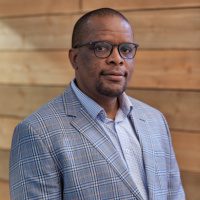
Tapiwa Mukwashi is a global health supply chain expert with more than 15 years of private sector and international development experience across sub-Saharan Africa. As director of the Global Technical Team, Tapiwa ensures that VillageReach has the high-quality technical assistance needed to support its country teams, global partnerships, and program portfolio. Connect with Tapiwa on LinkedIn.

David Chen is a visionary leader and cofounder of Kapsule, a pioneering African healthcare data analytics company. With a background in Genetics and over 6 years of pharmaceutical consulting experience, David is helping Kapsule to revolutionize African healthcare by collecting, aggregating, and standardizing data from various markets. This enables clients to gain invaluable insights into supply chains and business operations to uncover commercial opportunities and enhance clinical development across the continent. Connect with David on LinkedIn.
